ANNUAL ACTIVITY IMPACT REPORT 2020
 Médecins Sans Frontières Australia
Médecins Sans Frontières Australia
Women and children attend a weekly outpatient clinic provided by Médecins Sans Frontières, in partnership with local health officials and with a focus on non-communicable disease care, in Marawi, the Philippines (January 2020). © Veejay Villafranca/MSF
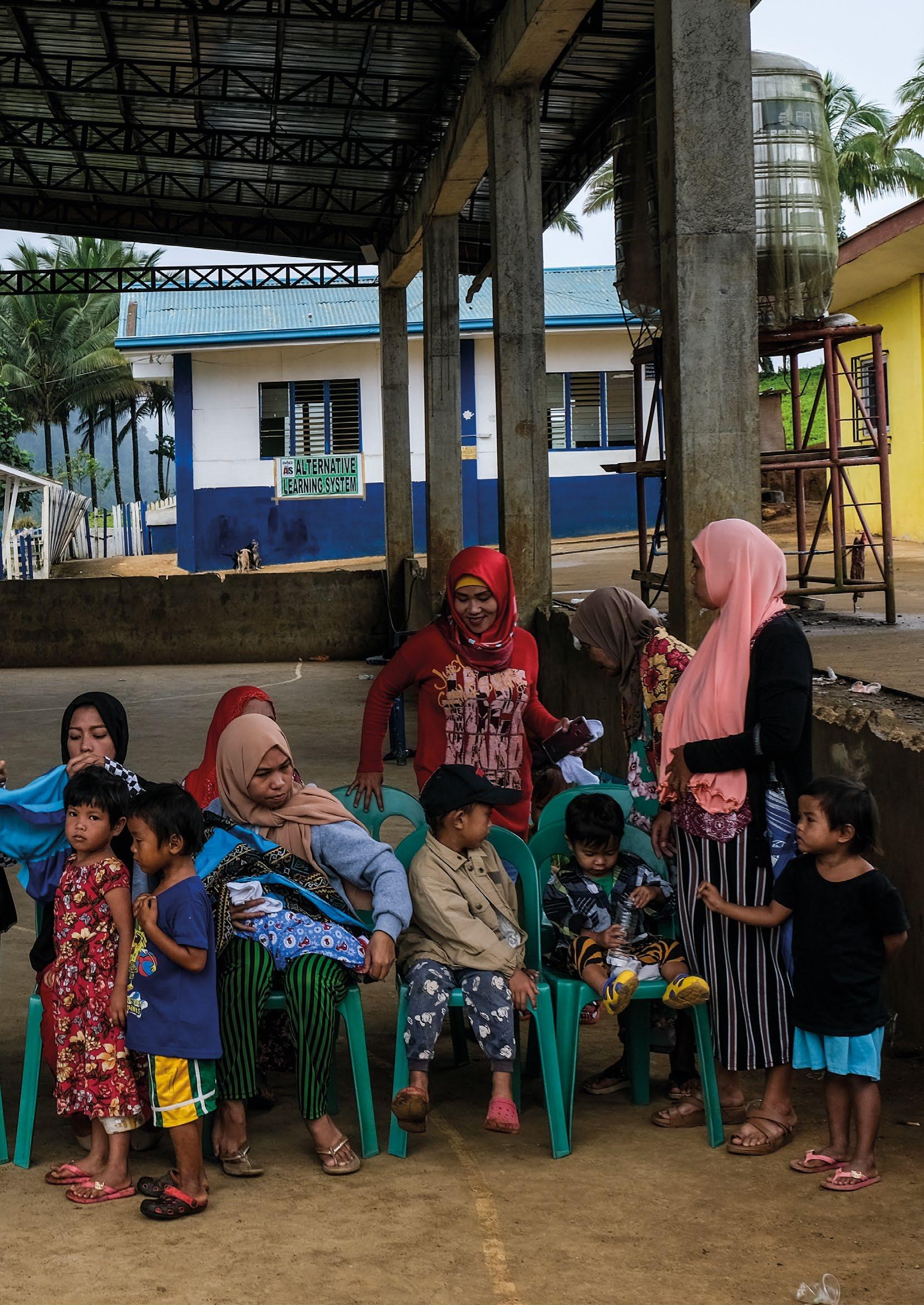
OUR CHARTER
Médecins Sans Frontières is a private international association. The association is made up mainly of doctors and health sector workers and is also open to all other professions which might help in achieving its aims. All of its members agree to honour the following principles:
Médecins Sans Frontières provides assistance to populations in distress, to victims of natural or man-made disasters and to victims of armed conflict. They do so irrespective of race, religion, creed or political convictions.
Médecins Sans Frontières observes neutrality and impartiality in the name of universal medical ethics and the right to humanitarian assistance and claims full and unhindered freedom in the exercise of its functions.
CONTENTS
Members undertake to respect their professional code of ethics and to maintain complete independence from all political, economic or religious powers.
As volunteers, members understand the risks and dangers of the missions they carry out and make no claim for themselves or their assigns for any form of compensation other than that which the association might be able to afford them.
3. Médecins Sans Frontières charter 4. Message from the President and Executive Director 6. Message from the Medical Unit 8. Australian and New Zealand field staff 10. Médecins Sans Frontières Australia and Médecins Sans Frontières New Zealand 2020 highlights 12. Médecins Sans Frontières projects funded by Australian and New Zealand donors 40. Financial report
Médecins Sans Frontières Australia Annual Report 2020 – 3
Front cover: Dorothy I. Esonwune, Project Coordinator in Old Fangak, South Sudan, waits in front of a flooded school in Wangchot village while the team prepares to transfer a patient to Médecins Sans Frontières’ hospital in Old Fangak town. © Tetiana Gaviuk/MSF
MESSAGE FROM THE PRESIDENT
For people around the world, 2020 was a year of huge adversity.
The COVID-19 pandemic exacerbated suffering for many people in the countries where Médecins Sans Frontières works. In Australia and New Zealand, although we were better off than many other places, the year was also highly demanding: requiring us all to adapt rapidly to change and develop resilience in doing so.
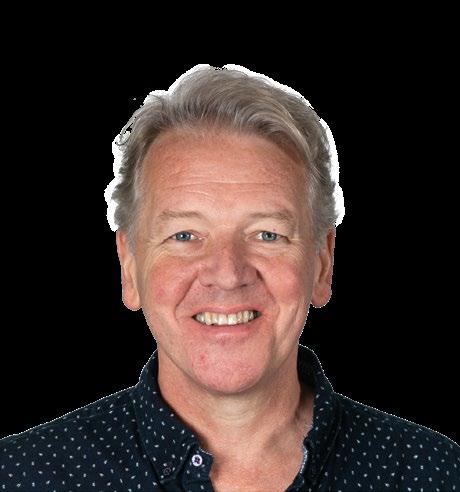
Despite the challenges, Médecins Sans Frontières Australia was able to continue its strong support of our medical humanitarian projects with funding, staff, advocacy and medical expertise.
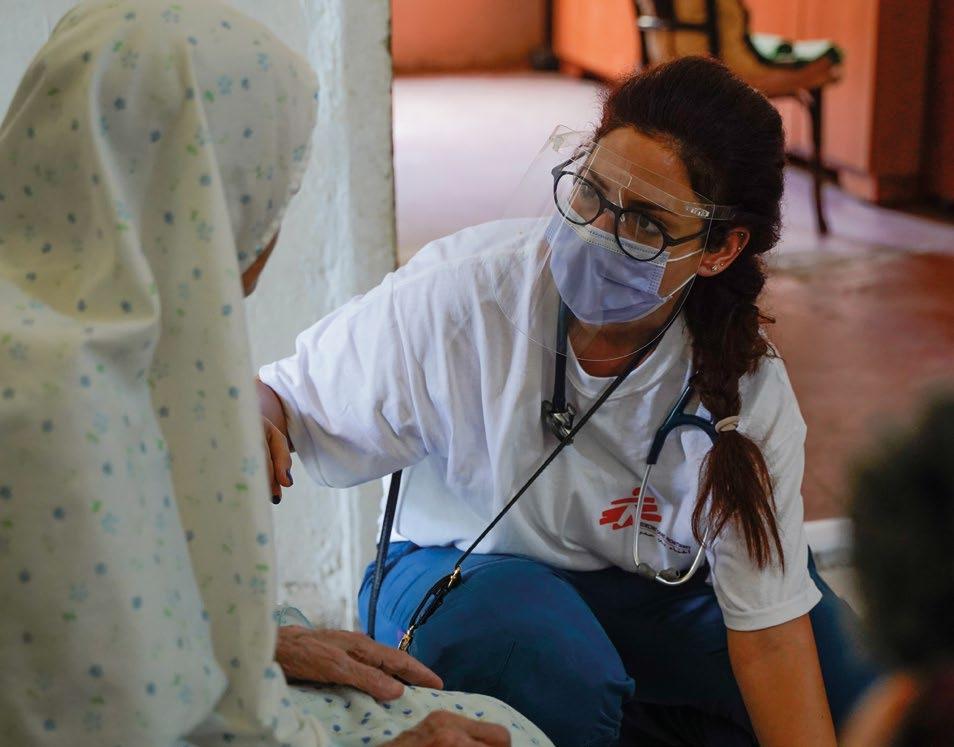
The hidden impacts of the pandemic
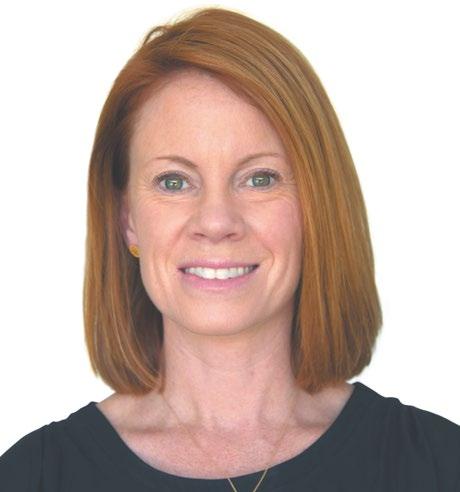
Although COVID-19 made the biggest headlines in 2020, in many of the countries where we work people continued to die from malaria, measles, malnutrition and other diseases, often due to a lack of resources or exclusion from healthcare. Communities—including healthcare workers and patients, like those in Dashte-Barchi, Afghanistan—were still affected by brutal violence and conflict, and people on the move were increasingly deprived of their right to healthcare and safety.
Despite the pressing challenges of COVID-19, Médecins Sans Frontières continued to carry out our day-to-day work. We largely managed to maintain our HIV and tuberculosis programs, with adapted protocols and alternative approaches to provide people with continuity of treatment and protect those patients and staff from COVID-19. You can read more about our work responding to this in countries such as Eswatini and Kenya in this report.
Our teams also witnessed the impacts of simultaneous crises in countries like Lebanon, where a huge explosion in August caused by chemicals stored in a warehouse at the port in Beirut, killed at least 200 people, injured thousands and destroyed many homes and businesses. Australian donors contributed to Médecins Sans Frontières’ work in some of the neighbourhoods most affected by the blast, where we visited elderly or disabled people who were unable to leave their homes to provide nursing care and urgent medication for non-communicable diseases. On top of this man-made disaster, people in Lebanon also faced waves of COVID-19 and an economic crisis further aggravated by the pandemic. The medical and mental health needs
A Médecins Sans Frontières doctor assists Fatima, an elderly woman living in Beirut, at her home after the explosion that killed 200 people and injured thousands in August 2020. © Mohamad Cheblak/MSF
Dwin Tucker
President
Médecins Sans Frontières Australia
May 2020 - May 2021
© MSF
Jennifer Tierney
Executive Director
Médecins Sans Frontières Australia © MSF
AND EXECUTIVE DIRECTOR
Shifting our ways of working
Moving forward
in the country remain huge, including for Syrian refugees of which there are a million in Lebanon.
In some places the pandemic forced Médecins Sans Frontières to suspend activities. Mass vaccination campaigns, as well as routine vaccinations, were frequently interrupted or cancelled due to COVID-19. We are greatly concerned about the indirect impacts of COVID-19 for patients and their communities, also highlighted by Dr Claire Fotheringham’s message on page 6.
COVID-19: medical support and speaking out
We launched several new projects in response to COVID-19 in 2020. In Yemen, your donations assisted our team’s work in one of the only two COVID-19 treatment centres in Aden, Yemen’s second largest city, which were both run by Médecins Sans Frontières. Staff managed significant influxes of patients in critical condition, often under the stress of insufficient ventilators for patients and personal protective equipment for staff.
From our vantage point, it is obvious that the COVID-19 pandemic has exacerbated inequities that already existed for people in need of healthcare. In 2020, people in lowand middle-income countries were left behind in the scramble for protective and medical equipment to fight the pandemic as wealthier nations secured the bulk of the world’s resources. And vaccine distribution remains wholly inequitable to this day.
With several decades of experience treating neglected diseases and working with people who are excluded from healthcare, Médecins Sans Frontières continued our commitment to speak out on behalf of patients and communities. From Australia, we supported the international movement to advocate for access to essential COVID-19 medical tools for all people, and for an end to patents and profiteering on drugs, tests and vaccines developed for COVID-19.
The pandemic created enormous challenges for Médecins Sans Frontières to keep our projects running, as closures of borders and airports restricted the movement of staff and supplies. Despite barriers to travel, our Sydney Field Human Resources department supported 108 departures of Australian and New Zealand medical and logistical professionals to 30 countries during the year. Staff continued to demonstrate incredible commitment to care for patients during an unstable and testing time.
The increased health needs globally, as well as reduced international support to projects, meant that locally-hired staff in particular shouldered an additional burden in 2020. They continued to make up over 90 per cent of Médecins Sans Frontières’ workforce. The pandemic further highlighted the need to increase access to training and professional growth for all staff, regardless of where they are hired, to facilitate equitable career opportunities for staff.
Through the Southeast and East Asia and Pacific (SEEAP) development project, Médecins Sans Frontières Australia worked in partnership with colleagues in Hong Kong and Japan to assess opportunities for recruitment in the region (with a focus on recruitment of professionals from Malaysia, Indonesia and the Philippines). We also supported SEEAP project initiatives to create regional supply networks, with the aim to move away from a Euro-centric model.
There has been increased focus on mental health for many of us during COVID-19. Duty of care for staff—many of whom both live and work in areas affected by extreme crises—has always been paramount for our organisation. In 2020, Médecins Sans Frontières Australia made a necessary investment in culturallyspecific psychosocial support for staff in the SEEAP region. In collaboration with the SEEAP project, we launched a psychosocial unit in December which aims to assist both locally- and internationallyhired staff.
There remains much more to be done in 2021, as we mark 50 years of providing medical humanitarian aid. The Médecins Sans Frontières Environmental Pact was endorsed by the international movement in 2020, outlining our recognition of the medical and humanitarian consequences of climate change and environmental degradation, and our contribution towards it. The pact represents our commitment to become an organisation using communityfocused, climate-smart humanitarian responses that prioritise planetary health: an urgent focus also reflected in Médecins Sans Frontières Australia’s Strategic Plan for 2021-23.
Our Strategic Plan also outlines our commitment to taking action on diversity, equity and inclusion, which is necessary and ongoing work to combat racism and discrimination for patients, staff and communities we work with.
We continued to be astounded by our donors’ generosity in 2020, despite the adversity of the year. While it is difficult to account for the true full impact of your support, the highlights covered in this report are testament to the difference you continue to make, often in the most challenging time of a person’s life. We are immensely grateful for your continued support and trust as we strengthen our care for people in need.
Dwin Tucker President
Jennifer Tierney Executive Director Médecins Sans Frontières Australia
Médecins Sans Frontières Australia Annual Report 2020 – 5
MESSAGE FROM THE MEDICAL UNIT
The year 2020 was difficult for Médecins Sans Frontières patients and staff, including the Medical Unit.
The global pandemic had major impacts on each of the projects we support, and the Médecins Sans Frontières Dasht-e-Barchi maternity and newborn care program, which we had worked with closely for many years, was attacked and subsequently closed.
The Unit’s medical advisors worked to help our programs maintain essential care for women, children and newborns and victims of sexual violence, and to support staff to cope with the incredible demands of COVID-19. Although there were declines in our activities at times during the year, these services continued in Médecins Sans Frontières projects and in most cases recovered to pre-pandemic levels. However, people’s needs increased as globally, health providers prioritised emergency responses to COVID-19 over other services.
Adapting to the pandemic
Médecins Sans Frontières’ main focus during COVID-19 in 2020 was to keep essential medical services running, as well as protect patients and staff, and support COVID-19 care where needed.
Across women’s health, child and newborn health and sexual violence care, our greatest concern was the indirect impact of the pandemic on healthcare delivery. We experienced substantial decreases in activities at the beginning of the pandemic, especially from March until June 2020. This was primarily related to lockdowns, people’s fear of going to hospitals and difficulty getting transportation to seek care, but also the need to reorganise care to decrease the risk of COVID-19 transmission, with measures like increased bed spacing in hospitals.
For example, there was a drop in the number of women Médecins Sans Frontières saw for safe abortion care, and while numbers increased again after initial lockdown periods, we fear many women resorted to unsafe abortions elsewhere. We have been able to re-start a study looking at abortion-related morbidity and mortality that was paused due to the pandemic, which may give us some indicators of the impacts of COVID-19 on women’s healthcare in Médecins Sans Frontières projects.
Staff: skills and support
The COVID-19 pandemic greatly challenged how we worked. For most of 2020, field visits and trainings were no longer possible, but many of the adaptations developed in their place have been so successful that we plan to keep them.
Online trainings were expanded, offering more opportunities for locally hired staff to upskill and improve quality of care. They also enabled us to run longer-term courses where staff could collaboratively work through actual challenges in real time, rather than theoretical scenarios. Planning for the projects became more collaborative thanks to staff being able to dial into sessions that are usually held in headquarters. Online formats, balanced with valuable face-to-face work, are becoming increasingly important— beyond COVID-19 too—with the need to decrease our carbon footprint and prevent environmental damage from our activities.
The continuity of care we achieved in 2020 is testament to the fortitude of the staff, who had to cope with increased demands linked to adapting care and protecting patients, and often the stigma attached to being a health worker during COVID-19.
 Dr Claire Fotheringham
Head of Medical Unit
Médecins Sans Frontières Australia © MSF
Dr Claire Fotheringham
Head of Medical Unit
Médecins Sans Frontières Australia © MSF
Patient-centred and quality care
Patient-centred care is particularly important in chronic disease treatment, where best outcomes are achieved if patients, as well as their parents or carers where applicable, are brought in as partners in their management. Médecins Sans Frontières often excels at caring for patients experiencing acute crisis, but we need to do more around quality care and prevention before patients reach crisis point—especially for children with chronic disease.
An exciting achievement in 2020 was the implementation of a simple package of care for children with sickle cell disease in Madarounfa, Niger. Sickle cell disease is a chronic blood disorder that results in abnormally shaped red cells, which can block the blood vessels and cause secondary problems such as severe anaemia, severe infections or strokes. The package of care includes diagnosis, patient education, monitoring and follow up, prevention of sickle cell crisis and other complications (malaria prophylaxis/ prevention, vaccination, antibiotics) and treatment of complications. Without any expensive drugs, 90 per cent of children will live through to adulthood under this model of care; without it, it is estimated that 50 to 90 per cent of children will die at an early age.
In Khamir, Yemen, we were able to implement humidified high-flow nasal cannula oxygen in the newborn and paediatric intensive care unit. Subsequently, we’ve seen a notable decrease in neonatal mortality in this hospital, with a reduction from 24.2 per cent in 2019 to 16.2 per cent in 2020, likely contributed to both by this implementation and also the strong focus on improving quality of care in the unit over many years.

Looking ahead
As many of our projects planned for 2020 were disrupted or delayed due to COVID-19, we will focus on picking these back up in 2021 and beyond. Patientcentred care and quality care remain priorities for us, forming the main pillars of the strategic plans for Médecins Sans Frontières Australia and Operational Centre Paris, both delivered at the end of 2020.
Transversal, more holistic care is another developing focus for us. This will mean, for example, integrating HIV services into our maternity so that women receiving antenatal care from Médecins Sans Frontières who are also living with HIV can access HIV treatment in that program too, rather than getting a referral elsewhere. It is integral to our aims to treat patients more holistically.
Dr Claire Fotheringham Head of Medical Unit Médecins Sans Frontières Australia
REMEMBERING DASHT-E-BARCHI
Tragically, on 12 May 2020 there was a brutal attack on the Médecins Sans Frontières maternity and newborn care department in Dasht-e-Barchi hospital in Kabul, Afghanistan. Gunmen killed 24 people, including 16 mothers, two children and a Médecins Sans Frontières midwife, Maryam. The project was subsequently closed due to the inability to guarantee security.
Dasht-e-Barchi hospital provided high quality care to women, with staff that were dedicated to constantly improving care. In total, since the start of the project in 2014, 79,839 women gave birth in the hospital and 7,453 babies were admitted to the neonatal unit. The project remains very close to the hearts of the women’s health and paediatric advisors with many of us having visited and worked in the project, and we mourn the loss, for Afghan women and babies, and for the dedicated staff, who remain in our thoughts.
Neonatal nurse Najla’a Mujeeb attends to a baby on high flow oxygen therapy in Khamir, Yemen. © Hareth Mohammed/MSF
Médecins Sans Frontières Australia Annual Report 2020 – 7
AUSTRALIAN AND NEW ZEALAND FIELD STAFF IN 2020
This is a comprehensive list of all professionals from Australia and New Zealand who were working in Médecins Sans Frontières projects in 2020. Our staff filled 108 departures during the year, contributing to an international workforce of more than 41,000 staff (full time equivalents).
AFGHANISTAN
Jessica Charlston
Nursing Team Supervisor
Prue Coakley
Project Coordinator
John Cooper
Logistics Team Leader
Justin Dalby
Doctor
Tanyth De Gooyer
Epidemiology Activity Manager
Malaika El Amrani
Nursing Activity Manager
Jeffrey Fischer
Construction Manager
Jane Hancock
Nursing Activity Manager
Shelley Harris-Studdart
Midwife Activity Manager
Neville Kelly
Logistics Manager
Natacha Maher
Nursing Activity Manager
Brian Moller
Head of Mission
Kimberley Morris
Nursing Team Supervisor
Carol Nagy
Project Coordinator
Rachel Tullet
Project Medical Referent
BANGLADESH
Isaac Chesters
Project Finance/HR Manager
Matthew Gosney
Project Finance/HR Manager
Reinhard Hohl
Construction Manager
Sumitra Mahendran
Deputy HR Coordinator
Emer McCarthy
Nursing Activity Manager
Vino Ramasamy
HR Coordinator
Rebecca Ross
Nursing Activity Manager
Angela van Beek
Midwife Activity Manager
CAMEROON
Judith Forbes
Anaesthetist
Matthew Gosney
Project Finance/HR Manager
John Swinnen
Surgeon
CENTRAL AFRICAN REPUBLIC
Patrick Brown Hospital Facilities Manager
Alec Kelly Hospital Facilities Manager
Rachel Robertson Doctor
DEMOCRATIC REPUBLIC OF CONGO
Rodolphe Brauner
Project Coordinator
Jeni Flavell
Nursing Team Supervisor
Kaheba Clement Honda Nursing Activity Manager
Alec Kelly Hospital Facilities Manager
Brian Moller Head of Mission
James Ricciardone Doctor
Lisa Searle
Project Coordinator
Stella Smith
Project Coordinator
Fintan Thompson
Epidemiology Activity Manager
EGYPT
Alexandra Rodwell
Mental Health Activity Manager
ETHIOPIA
Tanya Constantino
Laboratory Manager
Trudy Rosenwald
Mental Health Activity Manager
Vivegan Jayaretnam
Project Coordinator
Linda Pearson
Project Coordinator
INDIA
Stobdan Kalon
Medical Coordinator
IRAQ
Jacob Coleman
Nursing Activity Manager
Ciara Corrigan
Nurse Specialist Supervisor
Kaitlin Daw
Medical Activity Manager
Catharina Grobler
ER Doctor
Freya Hogarth Head Nurse
Anna-Sofia Lehner
Mental Health Activity Manager
Jessica Meagher
Doctor
Shanna Morris Doctor
Khairil Musa Doctor
Helle Poulsen-Dobbyns
Project Coordinator
Narelle Raiss
Nursing Activity Manager
Louise Timbs
Head Nurse
Rachel Tullet
ER Doctor
JORDAN
Janthimala Price
Project Coordinator
KENYA
Lucy Butler
Finance and HR Coordinator
Frederick Cutts
Regional Technical Referent
Sean Heinz-Partington
Obstetrician-Gynaecologist
Kerryn Whittaker
Logistics Manager
LEBANON
Susan Bucknell
Project Coordinator
Justine Cain
Medical Activity Manager
Ciara Corrigan
Nursing Activity Manager
Andrew Dimitri
Hospital Director
Tamalee Roberts
Laboratory Manager
Rachel Tullet
Medical Activity Manager
Anita Williams
Specialised Activity Manager
LIBERIA
Llewella Jane Butland
Paediatrician
Ivan Cerrafon
Supply Chain Manager
Josephine Goodyer
Paediatrician
Mia Kelly-Johnson Logistics Manager
Tim Pont
Paediatrician
LIBYA
Chloe Basford
Nursing Activity Manager
Kitrina Norrish
Laboratory Manager
Sally Thomas
Project Coordinator
MALAWI
Natasha Allan
Nursing Activity Manager
Anna-Sofia Lehner
Mental Health Activity Manager
James Neeson
Project Supply Chain Manager
Dustin Sim
Project Pharmacy Manager
MEDITERRANEAN SEA RESCUE
Catherine Flanigan
Nursing Activity Manager
MYANMAR
Sophie Alpen
Medical Activity Manager
Jennifer Duncombe
Project Coordinator
NIGERIA
Tanya Coombes
Project HR Manager
Malaika El Amrani
Nursing Team Supervisor
Malcolm Hugo
Mental Health Activity Manager
Stephanie Johnston
Intersectional Pharmacist
Allen Murphy
Project Coordinator
David Nash
Deputy Head of Mission
Steven Purbrick
Deputy Head of Mission
Alexandra Rodwell
Mental Health Activity Manager
Jeanne Vidal
Water Sanitation Team Leader
PAKISTAN
Lisa Altmann
Nurse Specialist Supervisor
Lucy Butler
Project Finance/HR Manager
Kathrine Charlton
Midwife Activity Manager
Jenny Yang
Obstetrician-Gynaecologist
PALESTINE
Brigid Brown
Anaesthetist
Chloe Basford
Nursing Team Supervisor
Susie Broughton
Medical Activity Manager
Julian Conrad-Czaja
Technical Project Coordinator
Amal Ibrahim
Psychologist
Kerrie-Lee Robertson
Finance Coordinator
Thomas Schaefer
Orthopaedic Surgeon
Ben Shearman
Logistics Team Leader
Simone Silberberg
Mental Health Coordinator
Natalie Thurtle
Medical Coordinator
Britta Walker
Mental Health Coordinator
PAPUA NEW GUINEA
Rebecca King
Logistics Manager
PHILIPPINES
William Johnson
Regional Technical Referent
RUSSIAN FEDERATION
Evelyn Wilcox
Project Coordinator
SIERRA LEONE
Aiesha Ali
Pharmacy Manager
David Danby
Electricity Manager
Rachel Sun
Pharmacy Manager
Jeanne Vidal
Water Sanitation Team Leader
SOUTH AFRICA
Ellen Kamara
Project Coordinator
SOUTH SUDAN
Maia Blenkinsop
Infection Prevention and Control Manager
Cushla Coffey
Epidemiology Activity Manager
Tanyth De Gooyer
Epidemiology Activity Manager
Tien Thuy Dinh
Project Medical Referent
Madeleine Finney-Brown
Paediatrician
Anthea Fisher
Hospital Facilities Manager
Jairam Kamala
Ramakrishnan
Psychiatrist
Rodney Miller
Project Coordinator
Heather Moody
Hospital Facilities Manager
Thomas Niccol
Doctor
Vino Ramasamy
HR Coordinator
Miho Saito
Midwife Activity Manager
Stephanie Sarta
Deputy Coordinator In Charge of Logistics
Caterina Schneider-King
Finance Coordinator
Ben Shearman
Logistics Team Leader
Amanda Skene
Midwife Activity Manager
Emily Young
Nursing Team Supervisor
SUDAN
Debra Hall
Midwife Activity Manager
Alec Kelly
Construction Manager
Kiera Sargeant
Medical Coordinator
Amanda Skene
Midwife Activity Manager
Georgina Woolveridge
Medical Activity Manager
SYRIA
Chamath Ariyasinghe
Medical Activity Manager
Jennifer Duncombe
Epidemiologist
Kiera Sargeant
Medical Coordinator
Sam Templeman
Medical Coordinator
Sally Thomas
Deputy Head of Mission
TANZANIA
Peter Clausen
Head of Mission
UGANDA
Kate Edmonds
Medical Activity Manager
Virginia Lee
Mental Health Activity Manager
UZBEKISTAN
Tasnim Hasan Doctor
Anne Hoey Doctor
VENEZUELA
Sumitra Mahendran
Project Finance/HR Manager
YEMEN
Susan Bucknell
Project Coordinator
Shirley Charles
Nursing Activity Manager
Stephen Clarke
Finance and HR Coordinator
Louisa Cormack
Head of Mission
Christopher Guy
Anaesthetist
Anna Haskovec
Logistics Manager
Jairam Kamala
Ramakrishnan
Psychiatrist
Rachel Lister
Specialised Doctor
Alison Moebus
Nursing Activity Manager
Catherine Moody
Project Coordinator
Khairil Musa
Anaesthetist
Jacqueline Parry
Deputy Head of Mission
Jacqueline Marie Venning
Midwife Activity Manager
Heidi Woods Lehnen
Project Medical Referent
VARIOUS/OTHER
Andrew Dimitri
Medical Coordinator
Megan Graham
Finance Coordinator
Devash Naidoo
Psychologist
Kiera Sargeant
Medical Coordinator
Sam Templeman
Medical Coordinator
Tien Thuy Din
Pharmacy Manager
Kyla Ulmer
Project Coordinator
Médecins Sans Frontières Australia Annual Report 2020 – 9
This list of field workers comprises only those recruited by Médecins Sans Frontières Australia. We also wish to recognise other Australians and New Zealanders who have contributed to Médecins Sans Frontières programs worldwide but are not listed here because they joined the organisation directly overseas.
MEDECINS SANS FRONTIERES AUSTRALIA AND MEDECINS SANS FRONTIERES NEW ZEALAND HIGHLIGHTS 2020
*’Paramedical’ includes all health professionals who are not doctors.
In 2020, Médecins Sans Frontières Australia supported 108 departures of professionals from Australia and New Zealand, to 30 countries.
The 2020 income of Médecins Sans Frontières Australia and Médecins Sans Frontières New Zealand totalled $104.2 million. Of this, $97.1 million was generated from fundraising activities, of which $3.5 million was from COVID-19 appeals. This is a 13% increase from the 2019 fundraising income and represents continued generous support from the Australian and New Zealand public. Approximately 109,865 Australians and New Zealanders participated in the field partner program in 2020, contributing on a monthly basis to Médecins Sans Frontières Australia and Médecins Sans Frontières New Zealand, and another 42,262 provided occasional gifts.
Field Human Resources Paramedical 40% Medical 32% Non-medical support staff 28%
Income AUD Field Partners 45.4% 47,295,855 Bequests 15.6% 16,236,139 General Appeals 10.6% 11,092,116 Major Donor Income 9.5% 9,921,794 Online Donations 7.4% 7,666,784 Income from other MSF sections 6.4% 6,703,689 Trusts and Foundations 3.3% 3,423,849 Other Fundraising Income 1.4% 1,430,693 Investment and Other Income 0.2% 198,260 Gifts in Kind 0.2% 248,917 100% 104,218,096
3.3% 1.4% 0.2% 0.2% 45.4% 15.6% 10.6% 7.4% 6.4% 9.5% 28% 40% 32%
Spending on our Social Mission
Spending on our Social Mission
Spending on our social mission was 75.6% of total expenditure, which is the same level of spending as 2019. Consistent with previous years, this was split between Operational Centre Paris and Operational Centre Geneva.
Spending on our social mission was 75.6% of total expenditure, which is the same level of spending as 2019. Consistent with previous years, this was split between Operational Centre Paris and Operational Centre Geneva.
Our investment policy within Australia remained consistent with previous years. Short term deposits were used to maximise interest, minimise risk and ensure flexibility and accessibility of funds when required. Médecins Sans Frontières continued to rely on the support of volunteers both in the field and in the office. The estimated total salaries forgone by field staff in 2020 was $2.7 million (compared to $4.2 million in 2019) and for office volunteers, $18,000 (compared to $139,000 in 2019). Additionally, the Board of Directors (except for the President who receives a partial salary) and Association members freely gave their time to Médecins Sans Frontières. The estimated value of the time provided by the Board and the members in 2020 was approximately $418,000 (compared to $420,000 in 2019). In 2020, $440,000 was spent on the Southeast and East Asia and Pacific (SEEAP) project (compared to $310,000 in 2019).
Our investment policy within Australia remained consistent with previous years. Short term deposits were used to maximise interest, minimise risk and ensure flexibility and accessibility of funds when required. Médecins Sans Frontières continued to rely on the support of volunteers both in the field and in the office. The estimated total salaries forgone by field staff in 2020 was $2.7 million (compared to $4.2 million in 2019) and for office volunteers, $18,000 (compared to $139,000 in 2019). Additionally, the Board of Directors (except for the President who receives a partial salary) and Association members freely gave their time to Médecins Sans Frontières. The estimated value of the time provided by the Board and the members in 2020 was approximately $418,000 (compared to $420,000 in 2019). In 2020, $440,000 was spent on the Southeast and East Asia and Pacific (SEEAP) project (compared to $310,000 in 2019).
Africa 56.8% Middle East 24.3% Asia 13.2% Oceania 3% Americas 2.4% Europe 0.3% AUD
Finance 2020 2019 Donation Income 97.07 85.57 Other Income 7.15 7.14 Total Income 104.22 92.71 Social Mission Costs 77.69 77.15 Fundraising and Administration Costs 24.99 22.96 Total Costs 127.68 100.11 Surplus/(Deficit) 1.53 -7.4 Cash Reserves 11.16 9.66 ($m) ($m) Total 100%
Africa 56.8% Middle East 24.3% Asia 13.2% Oceania 3% Americas 2.4% Europe 0.3% AUD
Finance 2020 2019 Donation Income 97.07 85.57 Other Income 7.15 7.14 Total Income 104.22 92.71 Social Mission Costs 77.69 77.15 Fundraising and Administration Costs 24.99 22.96 Total Costs 127.68 100.11 Surplus/(Deficit) 1.53 -7.4 Cash Reserves 11.16 9.66 ($m) ($m) Total 100%
Médecins Sans Frontières Australia Annual Report 2020 – 11 3% 2.4% 0.3% 56.8% 24.3% 13.2% Médecins Sans Frontières Australia Annual Report 2020 – 11 3% 2.4% 0.3% 56.8% 24.3% 13.2%
PROJECTS FUNDED BY AUSTRALIAN AND NEW ZEALAND DONORS
In 2020, Médecins Sans Frontières ran medical humanitarian projects in 88 countries. Australian and New Zealand donors supported work in 33 of those countries. Médecins Sans Frontières projects are run by five operational centres (Amsterdam, Barcelona, Brussels, Geneva and Paris). The Australian section is an official partner of the Paris operational centre, and Australian and New Zealand donors contribute funding to projects run by both the Paris and Geneva operational centres. Australians and New Zealanders also fill field roles run by all operational centres.
Received AU and NZ funding
Received funding from other MSF Offices
TOP-FUNDED COUNTRIES IN 2020
Based on funding by Australian and New Zealand donors
IRAQ $4,100,000
SOUTH SUDAN $4,000,000
DEMOCRATIC REPUBLIC OF CONGO $3,983,244
YEMEN $3,910,583
CAMEROON $3,500,000
1 2 3 4 6 7 8 5 10 11 12 13 14 15 25 16 17 18 20 19 22 23 24 28 29 30 31 32 33 9
STAFF NUMBERS IN 2020
Top-supported countries based on the number of Australian and New Zealand staff departures
AFGHANISTAN 12 PALESTINE 8
YEMEN 9 SOUTH SUDAN 8
IRAQ 8
FUNDING FROM AUSTRALIAN AND NEW ZEALAND DONORS
Country MSF Paris MSF Geneva 1. Afghanistan 1,489,617 2. Bangladesh 1,496,471 3. Burkina Faso 2,000,003 4. Cameroon 3,500,000 5. Central African Republic 2,985,441 6. Chad 1,000,000 7. Democratic Republic of Congo 1,983,244 2,000,000 8. Eswatini 500,000 9. Haiti 997,939 10. Honduras 500,000 11. Iran 1,500,000 12. Iraq 2,500,000 1,600,000 13. Jordan 2,377,059 14. Kenya 1,500,000 1,607,572 15. Lebanon 1,996,471 16. Liberia 1,000,000 17. Libya 2,000,000 18. Malawi 765,599 19. Mali 1,500,000 20. Mozambique 1,000,000 21. Myanmar 200,000 22. Niger 1,704,401 1,579,319 23. Nigeria 2,499,994 24. Pakistan 1,000,000 25. Palestine 3,000,000 26. Papua New Guinea 1,764,706 27. Philippines 1,000,000 28. South Sudan 2,000,000 2,000,000 29. Sudan 1,500,000 30. Syria 1,168,000 31. Uganda 500,000 32. Ukraine 200,000 33. Yemen 1,910,583 2,000,000 TOTAL 43,639,525 18,186,891 OVERALL TOTAL: 61,826,416
*All figures are in Australian dollars
“We are immensely grateful for your continued support and trust as we strengthen our care for people in need.”
– Dwin Tucker, President, and Jennifer Tierney, Executive Director
21 26 27 Médecins Sans Frontières Australia Annual Report 2020 – 13
PROJECTS FUNDED BY AUSTRALIAN AND NEW ZEALAND DONORS
This section describes those projects supported by the generous donations made to Médecins Sans Frontières Australia and Médecins Sans Frontières New Zealand in 2020. Iraq, South Sudan, the Democratic Republic of Congo, Yemen and Cameroon were the top-funded countries in 2020, and are followed by all other projects funded by Australian and New Zealand donors. This section also includes highlights from Médecins Sans Frontières’ international COVID-19 response.
For a complete record of Médecins Sans Frontières’ work in 2020, including projects funded through other Médecins Sans Frontières sections, please visit www.msf.org/resource-centre.
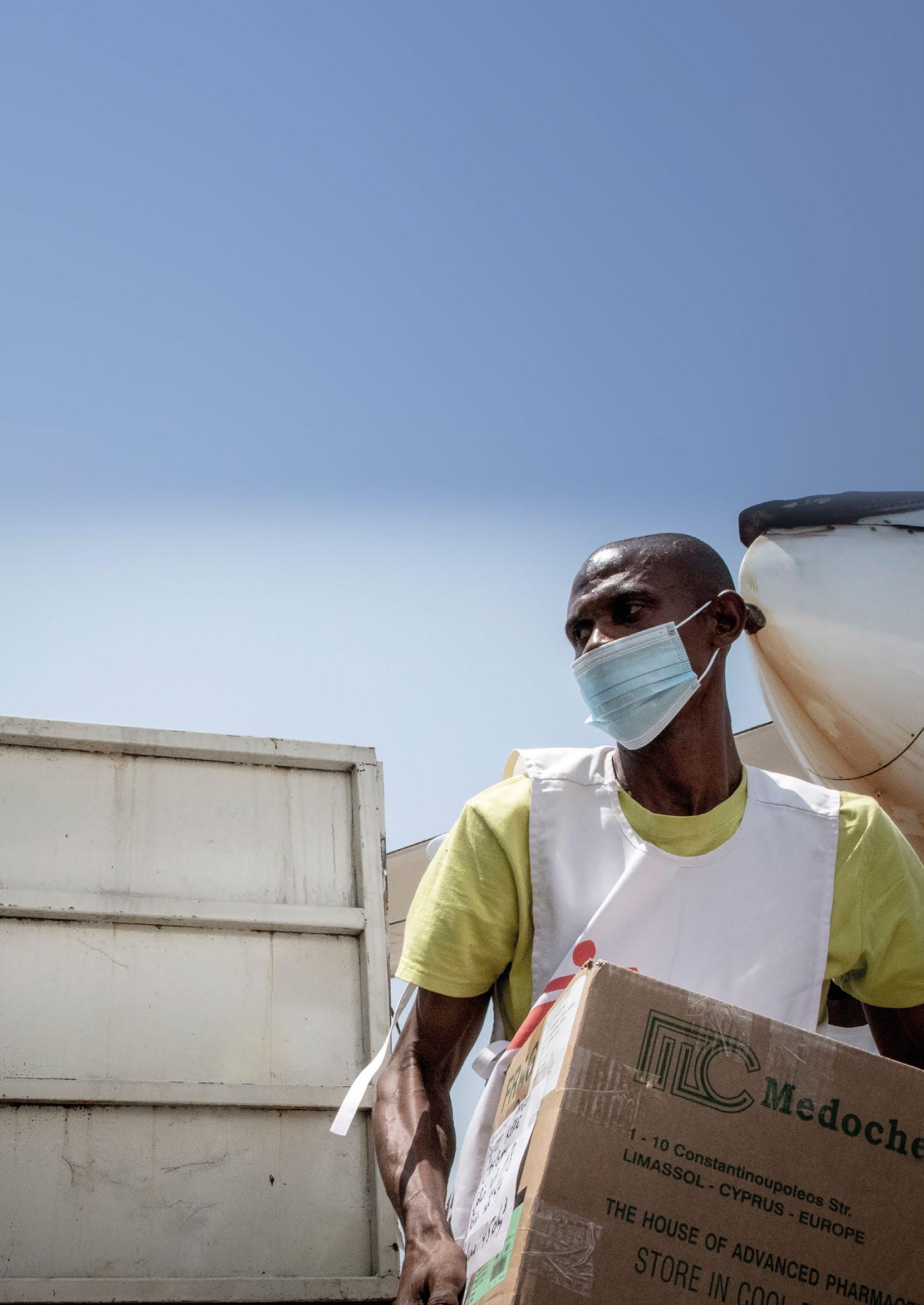
KEY
KEY ACTIVITIES
refers to the types of care provided by Médecins Sans Frontières teams in the country in 2020.
IMPACT
highlights a primary achievement of Médecins Sans Frontières teams in the country in 2020, thanks to our supporters.
FIELD STAFF
refers to the number of full time field staff in projects run by Operational Centre Paris and Operational Centre Geneva in 2020.
TOTAL FUNDING
refers to the total cost of the projects described in the country description for 2020 (projects run by Operational Centre Paris and/ or Operational Centre Geneva). All amounts are in Australian dollars.
AU FUNDING
refers to Médecins Sans Frontières Australia supporters’ contribution to the country’s projects in 2020. All amounts are in Australian dollars.
NZ FUNDING
refers to Médecins Sans Frontières New Zealand supporters’ contribution to the country’s projects in 2020. All amounts are in Australian dollars.
A logistician unloads vaccines and medical kits from a cargo plane in northern Democratic Republic of Congo, before they are driven to the Médecins Sans Frontières team responding to the measles outbreak. © Pacom Bagula/MSF
IRAQ
In 2020, the arrival of COVID-19 in Iraq presented new challenges to a country still reeling from the effects of years of conflict and instability.
Médecins Sans Frontières responded to multiple health emergencies across Iraq, providing care to people displaced by the war against the Islamic State group, people injured in violent incidents and patients with COVID-19. We filled gaps in essential healthcare to support the national health system, which is still in the early stages of reconstruction.
Essential healthcare
Médecins Sans Frontières continued to run general and specialist health services in Iraq, at our ongoing projects for displaced people, returnees and vulnerable communities.
As a result of the pandemic and the closure of private clinics, our maternity and paediatric teams at Nablus hospital, west Mosul, saw a sharp increase in demand for care and admissions.
In Ninewa, Médecins Sans Frontières provided emergency and intensive care, burns treatment, physiotherapy and mental healthcare at our hospital in Qayyarah, until October, when we handed over all our activities to local government hospitals. As part of the handover, we trained staff and donated medical supplies and other equipment. Until October, at the Qayyarah displacement camp, teams also offered general healthcare, maternity services and treatment and follow-up care for non-communicable diseases, until we handed over our activities to another organisation.
Due to the COVID-19 outbreak we were forced to temporarily suspend our activities at the Baghdad medical rehabilitation centre, where people injured in violent incidents or accidents receive comprehensive care, including mental health support. However, we were able to maintain care through online physiotherapy and mental health consultations, and restarted activities later in the year.
COVID-19 response
Iraq’s health system struggled to cope with the increased needs and challenges generated by the pandemic in 2020. Many health facilities damaged in recent years were yet to be rebuilt or rehabilitated and returned to full capacity, and there was a continued shortage of specialised healthcare staff and drugs.
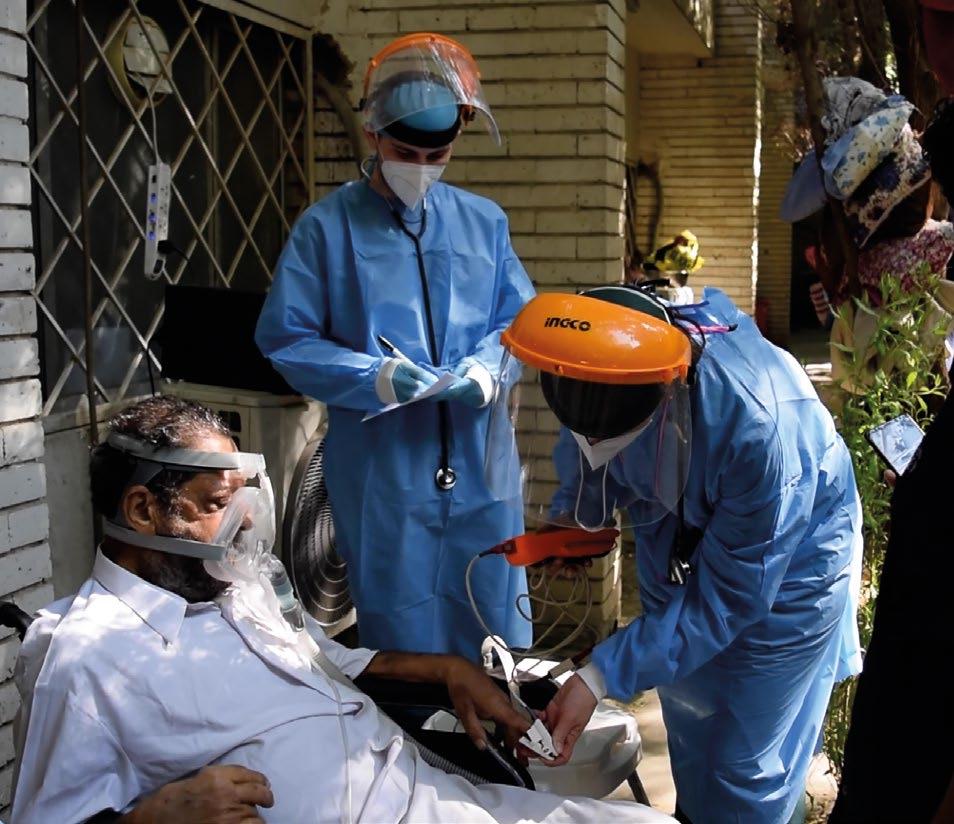
In the capital Baghdad, the city hit hardest by the virus, Médecins Sans Frontières supported Ibn Al-Khatib hospital, a facility run by the Ministry of Health. When it was identified as one of the three main hospitals for COVID-19 care in the early stages of the pandemic, we sent a team to train medical staff on patient triage and infection prevention and control.
We also supported the capital’s Al-Kindi hospital by treating patients with severe illness from COVID-19. At the beginning of the outbreak, our staff worked in the hospital’s respiratory care unit (which included beds for patients in intensive care). Later in the year, we opened our own 24-bed ward, and then gradually moved to a 36-bed ward in a purpose-built wing.
In Mosul, Ninewa governorate, we opened a 15-bed intensive care unit at Al-Salam hospital in mid-November to offer advanced care for patients with critical and severe illness from the virus. At other facilities in Ninewa, as well as in Erbil and Dohuk governorates, we provided training sessions for staff with a focus on infection control.
IMPACT:
Around 41,000 emergency room consultations conducted and 10,800 births assisted at Nablus hospital, Mosul
FIELD STAFF: 385.4
FUNDING: TOTAL AU $27,250,740 $4,100,000
KEY ACTIVITIES
COVID-19 response, emergency care, maternal and newborn healthcare, mental healthcare, paediatric care.
Project locations funded by Australian donors
SAUDI ARABIA
SYRIA BAGHDAD
TURKEY
IRAN NINEWA
Médecins Sans Frontières Australia Annual Report 2020 – 15
Médecins Sans Frontières doctors attend to a patient with COVID-19 at the respiratory care unit of Al-Kindi hospital in Baghdad. © Ghada Safaan/MSF
SOUTH SUDAN
South Sudan was hit by multiple emergencies in 2020, including escalating violence, COVID-19, severe flooding and high levels of food insecurity.
A total of 7.5 million people—around two-thirds of the population—were in need of humanitarian assistance. Médecins Sans Frontières responded to urgent medical and humanitarian needs in the country, while ensuring essential healthcare services continued in our projects.
Old Fangak
For the second consecutive year, severe flooding affected more than one million people across a wide swathe of South Sudan, submerging their homes and health facilities, and leaving them without adequate food, water or shelter. In Old Fangak, Médecins Sans Frontières provided emergency healthcare at our hospital for people with conditions such as malaria, respiratory tract infections and acute watery diarrhoea. Our team also distributed hygiene kits to around 650 homes.
We maintained 24/7 emergency and maternity services, therapeutic feeding and HIV care at the hospital, as well as vaccinations and emergency transport by boat for patients requiring urgent referral for care. Our two mobile clinics providing healthcare for remote villages in the area were suspended in April 2020 due to a lack of staff. In response to the COVID-19 pandemic, we strengthened infection prevention and control measures in the
Old Fangak hospital, which included a reduction in the number of beds.
Aweil mother and child healthcare
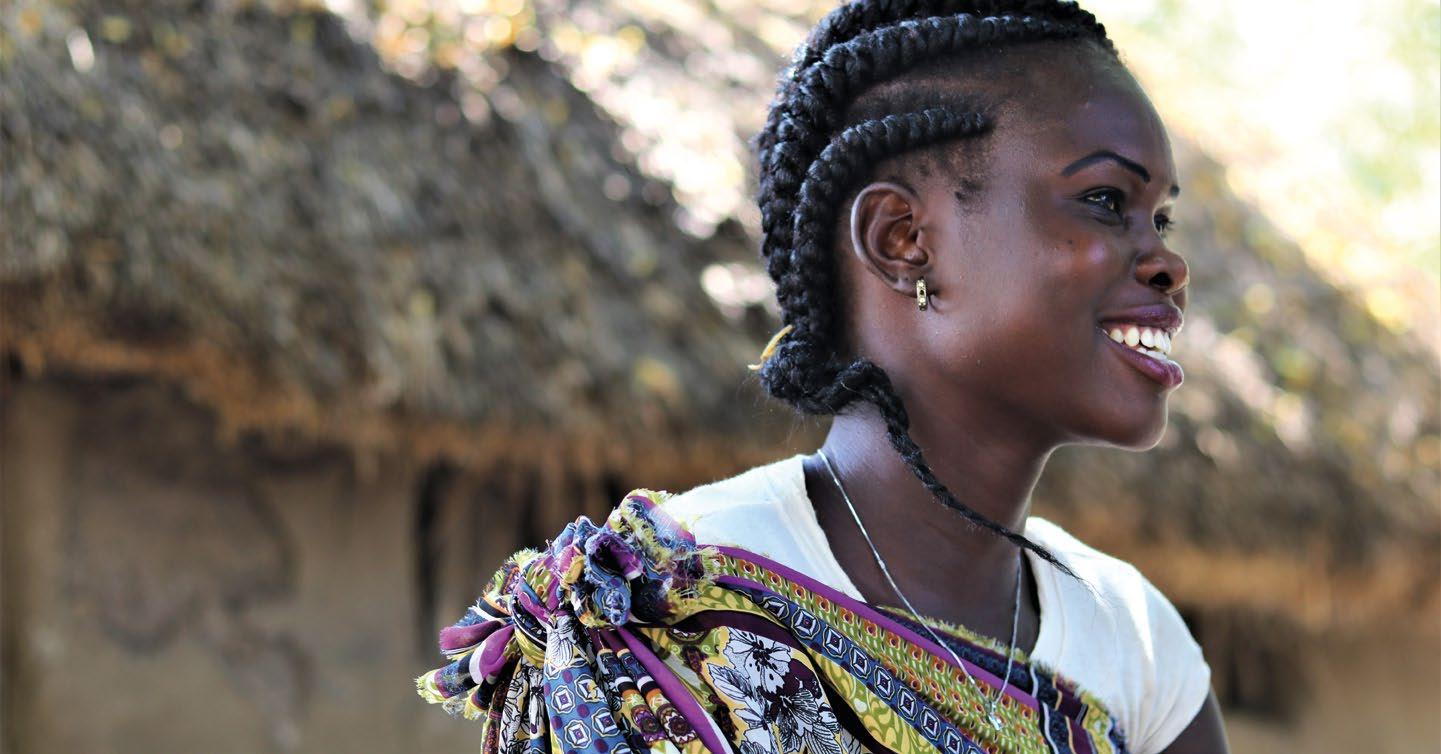
We offered maternal, neonatal and paediatric healthcare throughout the year at Aweil state hospital, which provides care for almost 1.3 million people in Northern Bahr El Ghazal state. In October, we supported the health ministry’s response to a seasonal peak in malaria, with rapid diagnostic tests, medication and supervision at the hospital and in general healthcare centres.
Abyei Special Administrative Area
In Abyei, a disputed area between Sudan and South Sudan, our 180-bed hospital in Agok town continued to provide surgery and neonatal and paediatric care, and treat people for snakebites and diseases such as HIV, tuberculosis, malaria and diabetes.
In response to COVID-19, our team in Agok hospital provided care for patients with the virus, as well as COVID-19 testing in the laboratory. Médecins Sans Frontières teams also trained healthcare workers, donated supplies, conducted health promotion activities and set up handwashing points in several public locations. We supported the Ministry of Health hospital in Abyei with technical assistance and training.
IMPACT:
Patient-centred model of care implemented in our HIV project in Old Fangak, with lengthened one-on-one counselling sessions and medication renewal, and improved health awareness
FIELD STAFF: 1,051
FUNDING:
TOTAL AU $33,301,680 $4,000,000
KEY ACTIVITIES
COVID-19 response, emergency flood response, HIV care, malaria care, maternal, neonatal and paediatric care.
Project locations funded by Australian donors
AGO K AW E I L
SUDAN
FANGAK
Nyaruach at the Médecins Sans Frontières hospital in Old Fangak, Jonglei state, where she receives treatment for diabetes. © Tetiana Gaviuk/MSF
A PATIENT’S STORY FROM SOUTH SUDAN
Anyar, five years old, arrived at Médecins Sans Frontières’ Agok hospital in Abyei Special Administrative Area in October 2020.
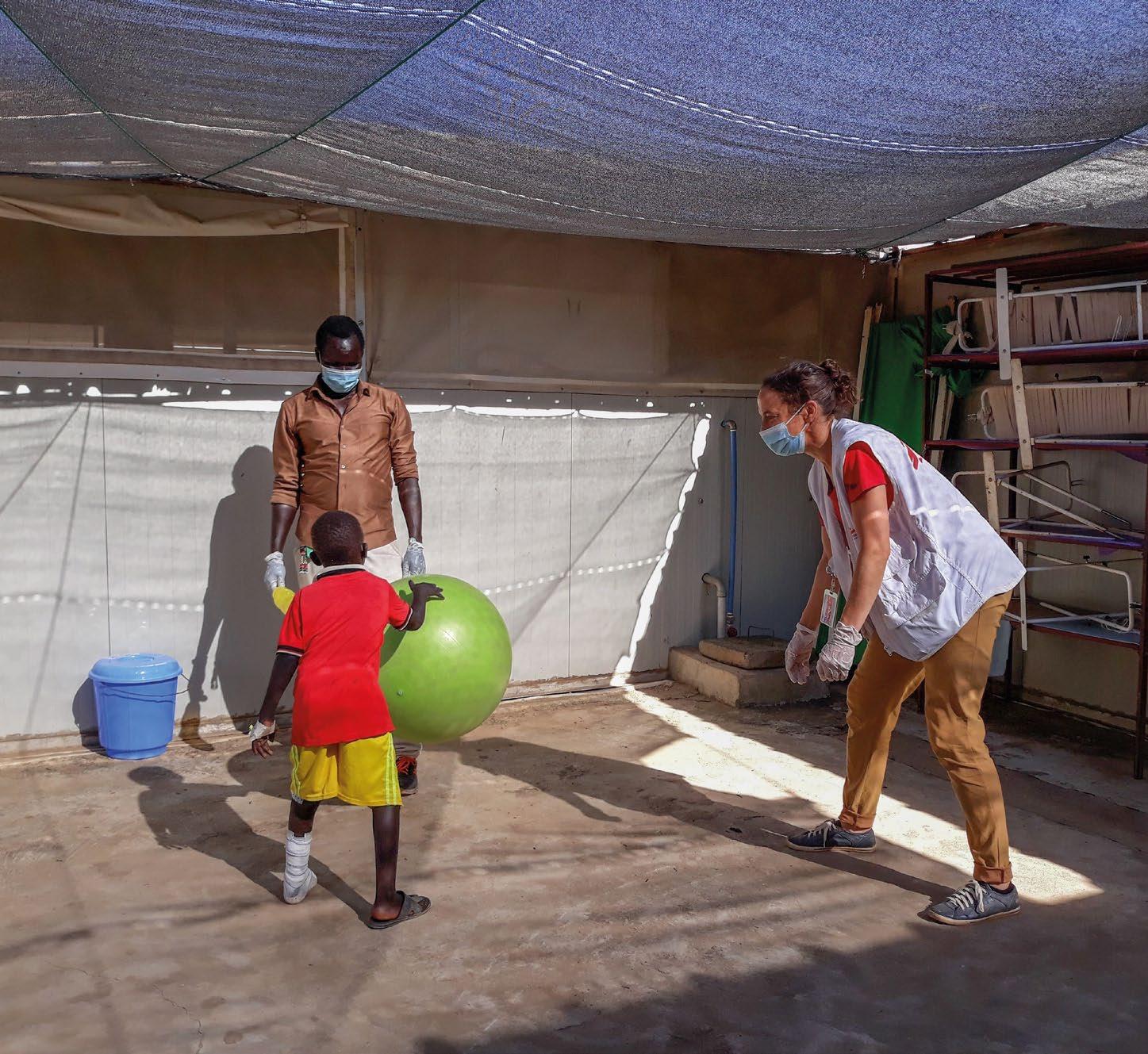
He had been bitten by a snake while playing outside his house in the evening. His father immediately started the 12-hour journey to bring Anyar to the hospital, leaving his wife and their baby behind at home. Anyar and his father slept on the road along the way, as there was no shelter. When they arrived at the hospital, Anyar’s left foot and leg were swollen, posing a risk to his life. When patients are delayed getting to a hospital, treatment of snakebite
can be very difficult: the delays may cause serious damage, including ‘compartment syndrome’, where swelling caused by the venom increases pressure within a muscle compartment to the point that blood cannot supply the muscles and nerves with oxygen and nutrients. Even with antivenom, muscles and nerves fail and may eventually die without surgery.
In Anyar’s case, the Médecins Sans Frontières team performed an operation to save his leg. After the surgery, physiotherapy was an essential step in Anyar’s recovery. When he first started the sessions, he would cry, but as the physiotherapists created a
fun environment, he started to enjoy them. In early December (in the session pictured), Anyar walked without any support for the first time since the snakebite.
Snakebite is a hidden health crisis. Every year, an estimated 2.7 million people are bitten by venomous snakes, resulting in death for more than 100,000 people and lifelong disfigurement and disability for 400,000 more.
Médecins Sans Frontières Australia Annual Report 2020 – 17
Physiotherapists Ngong Ngong Amet (left) and Birgit Schönharting with Anyar. © Damaris Giuliana/MSF
DEMOCRATIC REPUBLIC OF CONGO
COVID-19 brought an additional burden to the Democratic Republic of Congo (DRC), a country with immense medical needs caused by years of overlapping crises and a weak, underfunded health system.
In addition to COVID-19, in 2020 DRC faced three other large epidemics: measles, Ebola and cholera. Despite repeated surges in violent conflict and restrictions imposed due to the pandemic, Médecins Sans Frontières ran emergency responses to each of these outbreaks and maintained regular essential care for people.
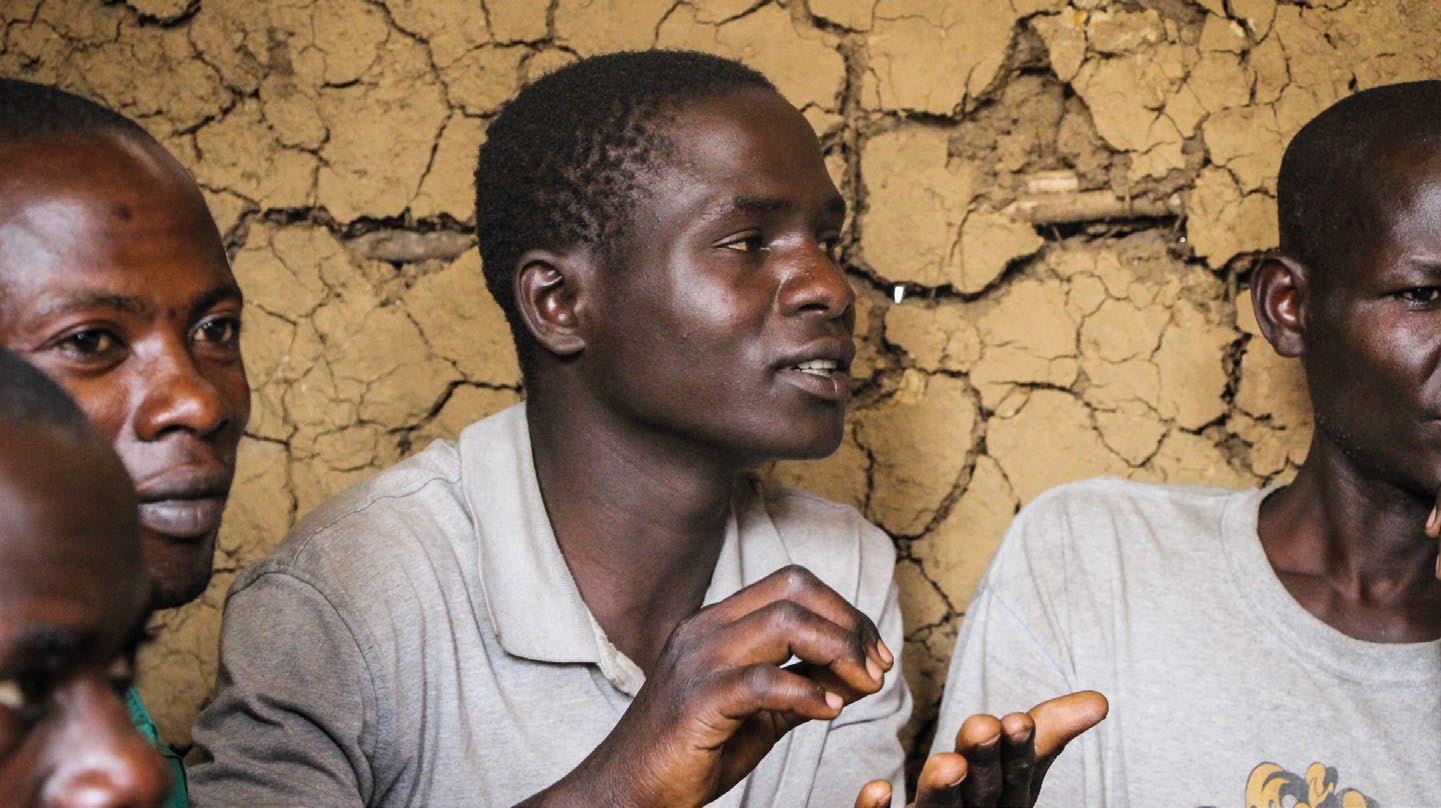
Outbreaks of measles and Ebola
While global attention was focused on the COVID-19 pandemic in 2020, DRC was still facing the world’s largest active outbreak of measles, which started in mid-2018. During 2020, Médecins Sans Frontières treated patients for measles and ran vaccination campaigns in North Kivu province. Country-wide, the Ministry of Health reported 70,652 confirmed cases and 1,023 deaths from January until August 2020, when the outbreak was declared over.
In eastern DRC, the tenth, and the biggest, Ebola outbreak in the country’s history was declared over on 25 June 2020. By then, it had infected 3,470 people and claimed 2,287 lives. Médecins Sans Frontières supported the response in Beni, North Kivu, with detection, isolation and management of patients thought to have Ebola, patient care at a treatment
centre, and provision of non-Ebola care. We also supported vaccination in Goma, North Kivu.
When the 11th outbreak was declared in Équateur province on 1 June, there was a renewed focus on the need for decentralisation of care and strong logistical resources, due to the widespread distribution of cases, accessibility and acceptance issues, and a strong preference for community-based healthcare. Our teams responded in Lotumbe and Ingende, setting up Ebola treatment centres to care for patients as well as isolation units close to communities, and providing support for primary healthcare centres with detection of cases, health promotion and medical equipment donations.
COVID-19
In Goma, North Kivu province, we supported the Ministry of Health to convert an Ebola treatment centre to a dedicated, 20-bed facility for treating patients with COVID-19. In Rutshuru and Bambu-Kibirizi, teams reinforced isolation and triage, and supported infection prevention and control and patient care.
IMPACT:
Around 46,000 children vaccinated against measles in Kibirizi, North Kivu, in an area of active conflict
FIELD STAFF: 644.9
FUNDING: TOTAL AU $35,078,230 $3,983,244
HIV care, maternal healthcare, outbreak response to cholera, COVID-19, Ebola and measles, paediatric care, sexual violence care.
Project locations funded by Australian donors
HAUT-LOMAMI NORTH KIVU
ÉQUATEUR ITURI
Young men attend a mental health and alcohol awareness session, run by Médecins Sans Frontières psychologists for people in the Nizi displacement camp, Ituri. © Lucille Guenier/MSF
KEY ACTIVITIES
Sexual violence
During 2020, Médecins Sans Frontières provided comprehensive care to victims of sexual violence in Rutshuru, Goma, Bambu-Kibirizi and Binza, in North Kivu province. This care included psychological support, treatment for physical injuries, emergency contraception, antibiotics to prevent sexually transmitted infections, vaccinations for tetanus and hepatitis B, and post-exposure prophylaxis to prevent HIV (effective if given within 72 hours of the assault).
The level of sexual violence remains extremely high in DRC, both in provinces affected by active conflict and those considered more stable. Although the number of people seeking sexual violence care in the facilities we supported was high, our teams believe the scale of the problem was significantly under-reported. In the areas where Médecins Sans Frontières worked, we observed obstacles to care for patients, such as armed conflicts, lack of infrastructure, lack of medicines, stigma, shame and fear of reprisal.
HIV care
In Goma, we provided treatment for people living with HIV. Our teams adjusted the project to protect patients from COVID-19 while maintaining care. Patients were given three-months’ worth of medication to reduce the frequency of their visits to a health facility, and a mobile phone application was developed to support community-based follow-up care for patients.
Healthcare for people displaced by conflict
In the Djugu and Mahagi territories of Ituri province, which has been affected by conflict for many years, Médecins Sans Frontières has maintained general and specialist healthcare in long-term projects while responding to emergencies such as epidemics and mass displacement of people. In 2020, teams provided outpatient consultations at health centres, mobile clinics and community care sites, a large proportion of them for malaria, and hospital care. We provided mental health support, and distributed mosquito nets and relief items in the makeshift
displacement camps. However, we had to reduce activities in some areas throughout the year due to the escalation of violence and its impact on the teams.
We considered ways to adapt our way of working in these areas, in order to maintain our health services without exposing patients and staff to high risks.
More than two and a half years of consecutive Ebola outbreaks in DRC ended in November 2020.
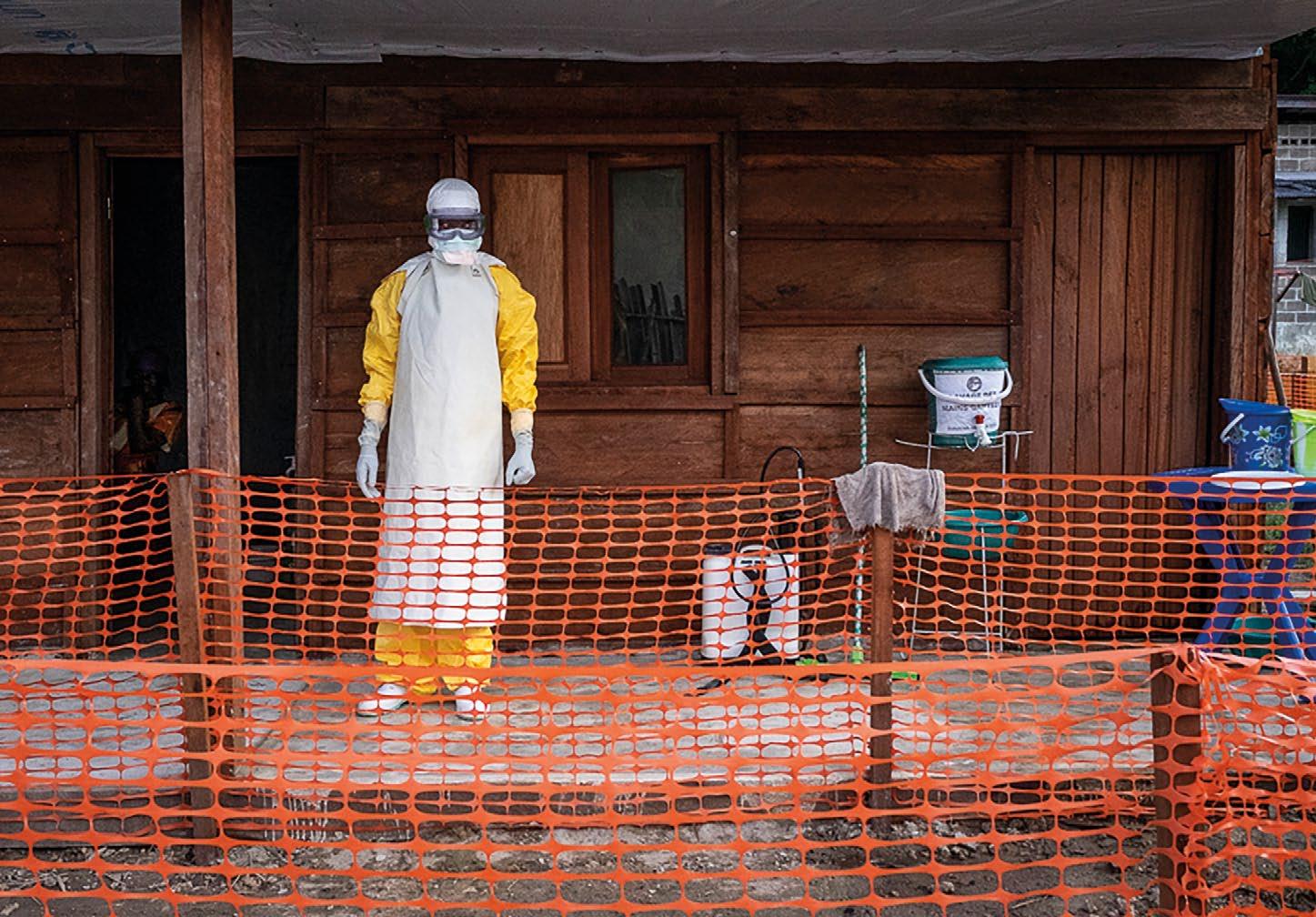 A nurse prepares to visit a patient in the Ebola treatment centre, set up by Médecins Sans Frontières in Lotumbe, Équateur. © Caroline Thirion/MSF
A nurse prepares to visit a patient in the Ebola treatment centre, set up by Médecins Sans Frontières in Lotumbe, Équateur. © Caroline Thirion/MSF
Médecins Sans Frontières Australia Annual Report 2020 – 19
YEMEN
Although the COVID-19 pandemic hit Yemen hard in 2020, it was just one of many crises unfolding in the country, still at war after five years.
The conflict in Yemen showed no sign of abating, despite the rampant spread of COVID-19 in the country. More people than ever before were left without healthcare, as many of the last parts of the already crippled healthcare system stopped functioning during the outbreak.

Restrictions by the local authorities on the work of aid organisations complicated our work, and healthcare facilities and workers continued to be attacked. Many civilians were killed or injured in shelling, air raids or shootings. Despite these challenges, Médecins Sans Frontières continued to provide essential care for people in several governorates.
COVID-19
The potential for COVID-19 to devastate Yemen was evident from the beginning of the pandemic: a country fragmented by fighting, with a collapsed health system and a population too poor to simply stop working and stay at home. There was also a widespread reluctance to believe that the virus was real, or a threat to Yemen.
Médecins Sans Frontières supported treatment centres within Al-Amal hospital in Aden and Al-Kuwait hospital in Sana’a, the main treatment centres in the two biggest cities, working with the local health authorities to respond to the needs. In May, we took over the management of the Al-Amal treatment centre. Meanwhile, our staff put prevention measures in place in all
our regular projects so that they could continue to offer essential healthcare.
The first case of COVID-19 was officially confirmed in Yemen on 10 April, although rumours of cases had been circulating before then. Testing remained extremely limited throughout the country and the health authorities in areas controlled by Ansar Allah did not publicly release COVID-19 test results. At the end of April many people were already sick and, by May, the situation was catastrophic, particularly in Aden, with a surge in deaths. Fear of the virus was widespread, and people were hesitant to come to hospital. By the time many patients arrived to seek care from our teams, it was too late.
We also saw that many other hospitals and health facilities had shut their doors as their staff feared the virus and lacked personal protective equipment. Yemenis who already had very few options for accessing healthcare were therefore deprived of their last remaining chances to get lifesaving treatment.
The number of COVID-19 cases appeared to reduce sharply during summer, and by September, we had handed over all our major activities to the local health authorities. However, we continued training and other activities in preparation for a potential second wave.
IMPACT:
Support and management of the two main COVID-19 treatment centres in Yemen’s two major cities, Aden and Sana’a, providing treatment for patients mostly with symptoms requiring oxygen
FIELD STAFF: 870.4
FUNDING:
TOTAL $43,388,180
AU $3,193,692
NZ $716,891
KEY ACTIVITIES
COVID-19 response, maternal and newborn healthcare, nutrition, paediatric care, surgery.
Project locations funded by Australian and New Zealand donors
SA’ADA AMRAN SANA’A IBB ADEN SAUDI ARABIA
A health promotion team runs an outreach activity in Dhi As Sufal district, Ibb governorate, to educate people about COVID-19 as part of our activities attached to the district’s general rural hospital. © Majd Aljunaid/MSF
Responding to other crises
Despite the heavy toll that COVID-19 took on Yemen, the number of reported air strikes and active frontlines increased. Our teams offered surgical care for wounded people in Aden and in Haydan, in the far north of Sa’ada governorate, where we built a new operating theatre.
We also continued to provide essential care, including for women, children and newborns, through running and providing support for hospitals across Ibb, Amran and Sa’ada governorates.
Our hospitals in Haydan (Sa’ada) and Khamir (Amran) also saw higher than usual seasonal peaks of children presenting with malnutrition. While it is difficult to know for certain what caused the spikes, living costs in Yemen have risen, particularly for food and fuel. Some healthcare facilities previously supported by international aid organisations have reduced their services as the funding for the relief effort in Yemen has dried up. As a result, sick children have not received treatment and have gone on to develop malnutrition.
Nevertheless, in the areas where we work, we have not yet seen evidence of imminent famine: a situation where large swathes of a population, adults as well as children, are affected and die from a combination of a lack of food and diseases brought on by malnutrition.
Restrictions and attacks on our activities
Both Ansar Allah and the Saudi-led coalition continued to impose movement restrictions on humanitarians inside Yemen, hampering activities such as needs assessments and mobile clinics.
STAFF STORY FROM YEMEN
“Respiratory illnesses are one of the major causes of death and illness in children less than five years old worldwide and Khamir is no exception. Babies would present to the hospital in severe respiratory distress caused by bronchiolitis, pneumonia, whooping cough or as a result of prematurity.
Administrative difficulties around obtaining visas for specialist staff and importing supplies also complicated the provision of aid.
NAME: Alison Moebus
HOME: VIC, Australia
ROLE: Paediatric and neonatal nurse
In 2020, Alison joined the team in Al-Salam hospital in Khamir, northern Yemen, to train fellow nurses, assess their competency, and help implement humidified high flow oxygen.

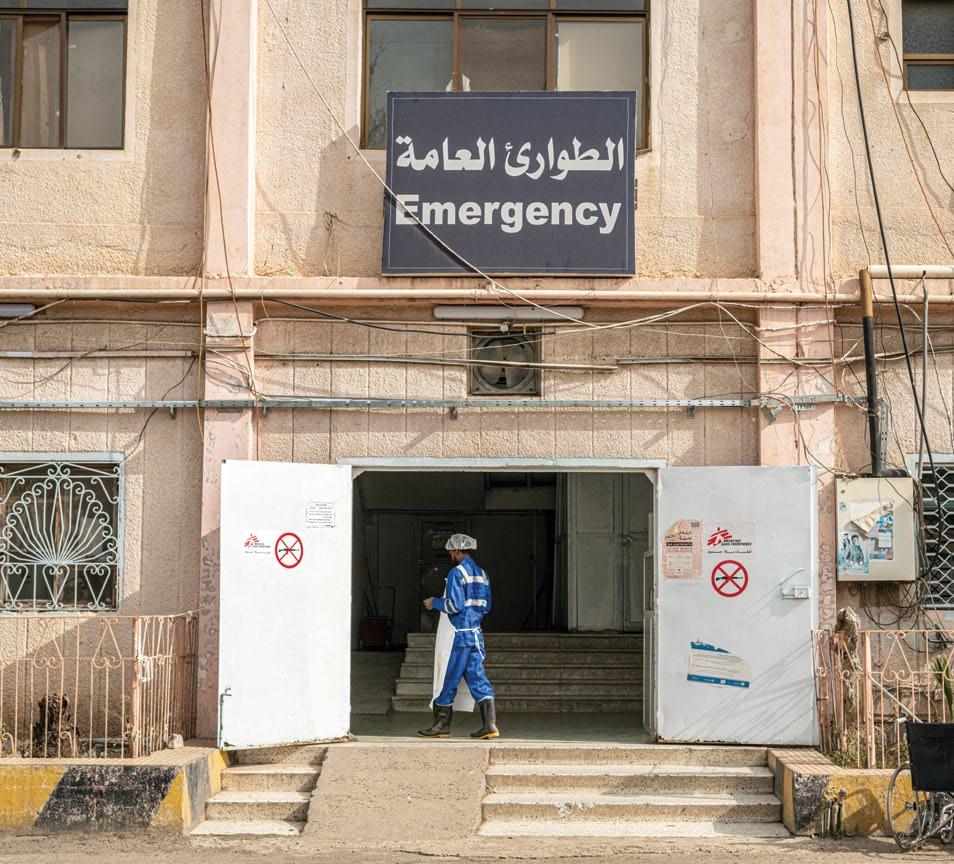
Humidified high flow nasal cannula oxygen therapy, or ‘high flow’, provides slightly more respiratory support than the traditional low flow oxygen therapy you receive through a mask or nasal cannulas. Although high flow is commonly used in the care of sick children in many neonatal and paediatric departments around the world, it is less utilised in lowresource settings, and had not been used before by Médecins Sans Frontières in Yemen.
There was a lot of excitement among the nurses and nursing assistants about the
implementation of high flow and the implications for our patients. The nurses in Khamir are very skilled but the option of respiratory therapy beyond standard oxygen therapy had never been available before. The nurses attended training workshops where we covered topics such as respiratory anatomy and physiology, respiratory assessment and how high flow worked.
After the nurses and nursing assistants had been trained (the doctors were trained by a paediatrician) we started high flow with our first patient: a two-week-old baby girl with pneumonia. Over the next 10 days she slowly improved, not only with the high flow oxygen therapy and antibiotics, but with the care from the nursing and medical staff in partnership with her family.”
Outside the Médecins Sans Frontières-supported COVID-19 treatment centre in Al-Kuwait hospital, Sana’a. © Hareth Mohammed/MSF
Médecins Sans Frontières Australia Annual Report 2020 – 21
CAMEROON
For people in Cameroon, 2020 was marked by repeated outbreaks of armed violence, followed by new waves of displacement.
In Cameroon’s Far North region, communities continued to suffer the consequences of daily armed clashes, while facing high levels of food insecurity due to the unpredictable climate.
Médecins Sans Frontières worked to address some of the gaps in healthcare in this region, including for Nigerian refugees and internally displaced people.
Mora and Kolofata
Our teams launched general healthcare activities in Kolofata in 2020, and our existing project in Mora town was extended to include emergency surgery. Previously, many patients requiring trauma and obstetric surgery were referred from Mora to our project at Maroua regional hospital. The Mora team also continued to treat malaria, diarrhoea and severe acute malnutrition, providing around 69,000 consultations during the year. Médecins Sans Frontières community health workers, who were
trained to treat simple cases of common diseases such as malaria, diarrhoea and severe acute malnutrition without complications, conducted more than 32,000 consultations in localities around the town.
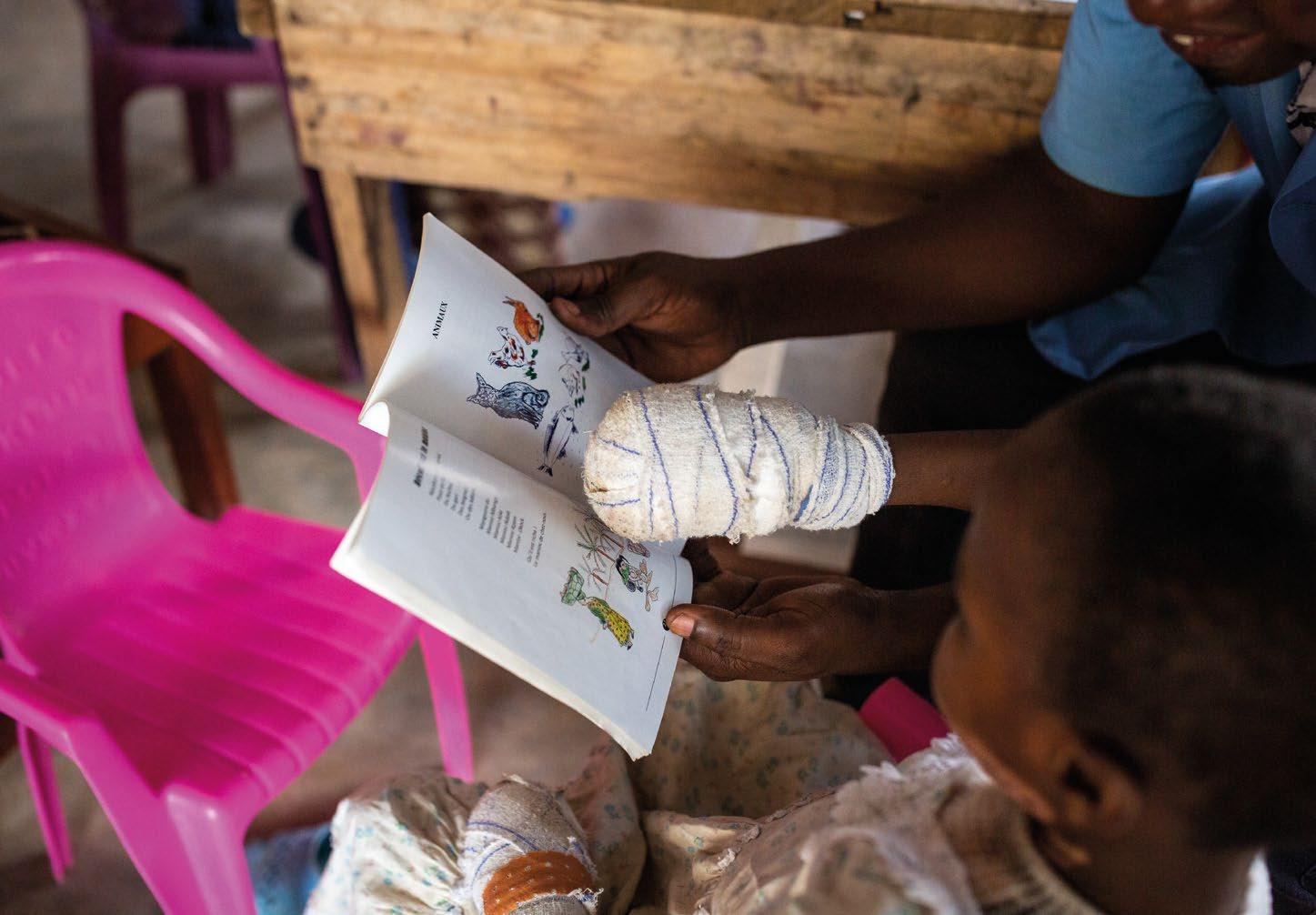
Closure of activities in Maroua
In 2020, we concluded our support to Maroua regional hospital, which had a focus on surgical and psychological care, including for people wounded in violence. Our activities at the hospital in 2020 included training specialist staff and refurbishing the intensive care unit and other parts of the facility.
KEY ACTIVITIES
Emergency surgery, general healthcare, malaria care, malnutrition care.
locations funded by Australian donors
IMPACT:
General healthcare launched in Kolofata to expand people’s access to care and the Mora project extended to include emergency surgery
FIELD STAFF: 292.2
FUNDING: TOTAL AU $9,939,160 $3,500,000
Project
NIGERIA MAROUA
MORA KOLOFATA FAR NORTH
Children participate in a psychostimulation activity organised by Medecins Sans Frontieres for young patients at Maroua regional hospital. © Patrick Meinhardt/MSF
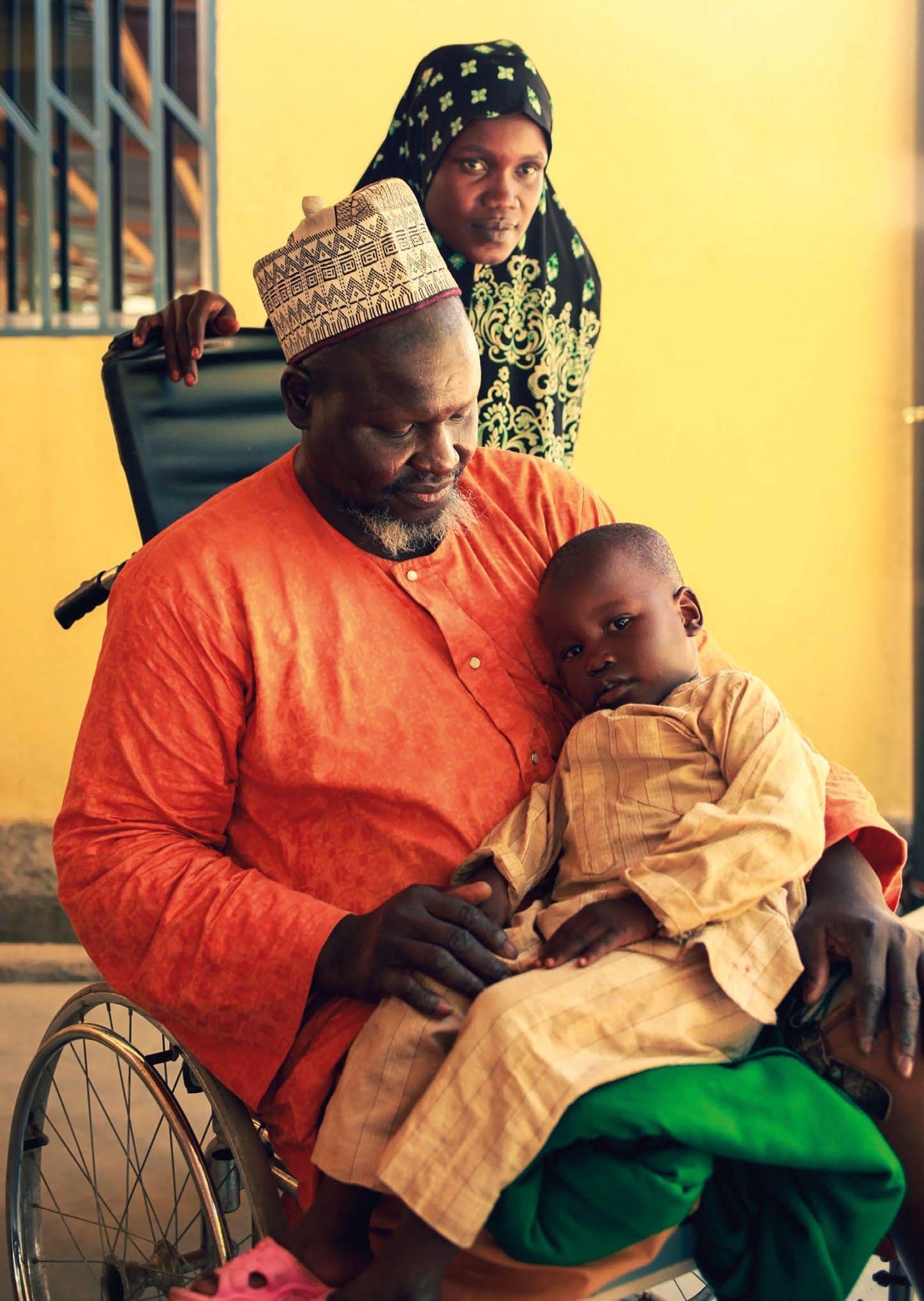
– 23
A patient accompanied by his son and wife, after recovering from an amputation he received at Maroua regional hospital following complications with his blood circulation and gangrene. © Scott Hamilton/MSF
Médecins Sans Frontières Australia Annual Report 2020
COVID-19: RESPONDING TO THE PANDEMIC
Over the course of 2020, COVID-19 thrust the world into a severe global health crisis.
The rapid spread of the virus put a tremendous strain on healthcare systems, as many patients with potentially life-threatening respiratory disease required specialised care, and health providers struggled to access personal protective equipment and essential medical supplies. At the same time, most countries saw exacerbated health and humanitarian needs.

Médecins Sans Frontières launched our first COVID-19 response programs as early as January 2020, and rapidly scaled up our response from March. Worldwide, we worked alongside health workers and communities in low-resource settings and conflict zones, as well as in high-income countries such as Italy, France and the United States.
Priorities of the response
Our COVID-19 response in 2020 focused on these key areas:
• Care for patients with COVID-19: providing consultations and testing for people thought to have the virus, hospital care including intensive care such as respiratory support for patients with severe illness, and mental healthcare.
• Protecting people at-risk: such as remote or indigenous communities, people on the move or living in precarious conditions like refugee camps, homeless people and the elderly.
• Keeping essential medical services running: from treatment for HIV and tuberculosis, to prevention of malaria and measles, and responses to other infectious disease outbreaks such as cholera and Ebola.
• Protecting healthcare workers and health facilities: including through technical training, infection prevention and control measures such as installation of handwashing stations, and improved water supply and sanitation. Activities also included counselling and mental health support to healthcare workers.
Advocating for equitable access to COVID-19 diagnostics, treatments and vaccines
As a leader in global health advocacy for vulnerable and neglected communities, Médecins Sans Frontières led several advocacy initiatives focused on ensuring improved production of protective and medical equipment required to tackle the pandemic, and on equitable access to COVID-19 diagnostics, treatments and vaccines.
From as early as March, Médecins Sans Frontières called for no patents or profiteering on drugs, tests or vaccines used in the pandemic, and for governments to suspend and override patents and other intellectual property to ensure availability, reduce prices and save more lives. With several promising COVID-19 therapeutics and vaccines becoming available at the end of the year, we launched public calls and advocacy campaigns directed at pharmaceutical companies, governments and international bodies including the World Trade Organization.
THANK YOU FOR SUPPORTING OUR COVID-19 EMERGENCY RESPONSE
In 2020, Australian and New Zealand donors contributed $3.5 million to Médecins Sans Frontières’ international COVID-19 Crisis Fund.
The fund was launched in March 2020 to support our new COVID-19 activities and mitigate the impact of the pandemic on our regular services.
We are incredibly grateful for our donors’ generosity, which has enabled us to allocate essential resources towards the projects and communities most in need.
Our donors also contributed to the purchase of one million masks, which were sent from Australia to our projects overseas to protect healthcare workers from COVID-19.
Nurse Mayra Leandro (right) tests a patient’s blood sugar level in Lagoinha village, accompanied by a health worker colleague from the Special Indigenous Health District of Mato Grosso do Sul, Brazil. © Diego Baravelli/MSF
Médecins Sans Frontières’ global COVID-19 response in 2020
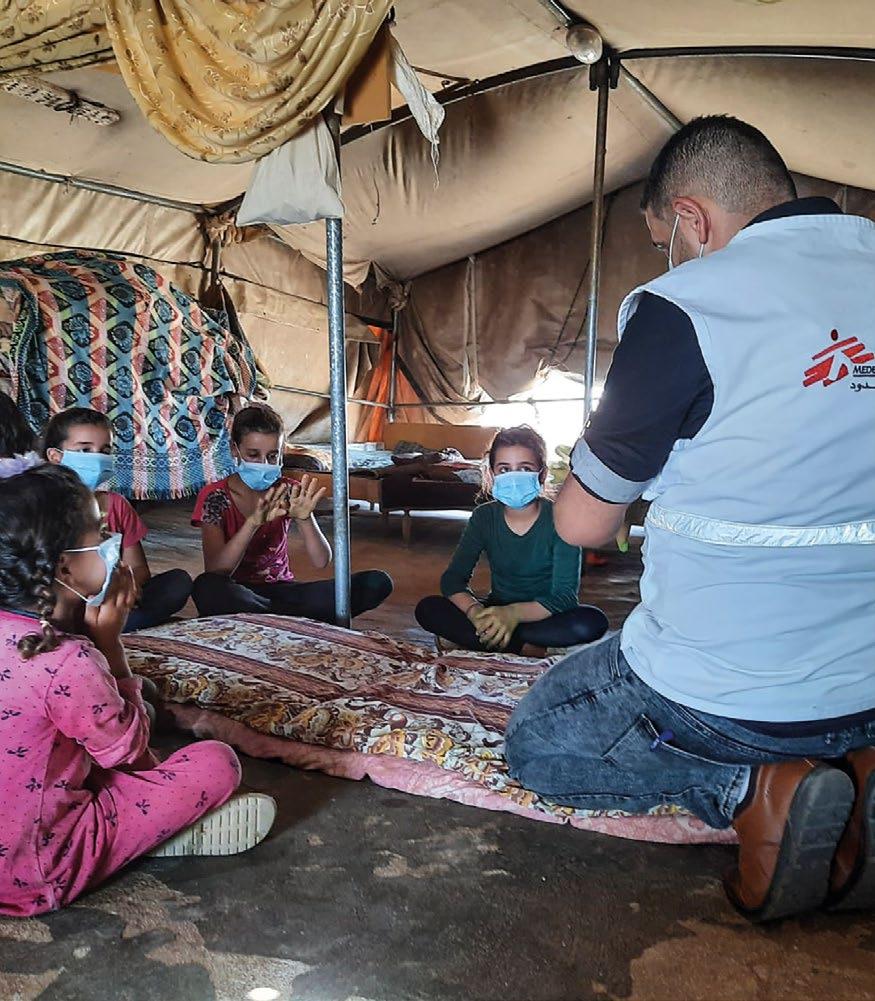
Projects
• 302 projects with COVID-19 activities, in 70 countries
• 40% of projects had a mental health component
Health facilities
• 778 health facilities provided with COVID-19 technical, training or material support
• 156 health facilities provided with medical support for COVID-19 patients
Protective equipment and health promotion
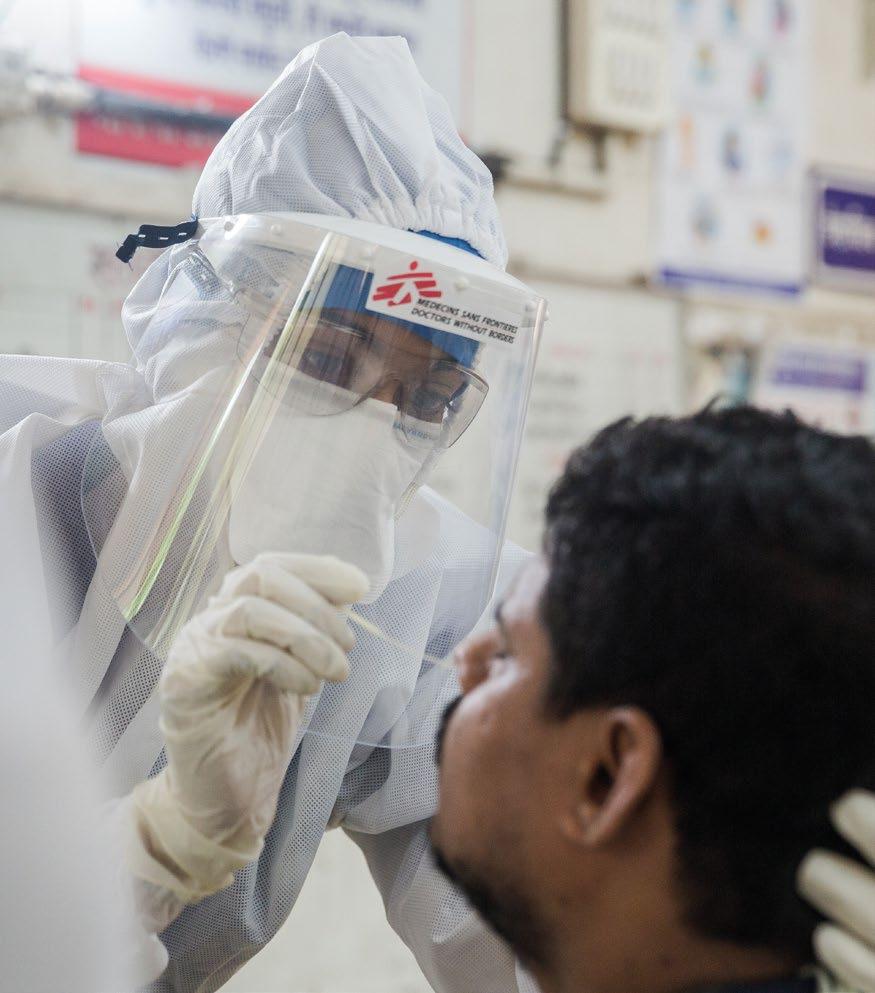
• 61.3 million pieces of personal protective equipment packed by our supply centres
• 301,000 health promotion sessions conducted in health structures
• 376,000 health promotion sessions conducted in communities or other facilities
Care for patients
• 112,000 outpatient consultations provided
• 93,000 COVID-19 tests conducted
• 6,000 patients with severe COVID-19 illness treated
Dr Sharanya Ramakrishna provides COVID-19 testing for a patient at the COVID-19 health centre at Pandit Madan Mohan Malviya Shatabdi hospital, Mumbai, India. © Abhinav Chatterjee/MSF
Counsellor educator Nader Owidat conducts a COVID-19 health promotion activity for children in Hebron, in Palestine’s West Bank. © MSF
Médecins Sans Frontières Australia Annual Report 2020 – 25
AFGHANISTAN
KEY ACTIVITIES
In Kabul, comprehensive and emergency obstetric and neonatal care, including ante- and postnatal care and family planning, at the 100-bed Dasht-e-Barchi hospital; medication and medical equipment donations to the Ministry of Health following Médecins Sans Frontières’ withdrawal from Dasht-e-Barchi in mid-June after the attack; in Herat, intensive therapeutic feeding in the associated paediatric hospital, health services for displaced people in Kadhestan and Shadayee settlements, treatment for patients with COVID-19 at our Gazer Ga treatment centre and COVID-19 triage in Herat regional hospital.
BANGLADESH
KEY ACTIVITIES
In the Cox’s Bazar district, essential healthcare for Rohingya refugees and local communities at three facilities, including emergency care, paediatric care, therapeutic feeding, sexual and reproductive healthcare, mental healthcare and treatment for non-communicable diseases, while COVID-19 led to the reduction of routine vaccinations and community disease surveillance; response to COVID-19 including patient care, isolation of patients thought to have the virus, infection prevention and control and distribution of masks and other personal protective equipment.
IMPACT:
Oxygen therapy provided at our 32-bed COVID-19 treatment centre in Herat, for severely affected patients
FIELD STAFF: 429
FUNDING: TOTAL AU $14,173,500 $1,489,617
Hosnia with Ilina, her first child, who was born without complications at the Dasht-e-Barchi hospital in Kabul (December 2019). © Sandra Calligaro/MSF

IMPACT:
Around 18,670 mental health consultations provided in Cox’s Bazar
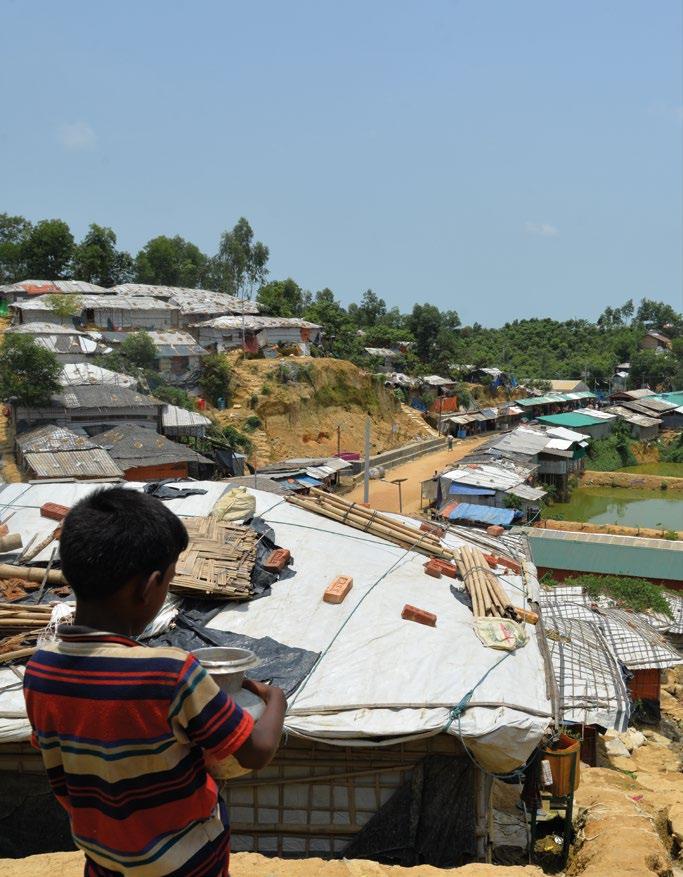
FIELD STAFF: 222
FUNDING: TOTAL AU $7,990,950 $1,496,471
Project locations funded by Australian donors
KABUL HERAT
TURKMENISTAN
IRAN
PAKISTAN
A child looks over one of the camps for Rohingya refugees in Cox’s Bazar (2019). © Mohammad Ghannam/MSF
Project locations funded by Australian donors
INDIA
COX’S BAZAR DISTRICT
BURKINA FASO
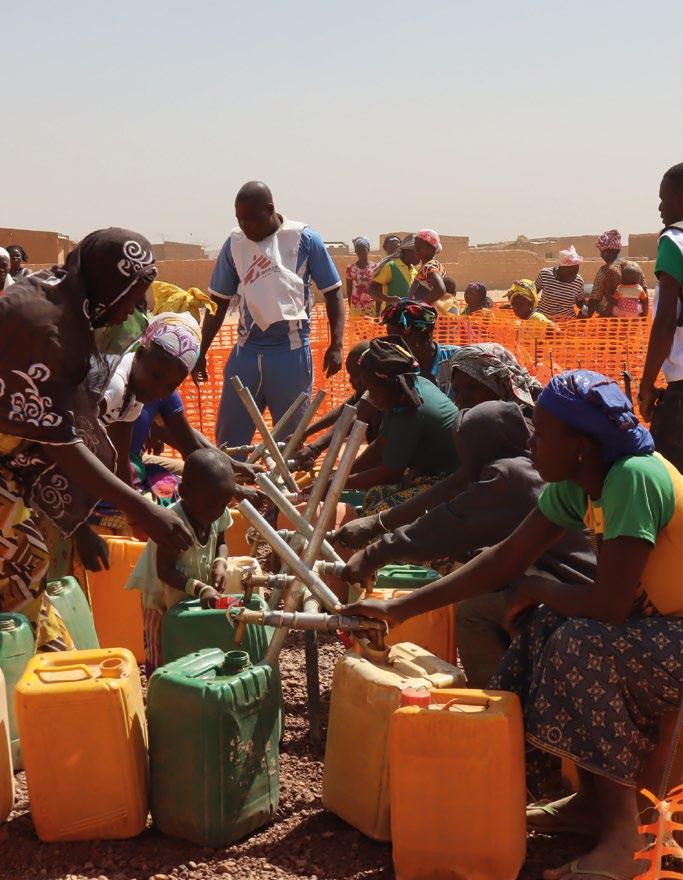
KEY ACTIVITIES
Assistance for displaced people and local communities affected by violence in Nord and Centre-Nord regions, including paediatric care, nutrition and internal medicine in the Titao hospital, support for primary healthcare centres, medical care and basic relief item distribution via mobile clinics, and water and sanitation; measles vaccination in response to an outbreak in the villages of Boromo and Dédougou, in Boucle du Mouhoun region; COVID-19 response in Bobo-Diouslasso city, Hauts-Bassins region, including treatment of patients with COVID-19 at a dedicated treatment centre, contact tracing and awareness raising.
CENTRAL AFRICAN REPUBLIC
KEY ACTIVITIES
Care for people living with HIV, including testing, treatment at health facilities and via mobile clinics, and community antiretroviral groups to assist patients to adhere to treatment; care for tuberculosis and noncommunicable diseases, including diabetes; maternal, paediatric and neonatal healthcare; malnutrition screening and prevention, and therapeutic feeding; comprehensive care for victims of trauma, including surgery and rehabilitation; primary healthcare focused on people in displacement sites; consultations for victims of sexual violence; mass vaccination campaigns in response to the nationwide measles epidemic; infection prevention and control measures in response to COVID-19.
IMPACT:
110,000 children vaccinated against measles in Boucle du Mouhoun region
FIELD STAFF: 140
FUNDING:
TOTAL AU $11,132,550 $2,000,003
IMPACT:
Development of outpatient follow-up care clinics for patients with chronic disease, with the aim to improve continuity of care and long-term disease management
FIELD STAFF:
1,114
FUNDING: TOTAL AU $31,315,350 $2,985,441
Drucille eats a meal of porridge outside the Paoua hospital, where she is receiving treatment for diabetes. © Seigneur Yves Wilikoesse/MSF
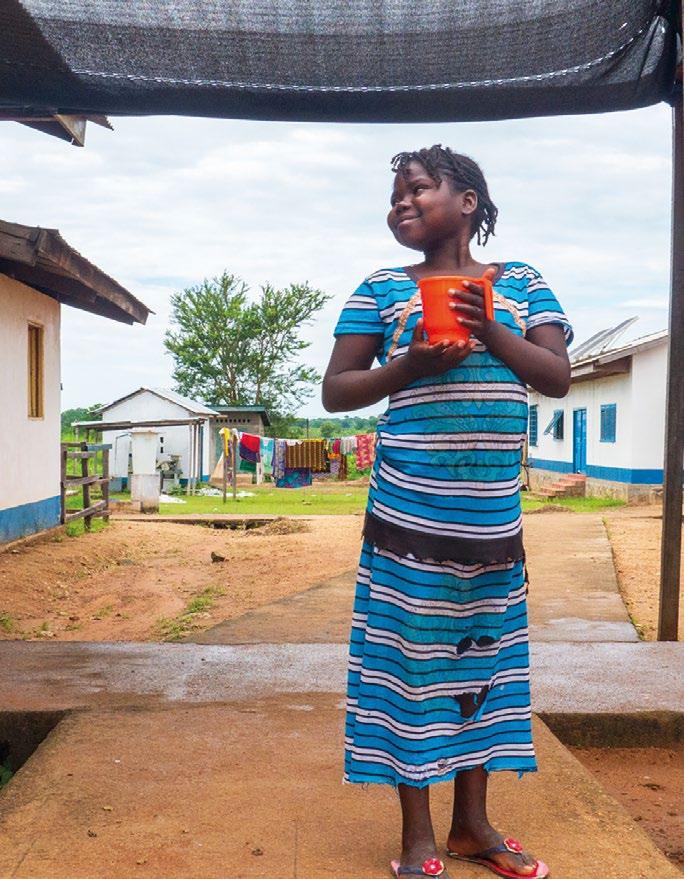
Médecins Sans Frontières Australia Annual Report 2020 – 27
People collect water at a distribution site set up by Médecins Sans Frontières in Titao (February 2020). © Noelie Sawadogo/MSF
NORD CENTRENORD HAUTSBASSINS BOUCLE DU MOUHOUN
Project locations funded by Australian donors
CARNOT OUHAM-PENDÉ HAUTE-KOTTO
Project locations funded by Australian donors
BANGUI BRIA PAOUA
CHAD
KEY ACTIVITIES
Maternal, paediatric and neonatal care at Moïssala hospital and support to 25 community health centres in the district, with work to improve access to medical services for women and children across all levels of care; seasonal malaria chemoprevention in Moïssala via a large-scale campaign to reduce the effects of malaria and complications on children; measles vaccination in Kyabé district; in the capital N’Djamena, treatment for severely malnourished children and donations of ready-to-use therapeutic foods to other health providers during stock-outs; medical and logistical support for the COVID-19 response.
ESWATINI
KEY ACTIVITIES
In Nhlangano, Shiselweni region, community-based care for patients with drug-resistant tuberculosis (DR-TB) via home visits to provide medication, video-observed therapy for taking medication at home, food, psychological support and masks and sanitiser; support to the national DR-TB ward including nursing care, medicine donations and COVID-19 prevention and testing; at mobile clinics and a health post, testing, screening and medication refills for patients with tuberculosis, HIV and non-communicable diseases, and COVID-19 prevention advice; family planning, provision of preexposure prophylaxis (to prevent HIV infection), HIV self-testing and treatment for HIV and sexually transmitted infections; COVID-19 testing and home-based care and referrals for people with COVID-19.
IMPACT:
Around 69,000 patients treated for malaria in community health centres supported by Médecins Sans Frontières
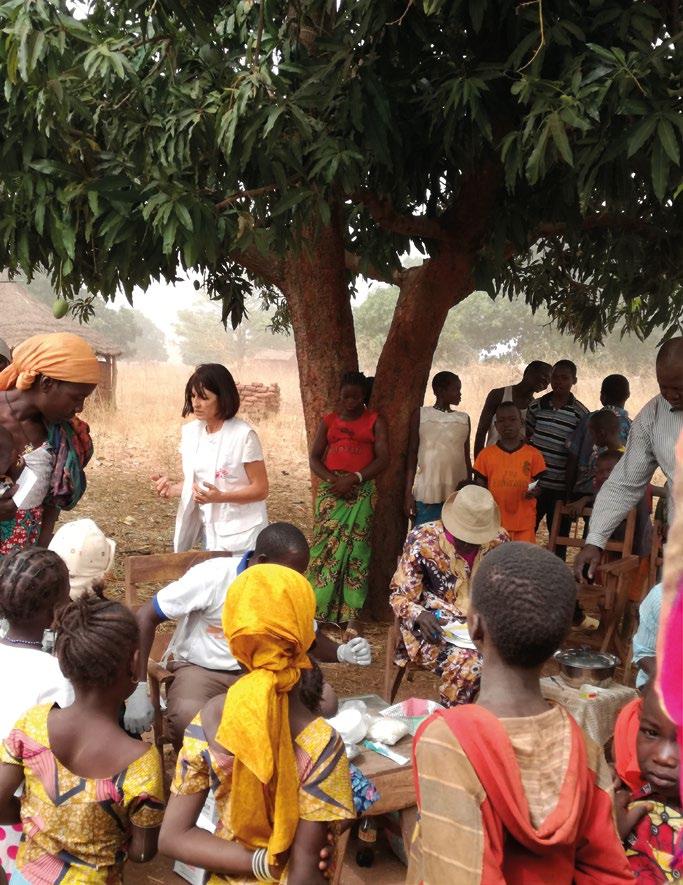
FIELD STAFF: 230
FUNDING:
TOTAL AU $14,010,150 $1,000,000
Médecins Sans Frontières runs a measles vaccination campaign in Samingualé village, Kyabé (February 2020). © Félix Guillou/MSF
IMPACT:
Study completed on early diagnosis and treatment of HIV, in the window of time between a patient being infected and receiving an accurate test result, to guide future work on HIV epidemic control
FIELD STAFF:
254
FUNDING:
TOTAL AU
$4,416,720 $500,000
A nurse trains a patient with multidrug-resistant tuberculosis to use video-observed therapy to take medication at home, rather than travel to a health facility for direct nurse-observed therapy. © Jakub Hein/MSF
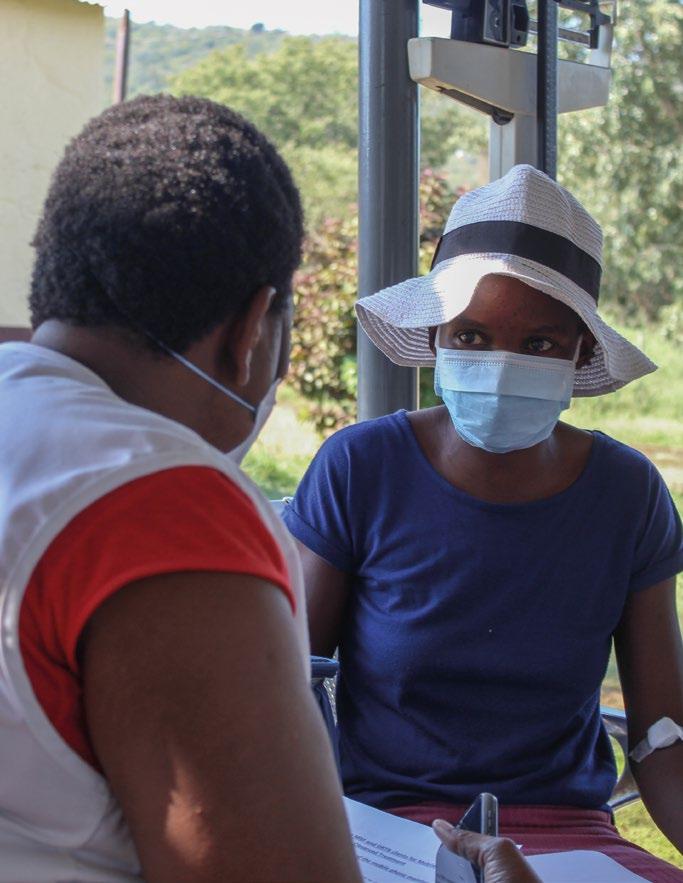 Project locations funded by Australian donors
SHISELWENI
SOUTH AFRICA
Project locations funded by Australian donors
N’DJAMENA
MOISSALA
LIBYA KYABÉ
Project locations funded by Australian donors
SHISELWENI
SOUTH AFRICA
Project locations funded by Australian donors
N’DJAMENA
MOISSALA
LIBYA KYABÉ
HAITI
KEY ACTIVITIES
At Tabarre trauma hospital, emergency care, surgery, physiotherapy and psychosocial care for patients with life-threatening trauma injuries, such as open bone fractures or bullet wounds to the chest or abdomen; at Drouillard specialist burns hospital (the only of its kind in Haiti), treatment of patients with complex burn injuries, including many sustained from domestic accidents caused by precarious living conditions; repurposing of the Drouillard hospital to treat patients with COVID-19 from May until August, with patients requiring hospital care for burns transferred to Tabarre hospital; COVID-19 health promotion.
People in Haiti face multiple barriers to healthcare amid an ongoing political and economic crisis.
HONDURAS
KEY ACTIVITIES
Within a mother and child clinic in Choloma, sexual and reproductive healthcare including family planning, ante- and postnatal consultations and safe delivery care, as well as psychological support for victims of violence.
IMPACT: 4,058 surgical interventions performed at Tabarre trauma hospital
FIELD STAFF: 651
FUNDING: TOTAL AU $19,726,050 $997,939
Wilfrid completes a physiotherapy session at the Tabarre trauma hospital in Port-Au-Prince, two months after having his arm amputated.
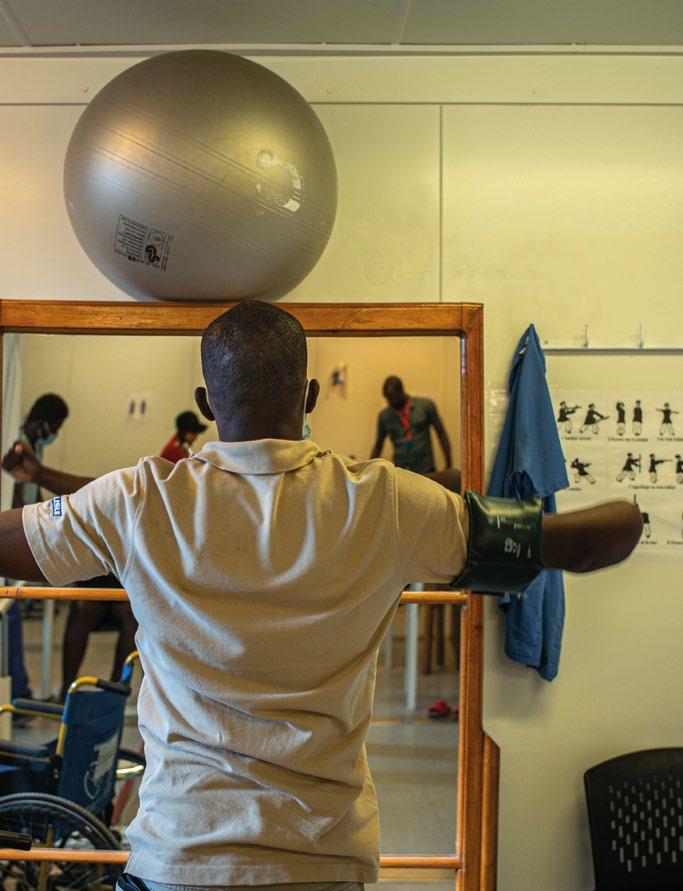 © Guillaume Binet/MYOP
© Guillaume Binet/MYOP
IMPACT:
Continuity of care provided for patients at our mother and child clinic in Choloma, the only one in the area, during the COVID-19 state of emergency and lockdown

FIELD STAFF: 73.2
FUNDING: TOTAL AU $2,653,420 $500,000
Women line up in the waiting room of the mother and child clinic in Choloma (2019). © Christina Simons/MSF
29
Médecins Sans Frontières Australia Annual Report 2020 –
Project locations funded by Australian donors
PORT-AU-PRINCE
Shelley Harris-Studdart. ©MSF
Before Médecins Sans Frontières opened the project in Choloma in 2017, there were few healthcare facilities catering for the needs of women in the area.
Project locations funded by Australian donors
CHOLOMA
IRAN
KEY ACTIVITIES
Via a health facility and mobile clinic in South Tehran, comprehensive care for groups of people who are at high-risk of infectious diseases and often excluded from healthcare, such as people who use drugs, Afghan refugees and homeless people: services included medical consultations, testing for communicable diseases (HIV, tuberculosis, hepatitis B), testing and treatment for hepatitis C, treatment for sexually transmitted infections such as syphilis, specialist referrals, ante- and postnatal care, family planning and mental health support; in Mashhad, similar services with a focus on refugees, host communities, residents of a women’s shelter and people who use drugs via mobile clinics and a fixed clinic in Golshahr district; preparations to set up a 50-bed COVID-19 treatment unit in Isfahan (approval revoked).
JORDAN
KEY ACTIVITIES
At our reconstructive surgery hospital in Amman, comprehensive care for patients injured in conflicts across the Middle East, from surgery through to longer term psychosocial support, limited to essential surgery for existing patients for some months due to border closures during the pandemic; COVID-19 response from November to December centred around a 40-bed dedicated COVID-19 ward in the hospital, opened to respond to the Ministry of Health’s request for assistance during a spike in cases.
Lujain underwent her first surgery at the Amman hospital in July 2020, to treat the burns to her neck and allow her more mobility.
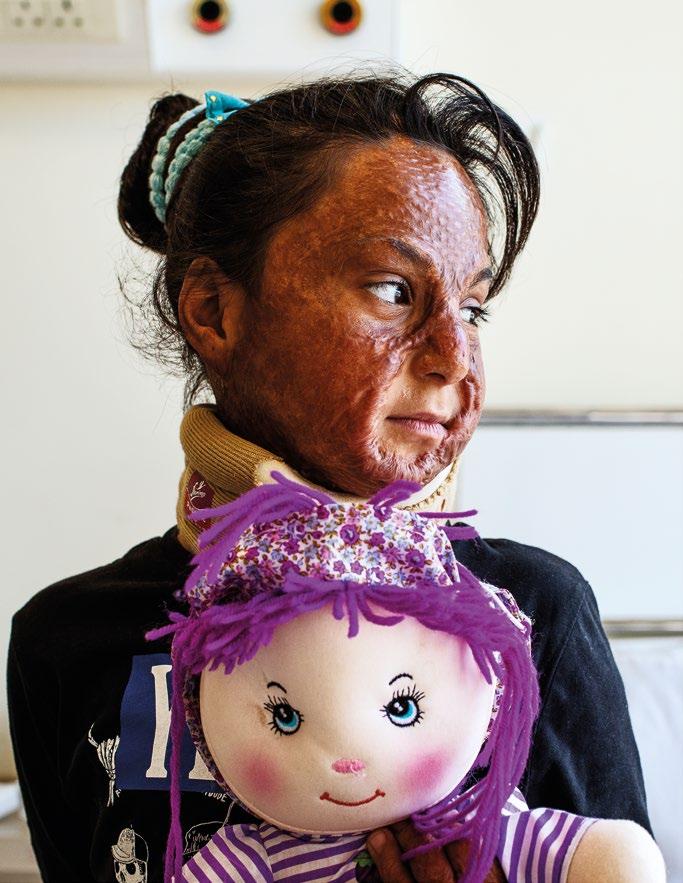 © Hussein Amri/MSF
© Hussein Amri/MSF
IMPACT:
Healthcare services in Mashhad extended to 11 camps for people who are in remission from using drugs
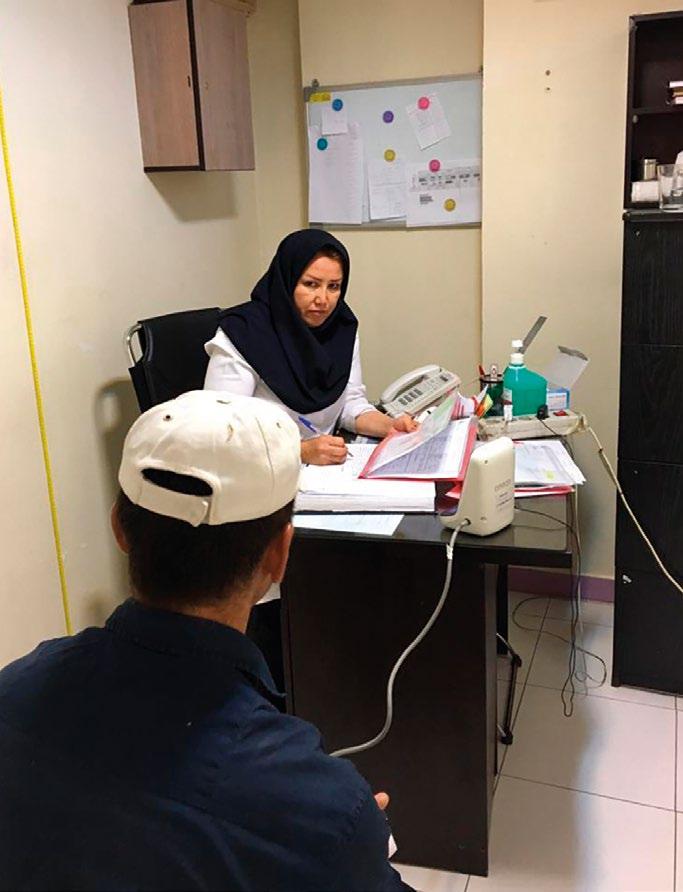
FIELD STAFF: 91
FUNDING: TOTAL AU $4,030,950 $1,500,000
IMPACT:
Improved quality of care for patients at our reconstructive surgery hospital through pain management, nutrition monitoring, strengthened mental health assessments, specific protocols for child patients, and a focus on occupational therapy
FIELD STAFF: 269
FUNDING: TOTAL AU $18,963,450 $2,377,059
Project locations funded by Australian donors
SAUDI ARABIA
AMMAN
A patient attends a consultation at the Médecins Sans Frontières clinic in South Tehran (2019). © MSF
Project locations funded by Australian donors
SAUDI ARABIA
IRAQ
TEHRAN MASHHAD
KENYA
KEY ACTIVITIES
In Nairobi, combined medical and psychosocial care for victims of sexual and gender-based violence, a trauma room and ambulance service for emergencies and the introduction of family planning across all services; in Homa Bay, treatment for patients living with HIV, with a focus on people with advanced HIV, children and adolescents, and on reducing mortality through better identification, management and follow-up of patients with critical conditions; in Dagahaley camp, comprehensive services for refugees and the local community including sexual and reproductive healthcare, emergency obstetric care, assistance for victims of sexual and gender-based violence, psychological counselling, home-based insulin treatment, palliative care and specialist referrals; COVID-19 isolation and training of staff in infection prevention and control, screening and swab collection.
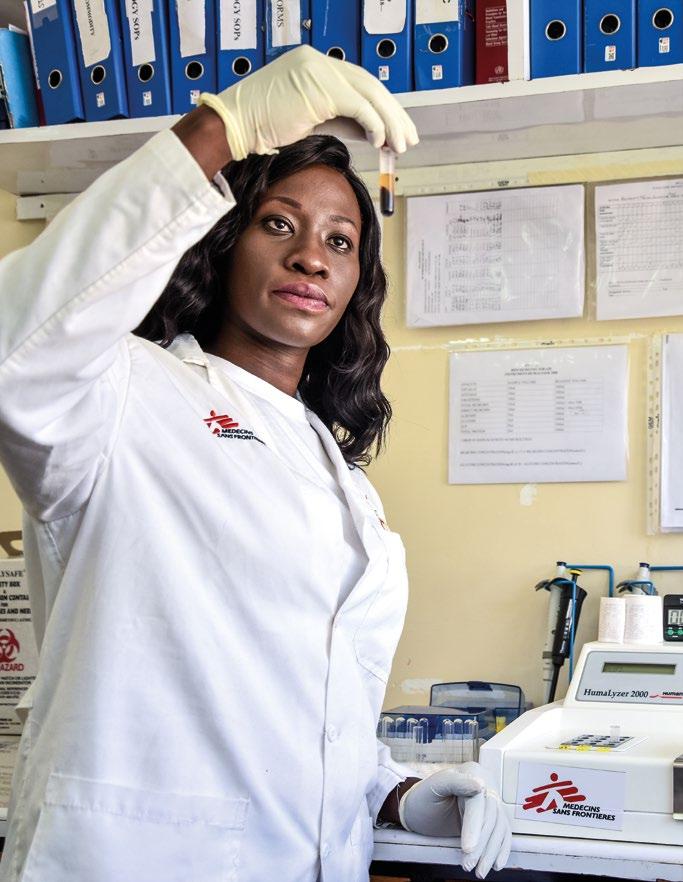
LEBANON
KEY ACTIVITIES
At Elias Haraoui Governmental Hospital, paediatric emergency, intensive and specialised care including treatment for children with thalassemia, a hereditary blood disorder; in response to COVID-19, adaptation and expansion of our activities in the Elias Haraoui emergency room to ensure effective triage of patients; emergency response in neighbourhoods most affected by the blast in Beirut, focused on home-based care for people with non-communicable diseases (especially the elderly and people with disabilities) including medical consultations, nursing care, essential medications and follow-up care.
IMPACT:
Supported the Ministry of Health to provide three-month drug refills to patients living with HIV, during COVID-19 lockdown
FIELD STAFF:
686.7
FUNDING
TOTAL $22,443,850
AU $2,470,836
NZ $636,736
IMPACT:
99 children received treatment for thalassemia
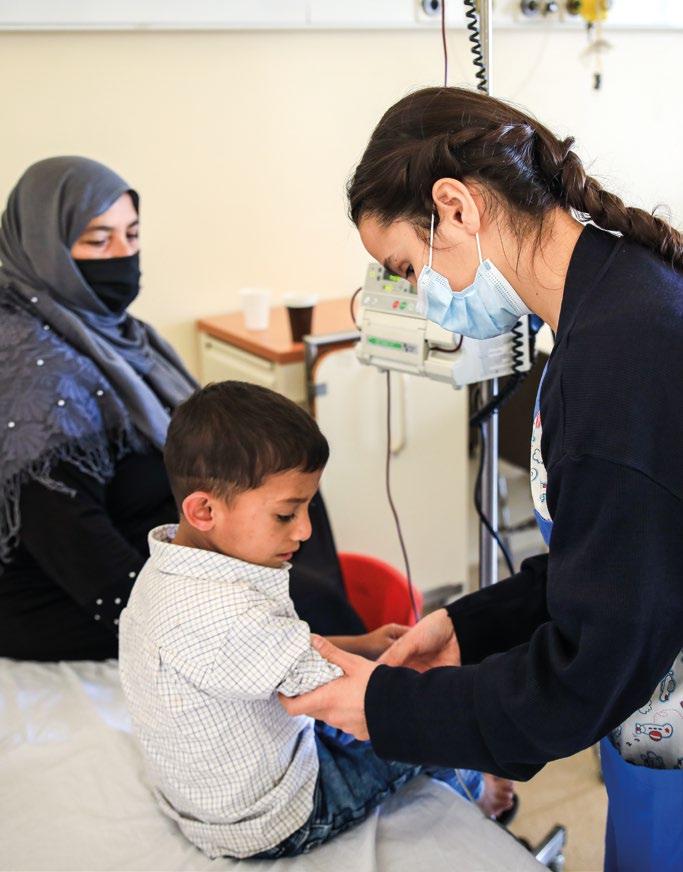
FIELD STAFF: 87
FUNDING: TOTAL AU $8,159,250 $1,996,471
Abbas, aged five, attends the Médecins Sans Frontières facility in Zahle for a blood transfusion every two weeks for thalassemia. © Mohammad Ghannam/MSF
Médecins Sans Frontières Australia Annual Report 2020
May Atieno, Lab Manager for Médecins Sans Frontières’ HIV programs in Homa Bay. © Paul Odongo/MSF
Project locations funded by Australian and New Zealand donors
ETHIOPIA
UGANDA TANZANIA
HOMA BAY DADAAB NAIROBI
– 31
Project locations funded by Australian donors
SYRIA ZAHLE
BEIRUT
LIBERIA
KEY ACTIVITIES
At the Children’s Hospital in Bardnesville Junction in Monrovia, specialist paediatric care, including surgery (until suspension in March due to COVID-19 travel restrictions for staff) and emergency and inpatient services for children such as treatment for malaria and acute malnutrition (maintained during COVID-19); paediatric training for nurses, doctors and a nurse anaesthetist, before medical internships suspended due to the pandemic; COVID-19 response, including reinforcement of infection control, soap distribution to households and hygiene awareness activities; in Monteserrado county, diagnosis, treatment and referrals for people with mental health conditions and epilepsy, including phone consultations and monthly outdoor medication refill appointments to adapt to COVID-19.
LIBYA
KEY ACTIVITIES
Medical and mental healthcare for people held in detention centres in Misrata, Khoms, Zliten and Zintan, and work in these centres to improve access to water and basic services, reinforcing COVID-19 infection prevention measures and referring people to protection agencies; medical and psychological care at the Khoms disembarkation point, for people forcibly returned by the Libyan coastguard after trying to flee Libya by sea; in Bani Walid, general healthcare and medical referrals for people who had escaped from captivity in clandestine prisons or warehouses, and for victims of torture and trafficking; tuberculosis care in two facilities, in Tripoli and Misrata.
IMPACT:
2,370 people received care for mental health disorders or epilepsy
FIELD STAFF: 331
FUNDING: TOTAL AU $10,210,200 $1,000,000
Médecins Sans Frontières staff and volunteers conduct a COVID-19 hygiene awareness campaign and distribute soap to households in Logan Town, near Monrovia. © Rudd van der Linden/MSF

IMPACT:
Psychological support and distribution of basic items after a fire in Dhar El-Jebel detention centre, as well as advocacy calling for an end to arbitrary detention of migrants, asylum seekers and refugees
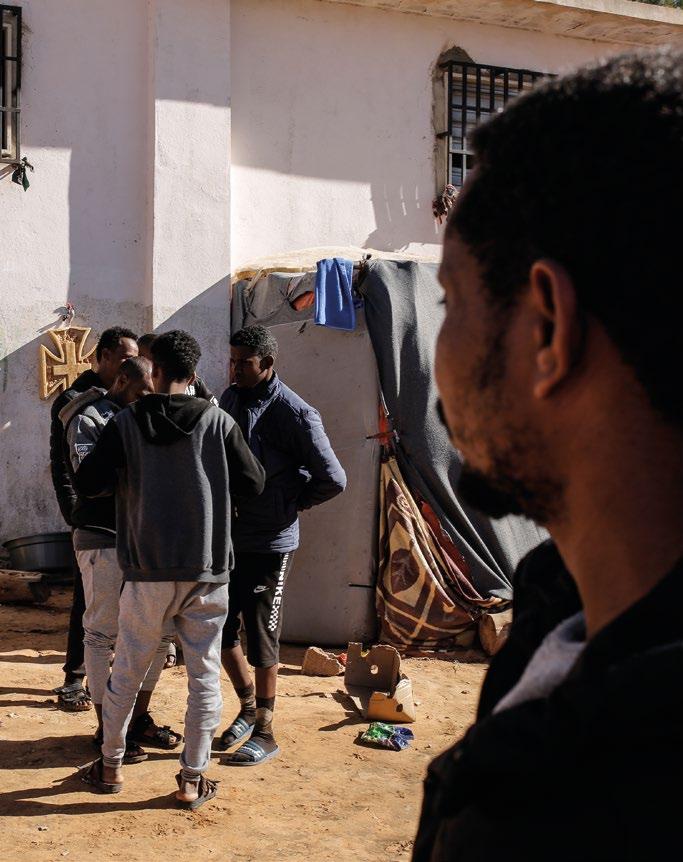
FIELD STAFF:
81
FUNDING:
TOTAL AU $6,367,350 $2,000,000
CÔTE D’IVOIRE
Project locations funded by Australian donors
MONROVIA MONTSERRADO COUNTY
People in Dhar El-Jebel detention centre, Zintan, where one man lost his life during a fire in February. © MSF
Project locations funded by Australian donors
NIGER CHAD
KHOMS ZUWARA
ZLITEN MISRATA BANI WALID JEBEL NAFUSA TRIPOLI
MALAWI
KEY ACTIVITIES
In Blantyre, comprehensive cervical cancer care in collaboration with Queen Elizabeth Central Hospital, covering all stages of primary and secondary prevention and tertiary care including health promotion, vaccination, screening and diagnosis, surgery, chemotherapy and palliative care for patients with advancedstage cancer; in Chiradzulu, HIV care (HIV being the leading cause of death in Malawi) focusing on children, adolescents and patients whose first- and second-line antiretroviral therapies are failing.
Interpreter Tifera helps organise schoolgirls to get their vaccination against human papillomavirus, the virus responsible for cervical cancer, at their school in Chiradzulu district (January 2020). © Nadia Marini/MSF

MALI
KEY ACTIVITIES
Cancer care and paediatric care in Bamako, with the expansion of oncology services to facilitate early screening and diagnosis of cervical and breast cancers, and provision of treatment including surgery and chemotherapy; COVID-19 prevention and treatment of patients with severe forms of the virus in Bamako; preventive and curative nutrition and paediatric services at community and hospital level in Koutiala district; in Ténenkou district, sexual and reproductive healthcare and neonatal and paediatric care at a referral health centre, and mobile clinic activities to assist displaced people and local communities.

IMPACT:
Cervical cancer project activities resumed in August 2020, after five-month suspension of screening, some surgery and palliative care follow-up activities due to COVID-19
FIELD STAFF: 325
FUNDING:
TOTAL AU
$8,644,350 $765,599
IMPACT:
Around 49,000 women screened for cervical and breast cancers
FIELD STAFF: 602
FUNDING: TOTAL AU $18,018,000 $1,500,000
Médecins Sans Frontières Australia Annual Report 2020 – 33
Project locations funded by Australian donors
TANZANIA
ZAMBIA
MOZAMBIQUE
BLANTYRE CHIRADZULU
Logistics Manager Lassi visits a workshop in Bamako, commissioned by Médecins Sans Frontières to manufacture reusable masks for COVID-19 prevention. © Lamine Keita/MSF
Project locations funded by Australian donors
MAURITANIA
BURKINA FASO KOUTIALA
TENENKOU BAMAKO
MOZAMBIQUE
KEY ACTIVITIES
In Maputo, specialised care for patients with advanced HIV and tuberculosis, as well as detection and rapid treatment of opportunistic infections such a hepatitis C; harm reduction services for people who use drugs, including needle and syringe distribution, opioid substitution therapy and overdose treatment; testing and treatment referrals for HIV, tuberculosis and hepatitis C at a drop-in centre for people who use drugs; logistical and technical support to the main COVID-19 referral hospitals in Maputo.
Patients sit in the waiting room of the Centro de Referência do Alto-Maé in Maputo, where Médecins Sans Frontières continued to provide care for people with advanced HIV and associated conditions such as tuberculosis.
 © Amanda Furtado Bergman/MSF
© Amanda Furtado Bergman/MSF
MYANMAR
KEY ACTIVITIES
In Dawei, Tanintharyi region, treatment for patients with HIV, including those with co-infections of tuberculosis and hepatitis C, with a focus on key groups such as migrant workers, fishermen and sex workers.
IMPACT:
Our Maputo drug harm reduction program, the only one in Mozambique, offered all World Health Organizationrecommended interventions
FIELD STAFF: 260
FUNDING
TOTAL $3,970,120
AU $800,000
NZ $200,000
IMPACT:
Adapted HIV health services to ensure continuity of care for patients in remote locations, unable to reach our clinic due to COVID-19 movement restrictions
FIELD STAFF: 56.1
FUNDING:
TOTAL AU
$2,022,020 $200,000
A woman being treated for tuberculosis in Dawei has her mask adjusted by a health worker.
© Scott Hamilton/MSF
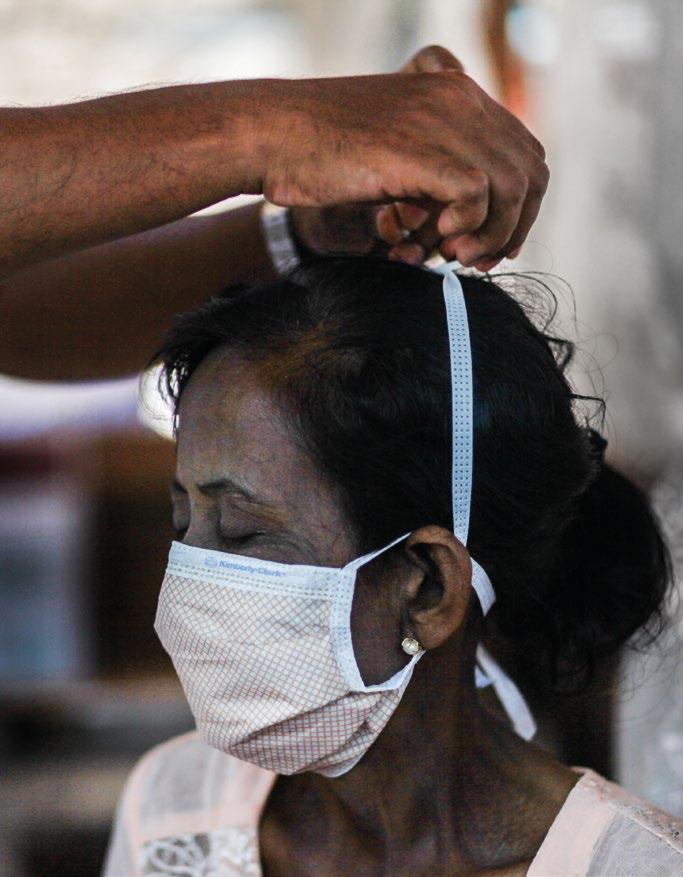 Project locations funded by Australian and New Zealand donors
MAPUTO SOUTH AFRICA
ZAMBIA ZIMBABWE BOTSWANA
Project locations funded by Australian and New Zealand donors
MAPUTO SOUTH AFRICA
ZAMBIA ZIMBABWE BOTSWANA
In Myanmar, access to medical treatment remains limited, particularly for marginalised communities. In 2020, it became even more restricted due to the COVID-19 pandemic.
Project locations funded by Australian donors
TANINTHARYI
NIGER
KEY ACTIVITIES
Paediatric care at a hospital in Magaria, including treatment for an increased number of patients with malaria compared to 2019; in Magaria and Madarounfa, inpatient care for acutely malnourished children and community-based activities focused on preventing illness and complications of malnutrition in children; in the capital, Niamey, mobile clinics providing water, relief item distribution and psychological support for people displaced by floods; COVID-19 response in Maradi and Madarounfa, including patient care, training for staff and community volunteers, equipment donations and health promotion.
A woman returns home with malaria medication for her son, after a consultation with a Médecins Sans Frontières-supported community liaison officer in Magaria.
 © Mack Alix Mushitsi/MSF
© Mack Alix Mushitsi/MSF
NIGERIA
KEY ACTIVITIES
Comprehensive emergency obstetrics and neonatal care, and vesico-vaginal surgery for women with obstetric fistula, in Jahun general hospital, Jigawa state; logistical, technical and medical support to four centres providing basic emergency obstetric and neonatal care around Jahun; comprehensive sexual violence care at two clinics in Port Harcourt, Rivers state, including prophylaxis for HIV and other sexually transmitted infections, vaccinations for tetanus and hepatitis B, emergency contraception and psychological and social support; in Maiduguri, treatment for severely sick children, including those with malaria and measles, at a 65-bed paediatric hospital incorporating an intensive care unit, and outreach activities.
An outreach team provides primary healthcare for people in a displacement camp in Maiduguri.
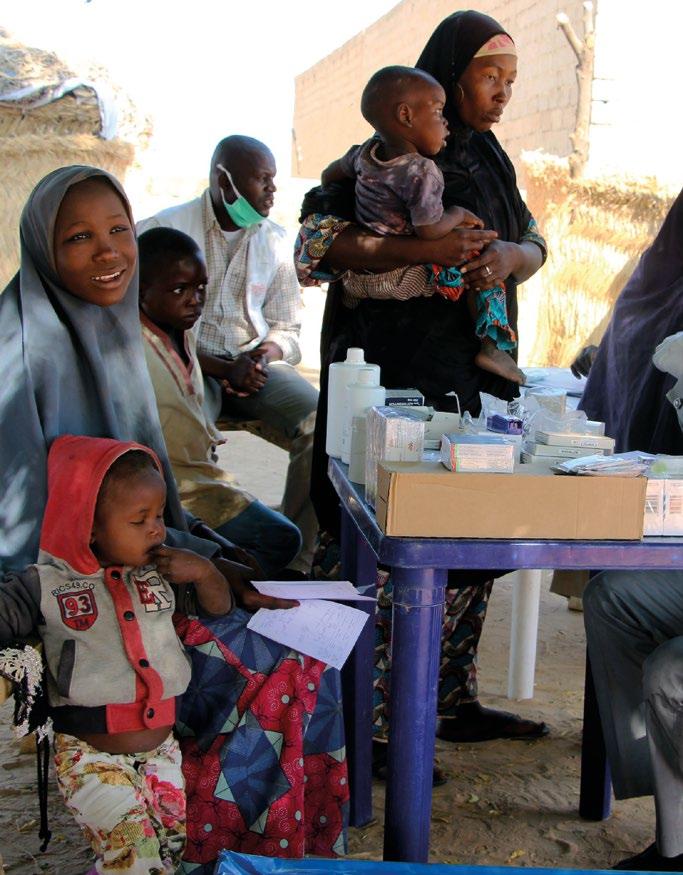 © Adbulkareem Yakuba/MSF
© Adbulkareem Yakuba/MSF
IMPACT: Preventive and communitybased approaches to reduce complications of malnutrition, including early treatment for malaria and acute respiratory infections
FIELD STAFF: 819.7
FUNDING: TOTAL AU $21,743,700 $3,283,720
IMPACT: Outreach activities launched in Maiduguri, to extend care to two villages and two camps for displaced people
FIELD STAFF: 646
FUNDING: TOTAL AU $19,369,350 $1,529,412 NZ $970,582
Médecins Sans Frontières Australia Annual Report 2020 – 35
Project locations funded by Australian donors
MADAROUNFA
MAGARIA NIAMEY MARADI
ALGERIA MALI CHAD
Project locations funded by Australian and New Zealand donors
JIGAWA
RIVERS
BORNO
MAIDUGURI
CAMEROON
PAKISTAN
KEY ACTIVITIES
Maternal and neonatal healthcare at Peshawar Women’s Hospital, including comprehensive 24-hour emergency obstetric services, with the addition of an isolation area, infection prevention and control measures and structural changes to the hospital to resume care after a six-week suspension during COVID-19; advocacy and awarenessraising on the safe use of labourinducing drugs such as oxytocin; also in Peshawar, treatment for cutaneous leishmaniasis, a skin infection endemic to Pakistan that is caused by a parasite transmitted by the phlebotomine sandfly’s bite.
PALESTINE
KEY ACTIVITIES
In Gaza, treatment for patients with bone infection as a complication of violent trauma, post-operative care in four outpatient clinics for patients with trauma injuries or burns, including physiotherapy and mental health counselling to help patients through long and painful treatment processes, and staff training and oxygen concentrator donations to support the COVID-19 response; in the West Bank, psychological support for people affected by the occupation and violence in Nablus and Qalqilya, with remote counselling by phone when in-person support sessions were not possible during COVID-19 and the extension of services to people with COVID-19 and their families; distribution of hygiene kits and personal protective equipment and COVID-19.
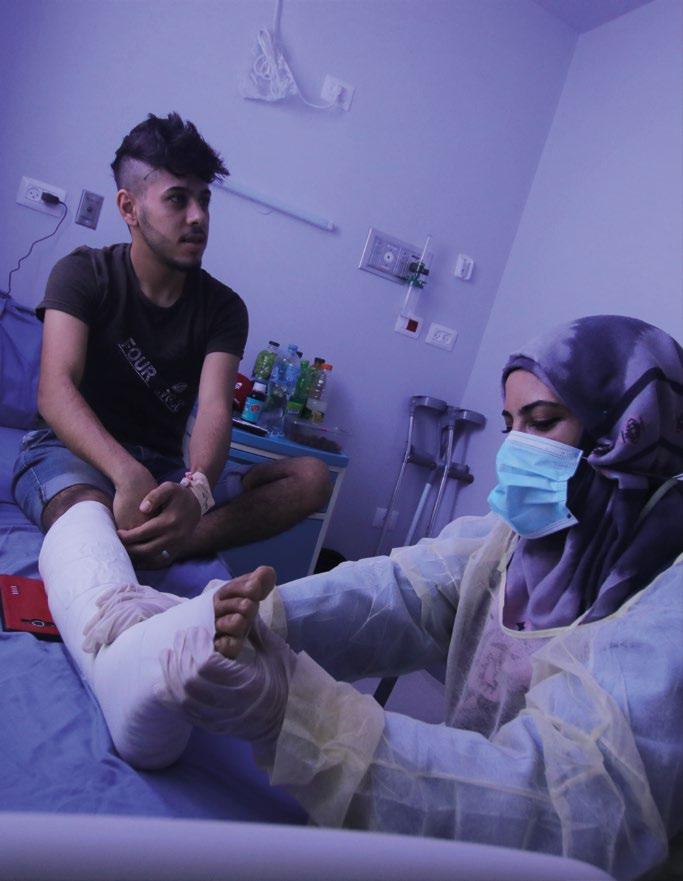
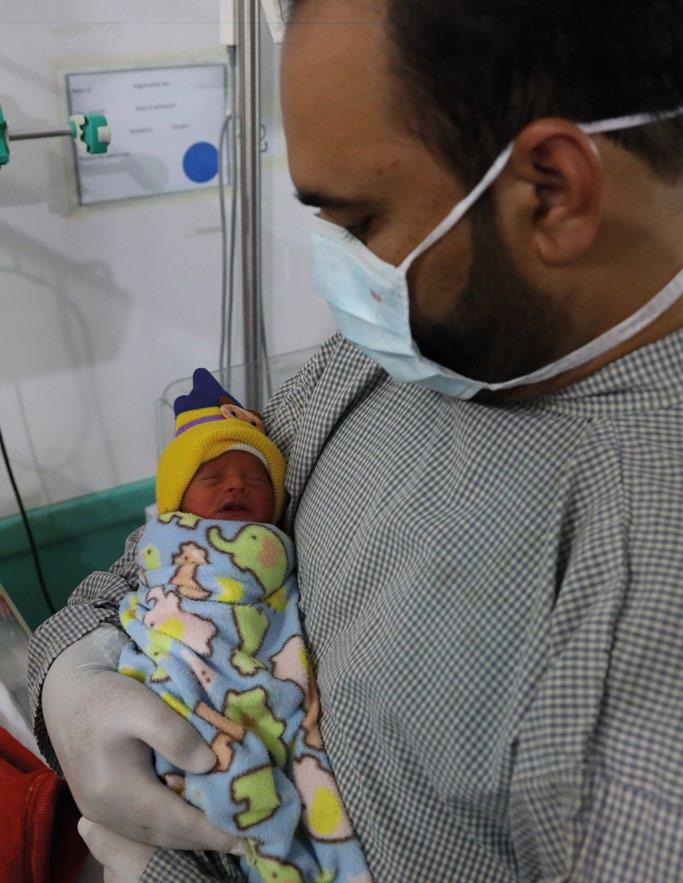
IMPACT:
Essential care continued at Peshawar Women’s Hospital despite COVID-19-related challenges, including staffing issues and a shortage of drugs and personal protective equipment
FIELD STAFF:
288
FUNDING:
TOTAL AU $6,058,800 $1,000,000
IMPACT:
Additional project opened in Nasser Hospital, Gaza, to treat patients with bone infections as a complication of violent trauma
FIELD STAFF:
248
FUNDING:
TOTAL AU $17,826,600 $3,000,000
Nurse Naseebullah Khan holds a newborn in the neonatal unit of the Peshawar Women’s Hospital. © Nasir Ghafoor/MSF
Project locations funded by Australian donors
INDIA
AFGHANISTAN
KHYBER PAKHTUNKHWA
Project locations funded by Australian donors
GAZA STRIP
WEST BANK
NABLUS QALQILYA
Specialist physiotherapist Mabadie Al-Farra provides care for a patient during a session in Nasser Hospital, Gaza. © Lyad Alasttal/MSF
PAPUA NEW GUINEA
KEY ACTIVITIES
Prevention, screening, diagnosis, treatment initiation and followup for patients with tuberculosis (including drug-sensitive and drugresistant forms) in collaboration with the national tuberculosis program, at Gerehu hospital in the capital Port Moresby, and in the rural district of Kerema in Gulf province; construction of a tuberculosis laboratory at Tokarara clinic, Port Moresby, to support the provincial health authority to expand diagnosis in the capital’s North West catchment area; COVID-19 activities including infection prevention and control training, technical assistance to support construction of a dedicated COVID-19 treatment facility in Port Moresby and implementation of rapid testing in the facility.
A patient is helped by treatment supporter Stoney Karahure to receive his first batch of medication after being diagnosed with tuberculosis. © Simon Ming/MSF

PHILIPPINES
KEY ACTIVITIES
In the impoverished districts of San Andres and Tondo, Manila, sexual and reproductive healthcare including cervical cancer prevention and treatment in partnership with local organisation Likhaan (to whom we handed over activities in December); general and mental healthcare and non-communicable disease care in Marawi; COVID-19 response, including contact tracing, infection prevention activities, training for staff, and support for COVID-19 activities at San Lazaro Hospital, Manila; emergency response in Albay and Catanduanes following the Goni/Rolly and Ulysees typhoons, including evacuation centre and community distributions of jerry cans, water tablets and masks and sanitiser, and COVID-19 infection prevention and control training for staff at the centres.
IMPACT:
Strengthened follow-up care for patients with tuberculosis in Kerema rural district, resulting in more patients completing treatment
FIELD STAFF: 151
FUNDING: TOTAL AU $6,217,200 $1,500,000 NZ $264,706
IMPACT:
Support for Manila’s San Lazaro Hospital’s COVID-19 ward, laboratory and pharmacy with staff, personal protective equipment, biomedical equipment and drug supplies
FIELD STAFF: 70
FUNDING:
TOTAL AU $4,101,900 $1,000,000
Staff conduct a mobile information drive, sharing leaflets and recorded audio messages about COVID-19 in the local Maranao language, in Marawi. © Chika Suefuji/MSF

Médecins Sans Frontières Australia Annual Report 2020 – 37
Project locations funded by Australian and New Zealand donors
KEREMA
PORT MORESBY
Project locations funded by Australian donors
MANILA MARAWI
CATANDUANES ALBAY
SUDAN
KEY ACTIVITIES
In East Darfur’s Kario camp, which hosts around 30,000 South Sudanese refugees, general healthcare including maternity services and nutritional support for children; treatment for simple cases of malaria and referral of patients with malaria and complications; health promotion activities; infection prevention and control to protect people against COVID-19.
Sudan hosts huge numbers of refugees, mostly South Sudanese stranded in the country for years after fleeing the civil war
SYRIA
KEY ACTIVITIES
In Idlib governorate, specialised care in our dedicated burns unit in Atmeh and support for non-communicable disease care at two primary healthcare centres; mobile clinic services with a focus on COVID-19 prevention in camps for people displaced by the conflict, including distribution of hygiene kits, water, tents, blankets, mattresses and heating material, construction of latrines and COVID-19 awarenessraising; in Afrin governorate, donations and technical support for mobile clinics and a health centre, and support for a COVID-19 treatment centre.
IMPACT:
Set-up of a malaria treatment unit in response to a higher than usual malaria peak in Kario camp
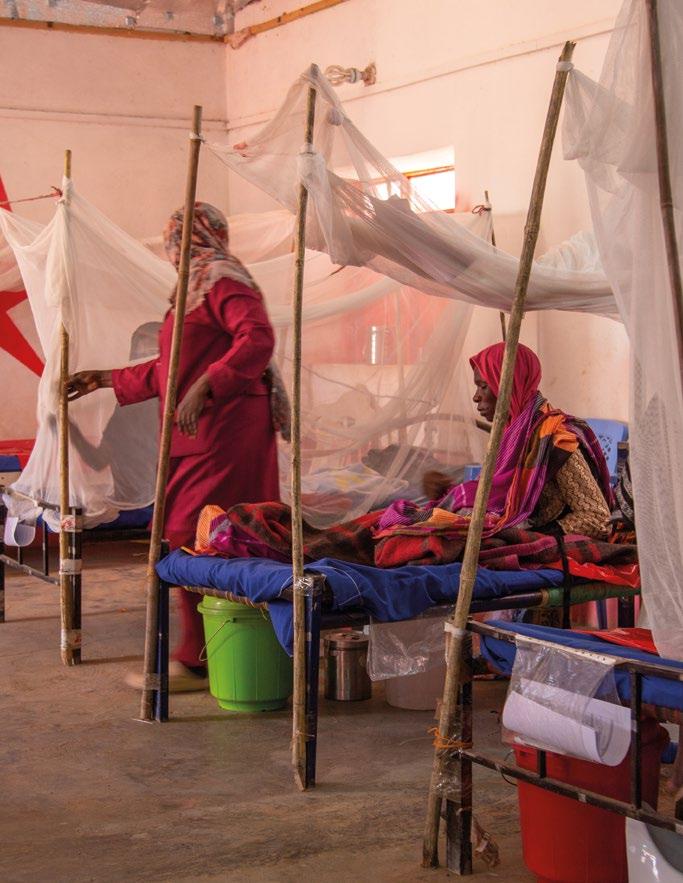
FIELD STAFF: 137.4
FUNDING:
TOTAL AU
$4,704,700 $1,500,000
IMPACT:
Provision of lifesaving medication and follow-up for almost 100 patients who had received kidney transplants, in Idlib
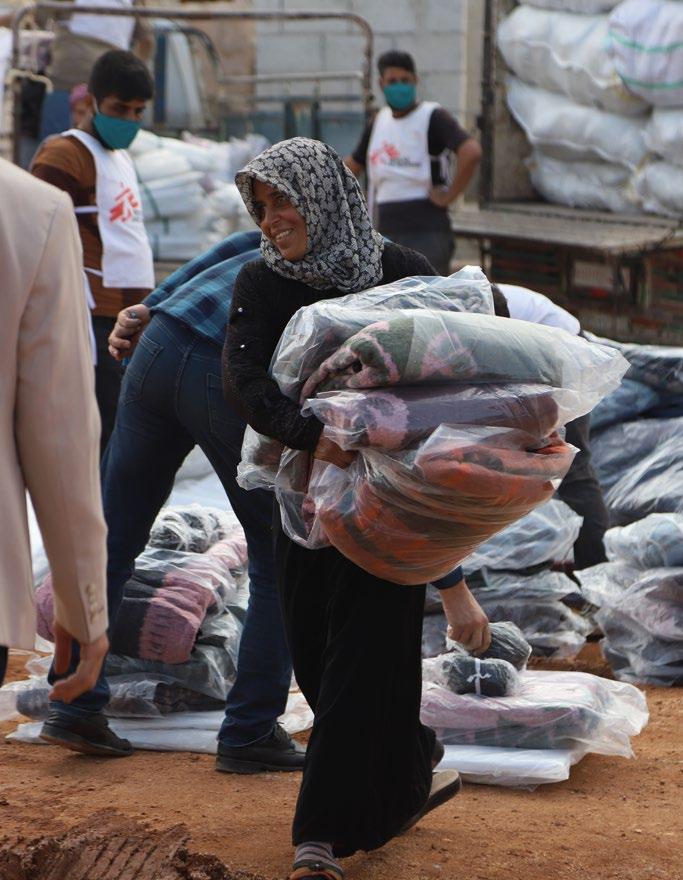
FIELD STAFF: 138
FUNDING:
TOTAL AU $6,986,100 $1,168,000
The maternity ward of the Kario clinic, East Darfur, where Médecins Sans Frontières provided around 6,800 antenatal consultations in 2020. © Florence Dozol/MSF
Project locations funded by Australian donors
EAST DARFUR
A woman collects essential items including blankets and warm clothes from Médecins Sans Frontières in northwest Syria. © Abdul Majeed Al Qareh/MSF
Project locations funded by Australian donors
IDLIB
IRAQ
ALEPPO
UGANDA
KEY ACTIVITIES
In Kasese, sexual and reproductive healthcare for adolescents, including ante- and postnatal care, awareness raising to encourage young people to come for consultations and health education, and recreational activities until these were suspended due to COVID-19; HIV care for fishing communities around George and Edward lakes; in Arua, HIV care with a focus on children, adolescents and patients with advanced HIV disease or a high viral load, with care resumed for most Congolese cross-border patients who we lost contact with between March and July during COVID-19 lockdowns; medical and psychological care for victims of sexual violence, including outreach activities, in Arua’s Omugo and Imvepi refugee settlements.
UKRAINE
KEY ACTIVITIES
Treatment for hepatitis C patients living with HIV, using a new direct-acting antiviral regimen (project handed over to the Mykolaiv Regional Centre of Palliative Care and Integrated Services in May 2020).
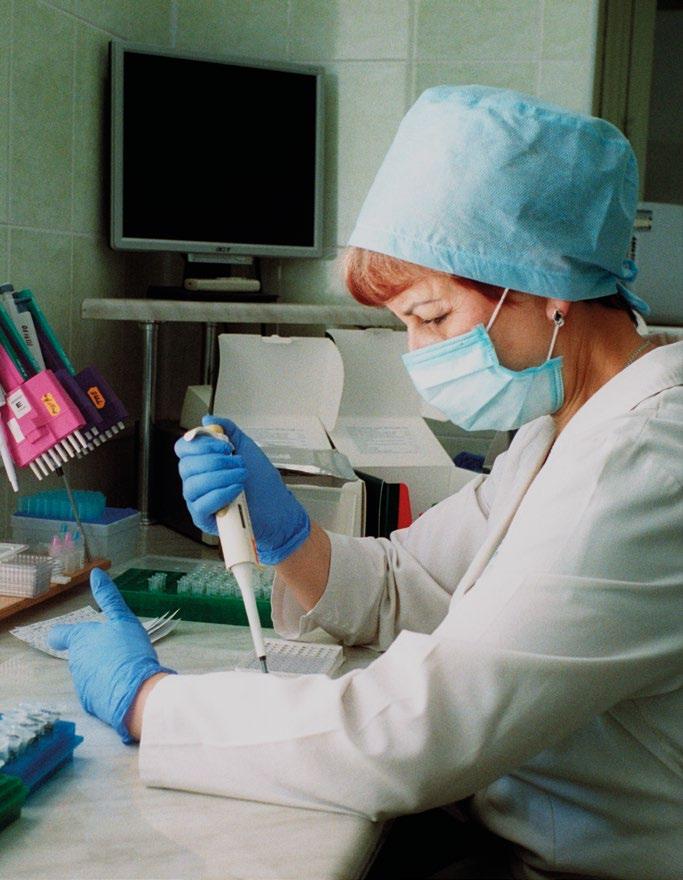
IMPACT:
Sexual and reproductive health services for adolescents moved into the new adolescent care section of the municipal primary health facility, to facilitate patient access and decrease stigma
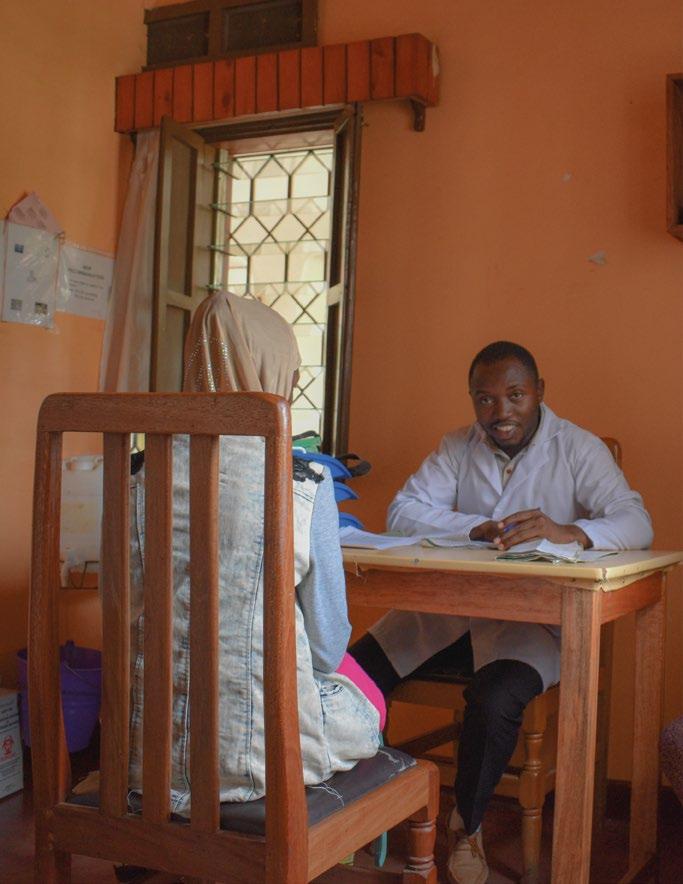
FIELD STAFF: 201
FUNDING: TOTAL AU $5,954,850 $500,000
IMPACT:
Medicines for hepatitis C patients delivered by post, and phone support offered, to provide continuity of care during COVID-19 restrictions
FIELD STAFF: 6.1
FUNDING: TOTAL AU
$380,380 $200,000
Inside the laboratory of the Mykolaiv Regional Centre of Palliative Care and Integrated Services, where samples were tested for hepatitis C (2018). © Aleksandr Glyadyelov/MSF
Médecins Sans Frontières Australia Annual Report 2020 – 39
Direct-acting antivirals have revolutionised hepatitis C care, making treatment faster and more effective while significantly reducing side effects.
Project locations funded by Australian donors
ROMANIA
RUSSIA
MYKOLAIV
A young pregnant woman attends a consultation in Kasese (2019). © Peter Pantiushkin/
Project locations funded by Australian donors
KASESE
ARUA
Médecins Sans Frontières
Australia Limited
ABN 74 068 758 654
Consolidated Financial Report for the Financial Year Ended 31 December 2020
Médecins Sans Frontières Australia Limited 2 Consolidated Financial Report for the Financial Year ended 31 December 2020 Contents Page Directors’ Report 3 Auditor’s Independence Declaration 10 Auditor’s Report 11 Director’s Declaration 14 Consolidated Statement of Comprehensive Income 15 Consolidated Statement of Financial Position 16 Consolidated Statement of Changes in Equity 17 Consolidated Statement of Cash Flows 18 Notes to the Consolidated Financial Statements 19
Médecins Sans Frontières Australia Limited
Directors’ Report
The Directors of Médecins Sans Frontières Australia submit herewith the annual Financial Report of the company for the financial year ended 31 December 2020. The names and particulars of the directors during or since the end of the financial year are:
Mr Dwin Tucker President from 23 May 2020. Treasurer from 29 April 2016 to 23 May 2020. Elected to the Board 16 May 2015. Re-elected 25 May 2018. Director Deafness Forum, ClearSound and TurnkeyIO. Resident of Australia.Attended fourteen out of fourteen Directors’ meetings.
Vice President from 23 May 2020 Appointed to the Board on 21 June 2017, elected 25 May 2018. Registered Nurse and Academic, Heidelberg Institute of Global Health, Heidelberg University, Germany. Nursing and Midwifery, Monash University, Melbourne. Resident of Germany. Attended fourteen out of fourteen Directors’ meetings.
Treasurer from 23 May 2020. Elected 18 May 2013, re-elected 29 April 2016, re-elected 12 May 2019. Lawyer and consultant. Resident of Australia. Attended fourteen out of fourteen Directors’ meetings.
Elected to the Board 12 May 2019. CPA qualified, Graduate of the Humanitarian Leadership Program at Deakin University Consultant, World Bank Group. Resident of Australia. Attended fourteen out of fourteen Directors’ meetings.
Elected to the Board 22 May 2020. Consultant. Resident of New Zealand. Attended six out of seven Directors’ meetings.
Appointed to the Board 31 August 2016. Elected to the Board 6 May 2017. Reelected to the Board 22 May 2020. Medical Doctor – Paediatric Endocrinologist Resident of Australia. Attended eleven out of fourteen Directors’ meetings.
Elected to the Board 22 May 2020. Clinical Nurse Consultant in Disaster and Emergency Management. Resident of Australia. Attended six out of seven Directors’ meetings.
Appointed to the Board 16 October 2020. Professorial Fellow of the University of Melbourne and Independent member of the Board of the Royal Australian and New Zealand College of Radiologists. Resident of Australia. Attended two out of two Directors’ meetings.
Appointed to the Board 16 October 2020. Clinical Nurse in emergency and intensive care. Resident of Australia. Attended two out of two Directors’ meetings.
Dr Meguerditch Terzian
Appointed to the Board on 6 March 2017. Medical Doctor and President, Médecins Sans Frontières France. Resident of France. Attended thirteen out of fourteen Directors’ meetings.
Dr
Appointed to the Board 16 October 2020. Infectious Diseases Physician in Launceston General Hospital and Honorary senior clinical lecturer at the University of Tasmania. Resident of Australia. Attended two out of two Directors’ meetings.
3
Ms Patricia Schwerdtle
Ms Beth Hilton-Thorp
Ms Kerry Atkins
Ms Alice Cameron
Dr Jacqueline Hewitt
Ms Bethany Lansom
Dr Vin Massaro
Ms Carolyn Nagy
Mohammad-Ali Trad
Médecins Sans Frontières Australia Limited
Directors’ Report (continued)
Dr Stewart Condon Elected to the Board 28 May 2011. Re-elected 26 April 2014, re-elected 6 May 2017. President from 22 May 2014 to 23 May 2020. Registrar – Medical Services, Royal Prince Alfred Hospital. Resident of Australia. Attended five out five Directors’ meetings.
Mr Anthony Flynn Elected to the Board 26 April 2014. Re-elected 6 May 2017. Vice-President from 6 May 2017 to 23 May 2020. Registered Nurse. General Manager, Programs and Information Services, Asthma Foundation Queensland and New South Wales. Resident of Australia. Attended four out of five Directors’ meetings.
Mr Emmanuel Lavieuville Elected to the Board 25 May 2018. Resigned 5 October 2020. International Policy Division, Department of Home Affairs. Resident of Australia. Attended ten out of eleven Directors’ meetings.
Dr Chatu Yapa Elected to the Board 25 May 2018. Resigned 5 October 2020. Public Health Medicine Registrar, National Centre for Epidemiology & Population Health, Australian National University. Resident of Australia. Attended nine out of eleven Directors’ meetings.
COMPANY SECRETARY (JOINT)
Ms Jennifer Tierney, Executive Director of Médecins Sans Frontières Australia Limited (‘MSF’).
Ms Emma Sullivan Smith, Association Coordinator of Médecins Sans Frontières Australia Limited (‘MSF’)
SHORT-AND LONG-TERM OBJECTIVES AND STRATEGY
The Group’s short-and long-term objectives are to:
• Generate resources for activation of international humanitarian assistance;
• Build medico-operational competence; and
• Build reputation and identity of MSF
The Group’s strategy for achieving these objectives includes:
• Recruit, prepare and provide professional skilled and motivated career staff prepared for the field and matched to meet needs within the MSF movement from Australia and New Zealand;
• Encourage the Australian and New Zealand public to financially engage with MSF Australia Limited with enthusiasm, conviction and commitment.
• Provide medico-operational input into MSF field operations with an emphasis on women’s health, child health and sexual violence care and enhance MSF Australia Limited’s role as a relevant MSF office with medical expertise in the MSF movement; and
• Communicate the organisation’s medical humanitarian action to all identified audiences, advocate on behalf of people in crisis and contribute to improving the quality of medical and operational communication aims of the MSF movement;
4
Médecins Sans Frontières Australia Limited
Directors’ Report (continued)
PRINCIPAL ACTIVITIES
The principal activities of the Group during the financial year to 31 December 2020 have been:
• Fundraising from the general public in order to finance the field operations of MSF.
• Liaison with institutions and individuals in Australia and internationally, with a view to obtaining funding or other operational support for field projects, and for coordination with other organisations involved in overseas humanitarian relief.
• Provision of medical expertise in women’s health, child health and sexual violence care through direct visits to MSF medical humanitarian projects overseas, technical support and oversight, preparation of medical field staff, medical training, medico-operational research, medical communications and medical policy development.
• Operational participation in the field projects of the international movement of MSF, through financing field operations; assignment of field staff humanitarian relief workers; participation as faculty in various Australian and international training courses for such field staff; and evaluation missions to field projects.
• Community education in the form of dissemination of public information on humanitarian and development issues; provision of materials and spokespeople to journalists in the print and electronic media; publication of newsletters; participation in seminars; and guest lectureships at secondary schools and universities.
The nature of each of these activities has not changed significantly during the year. They are described in the Annual Review that will be available to the public from July 2020
PERFORMANCE MEASURES
The Group measures performance through the establishment and monitoring of benchmarks including:
• Fundraising meets the needs of the movement to fund operations;
• Proportion of financial resource spend between social mission and administrative costs within an appropriate range;
• Australian and New Zealand recruitment and placement executed to meet resource needs identified within the MSF movement;
• Operational impact for Sydney Medical Unit expertise in women’s health, child health and sexual violence care continues; and
• Field communications, awareness raising, and advocacy furthered through intervention of the Sydney communications department.
The performance against these key performance indicators is as follows:
• Private revenue in 2020 has increased by 13.4%;
• Financial resources allocated 76% social mission costs to 24% administration in 2020;
• 28 new recruits and 108 field placements made during 2020 in accordance with identified needs;
• In 2020, 46 projects in 39 countries received technical oversight, field support and training in women’s health, child health, and sexual violence care; and
5
Médecins Sans Frontières Australia Limited
Directors’ Report (continued)
• In 2020, the MSF Australia and NZ Communications team innovated to adapt to the COVID-19 crisis. We moved all our events to online webinars, both for general audiences and those in support of Fundraising and Field HR objectives. We also strongly invested in COVID-19 communications to provide visibility on this crisis and MSF’s work, as well on the Access Campaign’s messaging on vaccine availability. We moved to a campaign-based approach to content through our digital channels, in coordination with media and publications. This streamlined approach helped us meet our objectives to reach new audiences, engage more with existing audiences and develop lead generation activities in coordination with fundraising. The first campaign for the year was the International Women’s Day package on cervical cancer; a disease which is topical within Australia and has insufficient detection, prevention and care in the countries where MSF runs activities. We also developed communications materials on mental health, the treatment of refugees held under Australia’s policies, and the deadly attack on Dashte-Barchi maternity hospital in Kabul, Afghanistan.
REVIEW OF OPERATIONS
The net operating surplus for the financial year to 31 December 2020 was $1,531,943 (2019: operating deficit of $7,383,281). Deficits can result from a timing difference across years, between inflow of fundraising funds and an outflow of funds to operational centres. The turnaround in 2020 was due to a better-than-expected inflow of fundraising funds and a decrease in the outflow of funds to operational centres, partly offset by increased expenses due to an adjustment to the entry level payments for field workers, backdated to 2014 to align with minimum wage requirements.
CHANGES IN STATE OF AFFAIRS
During the financial year there was no other significant change in the state of affairs of the Group, other than that referred to in the financial statements or notes thereto.
Médecins Sans Frontières Australia Limited continued the strategy of face-to-face fundraising whereby the organisation contracts a third party to approach members of the public, in public places, to recruit new field partners. The financial impact continues to be that a cost is created at the outset that is more than made up over subsequent years of income. Médecins Sans Frontières Australia Limited continues to diversify its sources of funding and to increase regular field partner donations.
Médecins Sans Frontières Australia Limited continues to contract and pay field staff directly from Australia when they go to the field. Field staff are seconded to and managed by the operational centres running each project. The financial impact of this is not significant as the salary cost incurred by Médecins Sans Frontières Australia Limited is recharged to the relevant operational centres.
In total, during 2020, Médecins Sans Frontières Australia Limited committed $43,598,653 (2019: $44,502,301) of funds to the field to Médecins Sans Frontières France, and $18,170,852 (2019: $19,072,415) to Médecins Sans Frontières Switzerland.
In selecting the projects which Médecins Sans Frontières Australia Limited supports through its grant payments to Operational Centre Paris and Operational Centre Geneva, the DFAT list of developing countries is consulted to ensure compliance requirements are fulfilled.
6
Médecins Sans Frontières Australia Limited
Directors’ Report (continued)
DONATIONS IN KIND
Over the course of the year the Group has received donations in kind from a number of sources. These donations may be physical assets for use in the Group, items to be sent to the field or services provided to Médecins Sans Frontières at reduced rates.
The value of donations in kind received during the year to 31 December 2020 is $248,917 (2019: $341,143). This amount has been brought to account in the financial statements.
VOLUNTARY ASSISTANCE AND FIELD STAFF
In addition to donations in kind the Group recruits a number of staff in the field for Médecins Sans Frontières operational centres There are five Médecins Sans Frontières operational centres and they are located in Belgium, France, Holland, Spain and Switzerland. Many of the field staff are professional staff. The Group estimates that the total salaries forgone by field staff working within their professional capacity in Australia for the year ended 31 December 2020 to be approximately $2,332,814 (2019: $4,200,790).
The Group estimates that the total salaries forgone by field staff working within their professional capacity in Australia who undertook missions of less than three months to be approximately $365,871 (2019: $840,429).
Médecins Sans Frontières Australia Limited also have a number of volunteers who freely give their time in the Australia office to assist in office-based activities. The estimated value of this is approximately $17,966 (2019: $139,361).
The Board of Directors (except for the President of the Board, who receives a partial salary) and Association also freely give their time to Médecins Sans Frontières Australia Limited The estimated value of the time provided by the Board of Directors is approximately $417,600 (2019: $460,000).
This time donated by office volunteers, and salaries which would have been paid to the volunteers sent to the field, are not brought to account in the financial statements since they cannot be reliably measured (estimates above are based on high level analysis only).
MONEY SPENT
The mission of Médecins Sans Frontières Australia Limited is to provide assistance to people in distress, to victims of natural or man-made disasters and victims of armed conflict and to increase awareness of the plight of these people. The international Médecins Sans Frontières movement as a whole, targets a social mission ratio whereby around 80% of expenditure is directly devoted to this social mission. In 2020 Médecins Sans Frontières Australia Limited spent $77,693,278 to the social mission therefore representing 76% of total expenditure (2019: $77,154,243). A number of factors impact the ratio and will continue to be ongoing factors:
• Maintaining sufficient levels of cash reserves in subsequent years to preserve the safety of operational funding.
• Responding to the operational needs of the operational centres.
• Administrative and Fundraising requirements.
7
Directors’ Report (continued)
SUBSEQUENT EVENTS
There has not been any matter or circumstance that has arisen since the end of the financial year that has significantly affected, or may significantly affect, the operations of the Group, the results of those operations, or the state of affairs of the Group in future financial years.
FUTURE DEVELOPMENTS
It is likely that in future financial years, the Group will continue to provide operational, financial and human resource support to the field operations of Médecins Sans Frontières financed substantially by income from private fundraising. Where possible, subject to the availability of resources, the company intends to increase its level of support for the field operations of Médecins Sans Frontières.
Médecins Sans Frontières Australia Limited is looking to further consolidate its presence into New Zealand and in partnership with regional Médecins Sans Frontières sections, expand its presence into new countries in South East Asia.
DIVIDENDS
Under the terms of the Group’s constitution, the Group is not authorised to pay dividends.
INDEMNIFICATION OF OFFICERS
During the financial year, the Group paid a premium in respect of a contract insuring the directors and officers of the company (as listed on page 3 of the Financial Report) against a liability incurred as such a director to the extent permitted by the Australian Charities and Not-for-profits Commission Act 2012. The contract of insurance prohibits disclosure of the nature of the liability and the amount of the premium.
The Company has not otherwise, during or since the financial year, except to the extent permitted by law, indemnified or agreed to indemnify an officer of the company or of any related body corporate against a liability incurred as such an officer.
INDEMNIFICATION OF AUDITORS
To the extent permitted by law, the Group has agreed to indemnify its auditors, Ernst & Young Australia, as part of the terms of its audit engagement agreement against claims by third parties arising from the audit (for an unspecified amount). No payment has been made to indemnify Ernst & Young during or since the financial year.
REMUNERATION OF DIRECTORS AND SENIOR MANAGEMENT
Information about the remuneration of directors and senior management is set out in Note 5 of the financial report on page 29.
Médecins
Australia
8
Sans Frontières
Limited
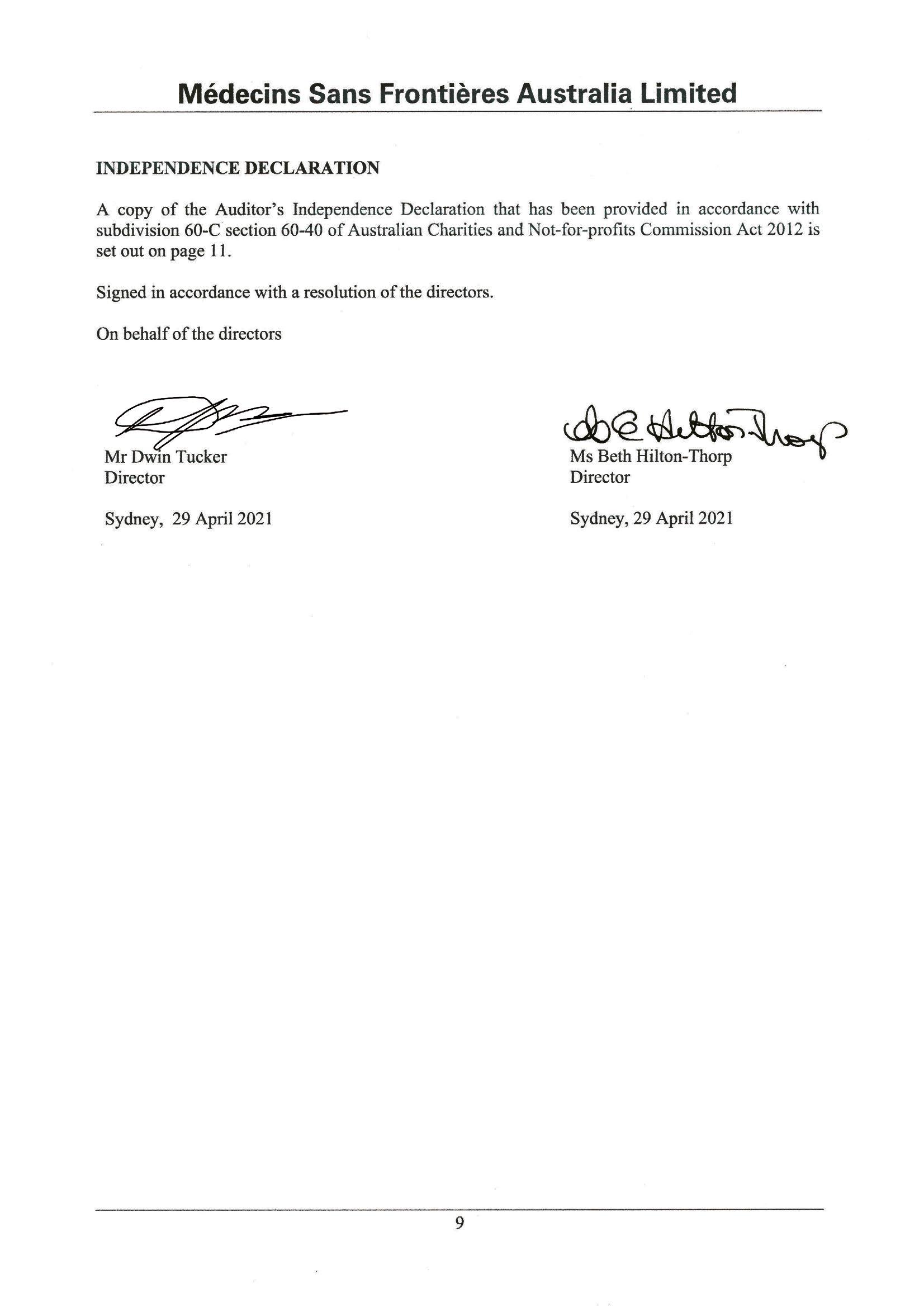
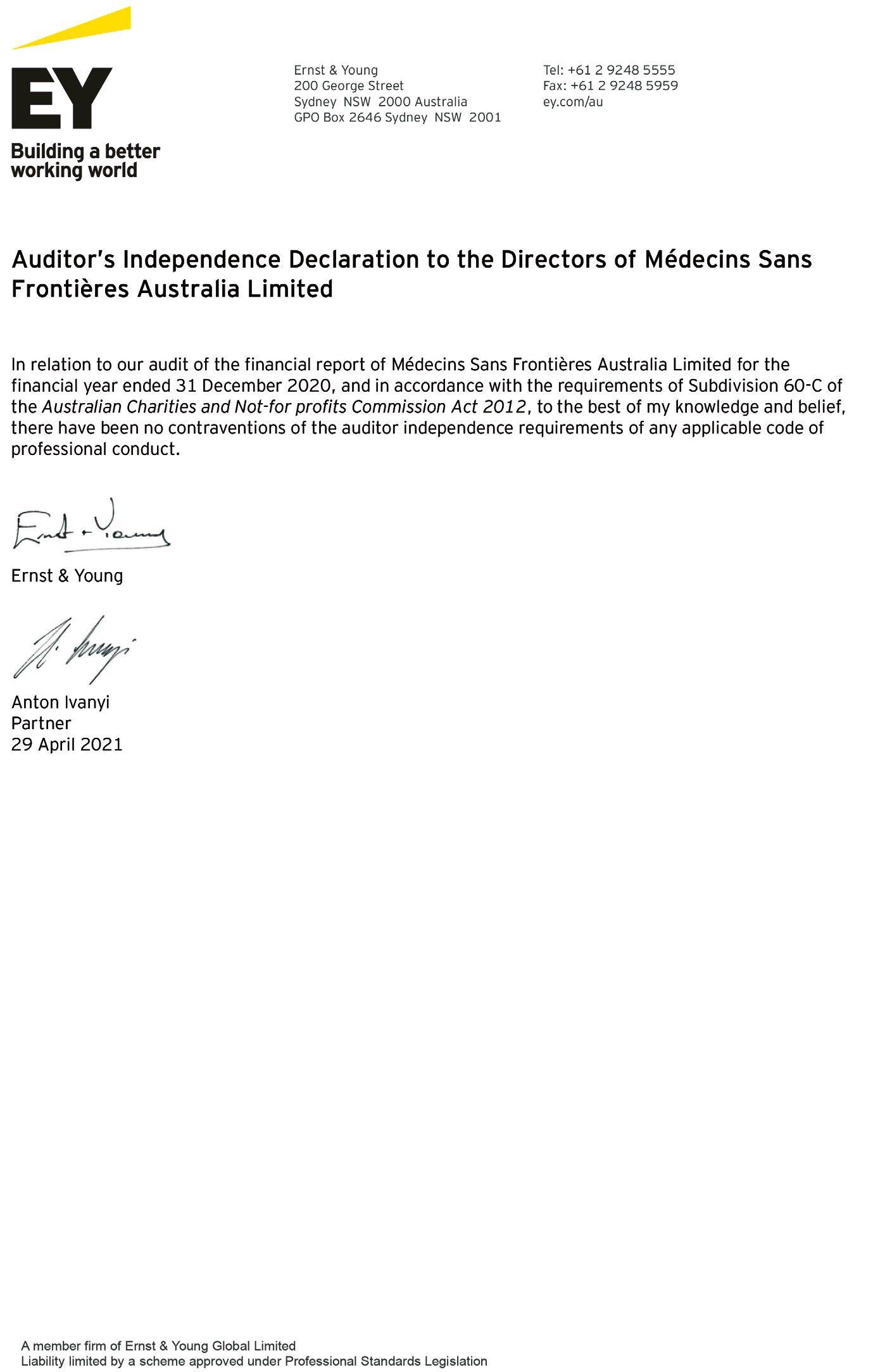

Responsibilities of the Directors for the Financial Report
The directors of the Company are responsible for the preparation of the financial report that gives a true and f air view in accordance with Australian Accounting Standards – Reduced Disclosure Requirements and the Australian Charities and Not-for-Profits Commission Act 2012 and for such internal control as the directors determine is necessary to enable the preparation of the financial report that gives a true and fair view and is free from material misstatement, whether due to fraud or error.
In preparing the financial report, the d irectors are responsible for assessing the Group’s ability to continue as a going concern, disclosing, as applicable, matters relating to going concern and using the going concern basis of accounting unless the directors either intend to liquidate the Group or to cease operations, or have no realistic alternative but to do so.
Auditor's Responsibilities for the Audit of the Financial Report
Our objectives are to obtain reasonable assurance about whether the financial report as a whole is free from material misstatement, whether due to fraud or error, and to issue an auditor’s report that includes our opinion. Reasonable assurance is a high level of assurance, but is not a guarantee that an audit conducted in accordance with the Australian Auditing Standards will always detect a material misstatement when it exists. Misstatements can arise from fraud or error and are considered material if, individually or in the aggregate, they could reasonably be expected to influence the economic decisions of users taken on the basis of this financial report.
As part of an audit in accordance with the Australian Auditing Standards, we exercise professional judgment and maintain professional scepticism throughout the audit. We also:
• Identify and assess the risks of material misstatement of the financial report, whether due to fraud or error, design and perform audit procedures responsive to those risks, and obtain audit evidence that is sufficient and appropriate to provide a basis for our opinion. The risk of not detecting a material misstatement resulting from fraud is higher than for one resulting from error, as fraud may involve collusion, forgery, intentional omissions, misrepresentations, or the override of internal control.
• Obtain an understanding of internal control relevant to the audit in order to design audit procedures that are appropriate in the circumstances, but not for the purpose of expressing an opinion on the effectiveness of the Group’s internal control.
• Evaluate the appropriateness of accounting policies used and the reasonableness of accounting estimates and related disclosures made by the directors.
• Conclude on the appropriateness of the directors’ use of the going concern basis of accounting and, based on the audit evidence obtained, whether a material uncertainty exists related to events or conditions that may cast significant doubt on the Group’s ability to continue as a going concern. If we conclude that a material uncertainty exists, we are required to draw attention in our auditor’s report to the related disclosures in the financial report or, if such disclosures are inadequate, to modify our opi nion. Our conclusions are based on the audit evidence obtained up to the date of our auditor’s report. However, future events or conditions may cause the Group to cease to continue as a going concern.
• Evaluate the overall presentation, structure and content of the financial report, including the disclosures, and whether the financial report represents the underlying transactions and events in a manner that achieves fair presentation.
• Obtain sufficient appropriate audit evidence regarding the financial i nformation of the entities or business activities within the Group to express an opinion on the financial report. We are responsible for the direction, supervision and performance of the Group audit. We remain solely responsible for our audit opinion.
A member firm of Ernst & Young Global Limited Liability limited by a scheme approved under Professional Standards Legislation
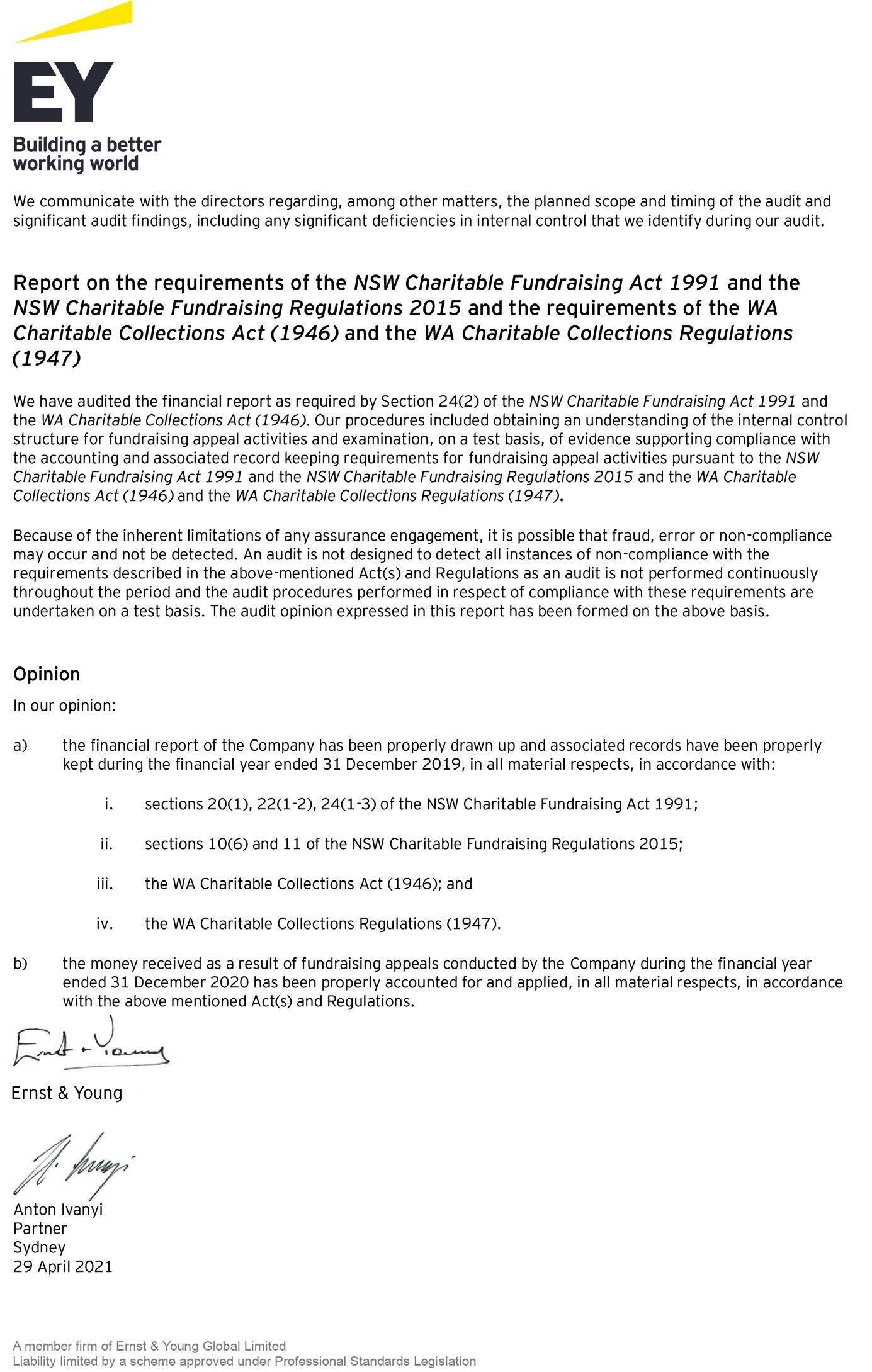

Médecins Sans Frontières Australia
Consolidated Statement of Comprehensive Income for the Financial Year Ended 31 December 2020
Notes to the financial statements are included on pages 19 to 42
15
Note 2020 2019 $ $ Revenue 4(a) 104,218,096 92,711,432 Social mission costs Field costs (70,613,179) (69,493,055) Other project costs (3,770,947) (4,492,803) Community education expenses (3,309,151) (3,168,385) Total social mission costs (77,693,277) (77,154,243) Fundraising and Administration costs Fundraising costs (19,518,791) (17,632,698) Administration expenses (5,474,084) (5,307,772) Total fundraising and administration costs (24,992,875) (22,940,470) Surplus/(Deficit) before tax 4(b) 1,531,943 (7,383,281) Income tax expense -Surplus/(Deficit) for the year from continuing operations 1,531,943 (7,383,281) Other comprehensive loss (27,990) (16,480) Total comprehensive surplus (deficit) for the year 1,503,953 (7,399,761)
Médecins Sans Frontières Australia
Consolidated Statement of Financial Position as at 31 December 2020
Notes to the financial statements are included on pages 19 to 42
16
Note 2020 2019 $ $ Current assets Cash and cash equivalents 15,284,763 11,263,060 Trade and other receivables 8 2,273,442 765,116 Other 9 408,888 305,068 Total current assets 17,967,093 12,333,244 Non-current assets Property, plant and equipment 7 252,343 266,018 Right-of use asset 12 613,169 1,021,949 Other 9 215,337 215,337 Total non-current assets 1,080,849 1,503,304 Total assets 19,047,942 13,836,549 Current liabilities Trade and other payables 10 5,724,102 1,916,898 Provisions 11 1,043,610 754,123 Lease Liability 12 458,707 398,801 Total current liabilities 7,226,419 3,069,822 Non-current liabilities Provisions 11 453,827 444,276 Lease Liability 12 203,901 662,609 Total non-current liabilities 657,728 1,106,886 Total liabilities 7,884,148 4,176,707 Net assets 11,163,794 9,659,841 Equity Reserves 14 (212,518) (184,528) Retained Surplus 13 11,376,312 9,844,369 Total equity 11,163,794 9,659,841
Consolidated Statement of Changes in Equity for the Financial Year Ended 31 December 2020
Notes to the financial statements are included on pages 19 to 42
Médecins
17
Sans Frontières Australia
Note Foreign currency Retained translation reserve Surplus Total $ $ $ Balance at 1 January 2019 (168,048) 17,227,650 17,059,602 Deficit for the year - (7,383,281) (7,383,281) Other comprehensive loss for the year (16,480) - (16,480) Total comprehensive loss for the year (16,480) (7,383,281) (7,399,761) Balance at 31 December 2019 (184,528) 9,844,369 9,659,841 Surplus for the year - 1,531,943 1,531,943 Other comprehensive loss for the year (27,990) - (27,990) Total comprehensive surplus for the year (27,990) 1,531,943 1,503,953 Balance at 31 December 2020 14 (212,518) 11,376,312 11,163,794
Consolidated Statement of Cash Flows for the Financial Year Ended 31 December 2020
Notes to the financial statements are included on pages 19 to 42
Médecins Sans Frontières
18
Australia
2020 2019 $ $ Cash flows from operating activities Receipts from donors and supporters 97,067,230 85,929,133 Receipts for services recharged 5,736,765 6,926,127 Interest received 30,622 313,203 Payments for field costs (59,871,004) (64,345,192) Payments to suppliers and employees (38,761,751) (35,230,382) Net cash flow from/(used in) operating activities 4,201,861 (6,407,111) Cash flows from investing activities Proceeds from/payment for plant and equipment (180,159) (117,432) Proceeds from the disposal of plant and equipment - 25,961 Net cash flow from/(used in) investing activities (180,159) (91,471) Net increase/(decrease) in cash and cash equivalents 4,021,703 (6,498,582) Cash and cash equivalents at the beginning of the financial year 11,263,060 17,761,641 Cash and cash equivalents at the end of the financial year 15,284,763 11,263,060
Médecins Sans Frontières Australia Limited
Notes to the Consolidated Financial Statements for the Financial Year ended 31 December 2020
1. GENERAL INFORMATION
Médecins Sans Frontières Australia Limited is a public company limited by guarantee, incorporated and operating in Australia.
Principal registered office and principal place of business:
Level 4
1-9 Glebe Point Road
Glebe, NSW 2037
Tel: (02) 8570 2600
Further information on the nature of the operations and principal activities of the Group is provided in the Directors’ Report.
The Financial statements were authorised for issue, in accordance with a resolution of directors, on 29 April 2021
2. SIGNIFICANT ACCOUNTING POLICIES Statement of Compliance
The Group is a registered charity and a reporting entity. Therefore the financial statements of the Group are tier 2 general purpose financial statements which have been prepared in accordance with Australian Accounting Standards – Reduced Disclosure Requirements (AASB – RDRs) (including Australian Interpretations) adopted by the Australian Accounting Standards Board (AASB) and the Australian Charities and Not-for-profits Commission Regulation 2013
2.1. Basis of Preparation
The Financial Report is a general purpose financial report, which has been prepared in accordance with the requirements of the Australian Charities and Not-for-profits Commission Act 2012 and Australian Accounting Standards – Reduced Disclosure Requirements and other authoritative pronouncements of the Australian Accounting Standards Board. The Financial Report has also been prepared on a historical cost basis All amounts are presented in Australian dollars, unless otherwise noted.
In addition, the Group presents an additional statement of financial position at the beginning of the preceding period when there is a retrospective application of an accounting policy, a retrospective restatement, or a reclassification of items in financial statements.
Compliance with International Financial Reporting Standards (IFRS)
The Financial Report also complies with International Financial Reporting Standards (IFRS) as issued by the International Accounting Standards Board.
19
Notes to the Consolidated Financial Statements for the Financial Year ended 31 December 2020
2. SIGNIFICANT ACCOUNTING POLICIES (CONTINUED)
2.2. Basis of Consolidation
The consolidated financial statements of the Group include a wholly owned subsidiary, Médecins Sans Frontières New Zealand Charitable Trust which commenced operations in April 2017. Control is achieved when the Group is exposed, or has rights, to variable returns from its involvement with the investee and has the ability to affect those returns through its power over the investee.
Specifically, the Group controls an investee if, and only if, the Group has:
(i) Power over the investee (i.e. existing rights that give it the current ability to direct the relevant activities of the investee)
(ii) Exposure, or rights, to variable returns from its involvement with the investee
(iii) The ability to use its power over the investee to affect its returns
Generally, there is a presumption that a majority of voting rights results in control. To support this presumption and when the Group has less than a majority of the voting or similar rights of an investee, the Group considers all relevant facts and circumstances in assessing whether it has power over an investee, including:
(i) The contractual arrangement(s) with the other vote holders of the investee
(ii) Rights arising from other contractual arrangements
(iii) The Group’s voting rights and potential voting rights
The Group re-assesses whether or not it controls an investee if facts and circumstances indicate that there are changes to one or more of the three elements of control. Consolidation of a subsidiary begins when the Group obtains control over the subsidiary and ceases when the Group loses control of the subsidiary. Assets, liabilities, income and expenses of a subsidiary acquired or disposed of during the year are included in the consolidated financial statements from the date the Group gains control until the date the Group ceases to control the subsidiary.
Surplus or deficit and each component of Other Comprehensive Income (“OCI”) are attributed to the parent of the Group. When necessary, adjustments are made to the financial statements of subsidiaries to bring their accounting policies into line with the Group’s accounting policies. All intra-group assets and liabilities, equity, income, expenses and cash flows relating to transactions between members of the Group are eliminated in full on consolidation.
A change in the ownership interest of a subsidiary, without a loss of control, is accounted for as an equity transaction. If the Group loses control over a subsidiary, it derecognises the related assets (including goodwill), liabilities, non-controlling interest and other components of equity, while any resultant gain or loss is recognised in surplus or deficit. Any investment retained is recognised at fair value.
Médecins
Sans Frontières Australia Limited
20
Médecins Sans Frontières Australia Limited
Notes to the Consolidated Financial Statements for the Financial Year ended 31 December 2020
2. SIGNIFICANT ACCOUNTING POLICIES (CONTINUED)
2.3. Summary of Significant Accounting Policies
a) Cash and cash equivalents
Cash comprises cash on hand and demand deposits. Cash equivalents are short-term, highly liquid investments that are readily convertible to known amounts of cash and which are subject to an insignificant risk of changes in value.
b) Donations in kind and voluntary assistance
Over the course of the year the Group has received donations in kind from a number of sources. These donations may be items used in the office, or services provided at reduced rates. Donations in kind of plant and equipment are recorded at fair value. Items to be used in the office and services provided for no consideration are also brought to account in the financial statements at the fair value of the items or services received.
In addition to donations in kind, both office volunteers and field staff sent to the field donate their time to Médecins Sans Frontières Australia Limited. This time donated by office volunteers and salaries foregone by volunteers sent to the field are not brought to account in the financial statements since they cannot be reliably measured.
c) Revenue from contracts with donors
The Group is in the business of fundraising from the general public. Revenue from contracts with our donors is recognised when cash is received.
The Group does not receive government grants, either state or federal
d) Employee benefits
Liabilities for wages and salaries, including non-monetary benefits, annual leave and accumulating sick leave expected to be settled within 12 months of the reporting date are recognised in respect of employees' services up to the reporting date.
They are measured at the amounts expected to be paid when the liabilities are settled. Expenses for non-accumulating sick leave are recognised when the leave is taken and are measured at the rates paid or payable.
The liability for long service leave is recognised and measured as the present value of expected future payments to be made in respect of services provided by employees up to the reporting date using the projected unit credit method. Consideration is given to expected future wage and salary levels, experience of employee departures, and periods of service. Expected future payments are discounted using market yields at the reporting date on national government bonds with terms to maturity and currencies that match, as closely as possible, the estimated future cash outflows.
21
Notes to the Consolidated Financial Statements for the Financial Year ended 31 December 2020
2. SIGNIFICANT ACCOUNTING POLICIES (CONTINUED)
e) Fundraising expenses
Fundraising expenses include those costs, which are directly attributable to fundraising, such as function expenses, promotions, printing and mailing and employee expenses. These expenses are brought to account in the period in which they are incurred.
f) Field costs
Field costs include expenses associated with remitting funds to our Operational Centres and the costs of deploying and paying our field staff.
g) Trade and other receivables
Trade and other receivables, which comprise amounts due from Médecins Sans Frontières International entities, GST recoverable and others, are recognised and carried at original invoice amount. The carrying amount of the receivable is deemed to reflect fair value. These receivables are non-interest bearing.
An allowance for doubtful debts is made when there is objective evidence that the Group will not be able to collect the debts. Bad debts are written off when identified.
The net amount of GST recoverable from, or payable to, the taxation authority is included as part of liabilities as a receivable.
h) Goods and services tax
Revenues, expenses and assets are recognised net of the amount of goods and services tax (GST), except:
i. where the amount of GST incurred is not recoverable from the taxation authority, it is recognised as part of the cost of acquisition of an asset or as part of an item of expense; or
ii. for receivables and payables which are recognised inclusive of GST.
Cash flows are included in the cash flow statement on a gross basis. The GST component of cash flows arising from investing and financing activities which is recoverable from, or payable to, the taxation authority is classified as operating cash flows.
i) Income tax
Section 50-5 of the Income Tax Assessment Act provides that certain bodies will be exempt from income tax. The Group is exempt from income tax in accordance with the Act; accordingly no provision for income tax has been recorded.
Médecins Sans Frontières Australia Limited
22
Notes to the Consolidated Financial Statements for the Financial Year ended 31 December 2020
2. SIGNIFICANT ACCOUNTING POLICIES (CONTINUED)
j) Leases
The Group assesses at contract inception whether a contract is, or contains, a lease. That is, if the contract conveys the right to control the use of an identified asset for a period of time in exchange for consideration.
Group as a lessee
The Group applies a single recognition and measurement approach for all leases, except for short-term leases as leases of low-value assets. The Group recognises lease liabilities to make lease payments and right-of-use assets representing the right to use the underlying assets.
i. Right-of-use assets
The Group recognises right-of-use assets at the commencement date of the lease (i.e. the date of the underlying asset is available for use). Right-of-use assets are measured at cost, less any accumulated depreciation and impairment of losses, and adjusted for any remeasurement of lease liabilities. The cost of right-of-use assets includes the amount of lease liabilities recognised, initial direct costs incurred, and lease payments made at or before the commencement date less any lease incentives received. Right-of-use assets are depreciated on a straight-line basis over the shorter of the lease term and the estimated useful lives of the assets as follows:
• Office Building 3 to 15 years
• Other equipment 3 to 5 years
If ownership of the leased asset transfers to the Group at the end of the lease terms or the cost reflects the exercise of a purchase option, depreciation is calculated using the estimated useful life of the asset.
The right-of-use assets are also subject to impairment
ii. Lease Liabilities
At the commencement date of the lease, the Group recognises lease liabilities measured at the present value of lease payments to be made over the lease term. The lease payments include fixed payments (including in-substance fixed payments) less any lease incentives receivable, variable lease payments that depend on an index or a rate, and amounts expected to be paid under residual value guarantees. The lease payments also include the exercise price of a purchase option reasonably certain to be exercised by the Group and payments of penalties for terminating the lease, if the lease term reflects the Group exercising the option to terminate. Variable lease payments that do not depend on an index or a rate are recognised as expenses (unless they are incurred to produce inventories) in the period in which the event or condition that triggers the payment occurs. In calculating the present value of lease payments, the Group uses its incremental borrowing rate at
Médecins Sans Frontières Australia Limited
23
Notes to the Consolidated Financial Statements for the Financial Year ended 31 December 2020
2. SIGNIFICANT ACCOUNTING POLICIES (CONTINUED)
the lease commencement date because the interest rate implicit in the lease is not readily determinable. After the commencement date, the amount of lease liabilities is increased to reflect the accretion of interest and reduced for the lease payments made. In addition, the carrying amount of lease liabilities is remeasured if there is a modification, a change in the lease term (e.g. changes to future payments resulting from a change in an index or rate used to determine such lease payments) or a change in the assessment of an option to purchase the underlying asset.
The Group’s lease liabilities are included in the Non-current liabilities.
iii. Short-term leases and leases of low-value assets
The Group applies the short-term lease recognition exemption to its short-term leases of equipment (i.e. those leases that have a lease term of 12 months or less from the commencement date and do not contain a purchase option). It also applies the lease of low-value assets recognition exemption to lease of office equipment that considered to be low value. Lease payments on short-term leases and leases of low-value assets are recognises as expense on a straight-line basis over the lease term.
k) Payables
Trade payables and other accounts payable are recognised when the Group becomes obliged to make future payments resulting from the purchase of goods and services.
l) Plant and equipment
Plant and equipment and leasehold improvements are stated at cost, less accumulated depreciation and impairment. Cost includes expenditure that is directly attributable to the acquisition of the item.
Depreciation is provided on plant and equipment and is calculated on a straight-line basis so as to write off the net cost of each asset over its expected useful life. Leasehold improvements are depreciated over the period of the lease or estimated useful life, whichever is the shorter, using the straight-line method. The estimated useful lives, residual values and depreciation method are reviewed at the end of each annual reporting period, with the effect of any changes recognised on a prospective basis.
Impairment
The carrying values of plant and equipment are reviewed for impairment at each reporting date, with recoverable amount being estimated when events or changes in circumstances indicate that the carrying value may be impaired.
Derecognition and disposal
An item of plant and equipment is derecognised upon disposal, when the item is no longer used in the operations of the Group or when it has no sale value. Any gain or loss arising on derecognition of the
Médecins
Sans Frontières Australia Limited
24
Médecins Sans Frontières Australia Limited
Notes to the Consolidated Financial Statements for the Financial Year ended 31 December 2020
2. SIGNIFICANT ACCOUNTING POLICIES (CONTINUED)
asset (calculated as the difference between the net disposal proceeds and the carrying amount of the asset) is included in surplus or deficit in the year the asset is derecognised.
m) Provisions
Provisions are recognised when the Group has a present obligation (legal or constructive) as a result of a past event. It is probable that the Group will be required to settle the obligation, and a reliable estimate can be made of the amount of provision.
The amount recognised as a provision is the best estimate of the consideration required to settle the present obligation at reporting date, taking into account the risks and uncertainties surrounding the obligation. Where a provision is measured using the cash flows estimated to settle the present obligation, its carrying amount is the present value of those cash flows.
n) Revenue recognition
Revenue is measured at the fair value of consideration received or receivable. Revenue is recognised net of the amounts of goods and services tax (GST) payable to the Australia Taxation Office.
i) Revenue from fundraising
Donations
Donations collected, including cash and goods for resale, are recognised as revenue when the Group gains control, economic benefits are probable and the amount of the donation can be measured reliably.
Legacies & Bequests
Legacies & bequests are recognised when received.
ii) Investment income
Investment income mainly comprises interest income. Interest income is recognised as it accrues, using the effective interest method.
iii) Asset sales
The gain or loss on disposal of all non-current assets is determined as the difference between the carrying amount of the asset at the time of disposal and the net proceeds on disposal.
o) Foreign currencies
The Group’s consolidated financial statements are presented in Australian dollars, which is also the parent company’s functional currency. For each entity, the Group determines the functional currency and items included in the financial statements of each entity are measured using that functional currency. The Group uses the direct method of consolidation and on disposal of a foreign operation,
25
Notes to the Consolidated Financial Statements for the Financial Year ended 31 December 2020
2. SIGNIFICANT ACCOUNTING POLICIES (CONTINUED)
the gain or loss that is reclassified to surplus or deficit reflects the amount that arises from using this method.
i) Transactions and balances
Transactions in foreign currencies are initially recorded by the Group’s entities at their respective functional currency spot rates at the date the transaction first qualifies for recognition.
Monetary assets and liabilities denominated in foreign currencies are translated at the functional currency spot rates of exchange at the reporting date.
Differences arising on settlement or translation of monetary items are recognised in surplus or deficit with the exception of monetary items that are designated as part of the hedge of the Group’s net investment in a foreign operation. These are recognised in Other Comprehensive Income (OCI) until the net investment is disposed of, at which time, the cumulative amount is reclassified to surplus or deficit. Tax charges and credits attributable to exchange differences on those monetary items are also recorded in OCI.
Non-monetary items that are measured in terms of historical cost in a foreign currency are translated using the exchange rates at the dates of the initial transactions. Non-monetary items measured at fair value in a foreign currency are translated using the exchange rates at the date when the fair value is determined.
The gain or loss arising on translation of non-monetary items measured at fair value is treated in line with the recognition of the gain or loss on the change in fair value of the item (i.e., translation differences on items whose fair value gain or loss is recognised in OCI or surplus or deficit are also recognised in OCI or surplus or deficit, respectively).
ii) Group companies
On consolidation, the assets and liabilities of foreign operations are translated into Australian dollars at the rate of exchange prevailing at the reporting date and their statements of surplus or deficit are translated at exchange rates prevailing at the dates of the transactions. The exchange differences arising on translation for consolidation are recognised in OCI. On disposal of a foreign operation, the component of OCI relating to that particular foreign operation is reclassified to surplus or deficit.
2.4. Changes in accounting policies and disclosures
New and amended standards and interpretations
Several amendments and interpretations apply for the first time in 2020, but do not have an impact on the consolidated financial statements of the Group. The Group has not early adopted any standards, interpretations or amendments that have been issued but are not yet effective.
Médecins Sans Frontières Australia Limited
26
Notes to the Consolidated Financial Statements for the Financial Year ended 31 December 2020
3. CRITICAL ACCOUNTING JUDGEMENTS AND KEY SOURCES OF ESTIMATION UNCERTAINTY
The application of Australian Accounting Standards requires making judgments, estimates and assumptions to be made about carrying values of assets and liabilities that are not readily apparent from other sources. The estimates and associated assumptions are based on historical experience and various other factors that are believed to be reasonable under the circumstance, the results of which form the basis of making the judgments. Actual results may differ from these estimates
The estimates and underlying assumptions are reviewed on an ongoing basis. Revisions to accounting estimates are recognised in the period in which the estimate is revised if the revision affects only that period, or in the period of the revision and future periods if the revision affects both current and future periods.
The following are the critical judgements that management has made that have the most significant effect on the amounts recognised in the financial statements:
i. Provisions for employee benefits – management judgement is applied in determining the future increase in wages and salaries, future on cost rates and experience of employee departures and expected period of service. Refer to Note 11 for further details.
ii. Make good provisions - Provisions for future costs to return certain leased premises to their original condition are based on the Group’s past experience with similar premises and estimates of likely restoration costs. These estimates may vary from the actual costs incurred as a result of conditions existing at the date the premises are vacated.
The above judgements are considered to have a significant effect on the accounts and the basis of estimation are included within Note 2.
Médecins Sans Frontières Australia Limited
27
4.
Médecins Sans Frontières Australia Limited
Notes to the Consolidated Financial Statements for the Financial Year ended 31 December 2020
(a)
Revenue from operations consisted of the following items:
(b) Surplus/(Deficit) before income tax
Surplus/(Deficit) before tax consisted of the following items:
28
REVENUE 2020 2019 $ $
Revenue
Fundraising revenue: Donations 97,067,230 85,568,062 Interest revenue: Bank deposits 30,622 313,203 Other revenue: Recharge for services to Médecins Sans Frontières International entities 6,703,689 6,435,032 Other income 167,638 53,991 Non-monetary income (donations-in-kind) 248,917 341,143 Total Revenue 104,218,096 92,711,431
Net gain from sale of plant and equipment - 8,439 Net gain/(loss) from foreign exchange rate movement 40,571 6,473 Funds to the field to Médecins Sans Frontières International entities 70,613,179 69,493,055 Depreciation of non-current assets 572,368 635,332 Employee benefits, including superannuation benefits 15,297,862 12,904,222 Payments to superannuation funds 1,159,599 1,027,166
Médecins Sans Frontières Australia Limited
Notes to the Consolidated Financial Statements for the Financial Year ended 31 December 2020
5. KEY MANAGEMENT PERSONNEL REMUNERATION
The directors and other members of key management personnel of Médecins Sans Frontières Australia Limited during the year were
Dr Stewart Condon (President non-executive), Resigned 23 May 2020
Mr Dwin Tucker (President, non-executive), from 23 May 2020
Ms Beth Hilton-Thorp (Treasurer, non-executive) from 23 May 2020
Ms Alice Cameron (non-executive), Elected 22 May 2020
· Mr Anthony Flynn (non-executive) Resigned 23 May 2020
· Dr Chatu Yapa (non-executive), Resigned 5 October 2020
· Mr Emmanuel Lavieuville (non-executive), Resigned 5 October 2020
. Dr Meguerditch Tarazian (non-executive)
· Dr Jacqueline Hewitt (non-executive)
. Ms Patricia Schwerdtle (non-executive)
. Ms Kerry Atkins (non-executive)
. Ms Bethany Lansom (non-executive), Elected 22 May 2020
Dr Vin Massaro (non-executive), Appointed 16 October 2020
. Ms Carol Nagy (non-executive), Appointed 16 October 2020
Dr Mohammad-Ali Trad (non-executive), Appointed 16 October 2020
Ms Jennifer Tierney (Executive Director and Company Secretary)
Mr Warrick Saunders (Head of Fundraising)
· Dr Claire Fotheringham (Head of Medical Unit)
· Mr Robin Sands (Head of Field Human Resources)
Ms Melanie Triffitt (Head of Finance & Administration) Parental leave from 28 September 2020
Ms Agathi Kissouri (Head of Finance & Administration), from 17 September 2020
· Ms Shereena-Lee Van De Berkt (Head of Domestic Human Resources)
· Mr Jean-Christophe Nougaret (Head of Communications)
Except for the President, the directors provide their services on a voluntary basis. During the course of their duties, business expenses incurred by the directors were reimbursed (note 15). The aggregate compensation of the key management personnel of the Group is set out below:
29
2020 2019 $ $ Key Management Remunerations (excluding the Board President) 1,164,968 1,378,618 President of the Board Remuneration 74,273 68,808
6
Médecins Sans Frontières Australia Limited
Notes to the Consolidated Financial Statements for the
30
Financial Year ended 31 December 2020
REMUNERATION
AUDITORS
2020 2019 $ $ Amounts
for: Audit of the financial report 81,725 77,499 Other Services 17,175 3,833 98,900 81,332
OF
The auditor of the Group is Ernst & Young Australia .
received or due and receivable by Ernst & Young Australia
Médecins Sans Frontières Australia Limited
Notes to the Consolidated Financial Statements for the Financial Year ended 31 December 2020
7. PLANT AND EQUIPMENT
31
Office equipment Furniture and fittings Website and Software Total at cost at cost at cost $ $ $ $ Gross carrying amount Balance at 1 January 2019 517,683 1,127,836 537,930 2,183,449 Additions 86,121 29,889 1,422 117,432 Disposals (25,961) - - (25,961) Balance at 1 January 2020 577,843 1,157,725 539,352 2,274,920 Additions 143,749 - - 143,749 Disposals (6,162) - - (6,162) Balance at 31 December 2020 715,430 1,157,725 539,352 2,412,506 Accumulated depreciation and impairment Balance at 1 January 2019 408,414 945,270 452,103 1,805,787 Depreciation expense 89,276 66,042 72,650 227,968 Disposals (24,853) - - (24,853) Balance at 1 January 2020 472,837 1,011,312 524,753 2,008,903 Depreciation expense 81,335 61,486 14,601 157,422 Disposals (6,162) - - (6,162) Balance at 31 December 2020 548,010 1,072,798 539,354 2,160,164 Net book value As at 31 December 2019 105,006 146,413 14,599 266,018 As at 31 December 2020 167,419 84,927 -2 252,343
Médecins Sans Frontières Australia Limited
Notes to the Consolidated Financial Statements for the Financial Year ended 31 December 2020
32 8. TRADE AND OTHER RECEIVABLES 2020 2019 $ $ Current Amounts due from Médecins Sans Frontières International entities 1,944,447 533,786 Goods and services tax (GST) recoverable 328,995 231,331 2,273,442 765,116 9. OTHER ASSETS 2020 2019 $ $ Current Prepayments 420,536 289,531 Inventories 4,139 4,139 Other (15,787) 11,398 408,888 305,068 2020 2019 $ $ Non-Current Asset Rental bond 215,337 215,337 10. TRADE AND OTHER PAYABLES 2020 2019 Current $ $ Trade payables 1,874,828 1,219,438 Grants payable 2,606,248Accruals 1,243,027 697,460 5,724,103 1,916,898
Médecins Sans Frontières Australia Limited
Notes to the Consolidated Financial Statements for the Financial Year ended 31 December 2020
11. PROVISIONS
The provision for make good represents the present value of the expenditure required to settle the make good obligations at the reporting date.
33 2020 2019 $ $
Current Employee benefits 1,043,610 754,123 Non-Current Employee benefits 173,827 164,276 Make good provision 280,000 280,000 453,827 444,276 Employee Make Good benefits Provision $ $ Balance at 1 January 2020 918,399 280,000 Movement 299,038Balance at 31 December 2020 1,217,437 280,000
Médecins Sans Frontières Australia Limited
Notes to the Consolidated Financial Statements for the Financial Year ended 31 December 2020
12. LEASES
Set out below is the carrying amount of right-of-use asset recognised and the movements during the period:
Set out below is the carrying amount of lease liability and the movements during the period:
The following are the amounts recognised in surplus or deficit:
(included in administration expenses)
The Group had total cash outflow for leases of $476,244 in 2020 (2019: $468,922). The Group had nil non-cash additions to right-of-use assets and lease liabilities in 2020.
34
2020 2019 $ $ Office Building 1,021,949 1,430,729 Depreciation expenses 408,780 408,780 Balance 613,169 1,021,949
Office Building 1,061,410 1,430,729 Accretion of interest 46,388 66,487 Payments (445,189) (435,806) Balance 662,608 1,061,410 Current 458,707 398,801 Non-Current 203,901 662,609
Depreciation expense of right-of-use assets 408,780 408,780 Interest expense on lease liabilities 46,388 66,487 Expense relating to leases of low-value assets 31,056 33,116
Total amount recognised in surplus or deficit 486,224 508,383
Médecins Sans Frontières Australia Limited
Notes to the Consolidated Financial Statements for the Financial Year ended 31 December 2020
14. RESERVES
15. MEMBERS GUARANTEE
The company is a company limited by guarantee. If the company is wound up, the Constitution state that each member is required to contribute a maximum of $10 each towards meeting any outstanding obligations of the company. At 31 December 2020, the number of members was 302 (2019: 310).
35 13. RETAINED SURPLUS 2020 2019 $ $ Balance at the beginning of the financial year 9,844,369 17,227,650 Net surplus/deficit 1,531,943 (7,383,281) Balance at end of financial year 11,376,312 9,844,369
Foreign Currency Translation Reseve 2020 2019 $ $ Opening balance (184,528) (168,048) Foreign exchange translation differences (27,990) (16,480) Closing balance (212,518) (184,528) Foreign currency translation reserve
currency
This relates to
translation gains and losses arising during the year.
Médecins Sans Frontières Australia Limited
Notes to the Consolidated Financial Statements for the Financial Year ended 31 December 2020
16. RELATED PARTY DISCLOSURES Group Information
The consolidated financial statements of the Group include a wholly owned subsidiary, Medecins Sans Frontieres New Zealand Charitable Trust that commenced operations in April 2017.
Medecins Sans Frontieres Australia Limited provides services to and receives services from Medecins Sans Frontieres International entities.
The board of Medecins Sans Frontieres Australia Limited approved the reimbursement of the following business expenses incurred by the directors of the company in the course of their duties as a Director during the year.
17. SUBSEQUENT EVENTS
There has not been any matter or circumstance that has arisen since the end of the financial year that has significantly affected, or may significantly affect, the operations of the Group, the results of those operations, or the state of affairs of the Group in future financial years
36
$ Anthony Flynn 457 Beth Hilton-Thorp 3,673 Chaturangi Yapa 577 Emmanuel Lavieuville 343 Stewart Condon 1,443 Jacqueline Hewitt 386 Dwin Tucker 2,072
Médecins Sans Frontières Australia Limited
Notes to the Consolidated Financial Statements for the Financial Year ended 31 December 2020
INFORMATION RELATING TO MEDECINS SANS FRONTIERES AUSTRALIA LIMITED (THE PARENT)
The Parent had no material contingent liabilities as at 31 December 2020
The Company had no commitments as at 31 December 2020
37 18.
2020 2019 $ $ Current assets 16,696,665 11,272,805 Total assets 28,837,051 19,354,699 Current liabilities 6,804,428 2,475,504 Total liabilities 7,920,864 3,981,191 Retained surplus 20,916,187 15,373,509 Surplus/(Deficit) of the Parent entity 1,065,935 (8,449,878) Total comprehensive income/(loss) of the Parent entity 1,065,935 (8,449,878)
Médecins Sans Frontières Australia Limited
Notes to the Consolidated Financial Statements for the Financial Year ended 31 December 2020
19. DETAILED INCOME STATEMENT FOR THE YEAR ENDED 31 DECEMBER 2020 (THE PARENT)
The following disclosure in notes 19 to 24 has been made to satisfy the requirements of the Charitable Fundraising Act 1991. Non monetary income and expenses are disclosed separately, unlike the Income Statement where they are included in the relevant income or cost line.
38
2020 2019 Revenue: $ $ Donations and gifts Monetary 77,259,729 75,282,193 Non-monetary (in-kind) 248,917 326,834 Legacies and bequests 16,034,993 7,905,027 Investment income 30,622 294,916 Other income 6,871,309 6,815,691 Total revenue 100,445,570 90,624,661 Expenses: International Aid and Development Programs Expenditure International programs Funds to international programs 68,072,506 67,903,366 Program support costs 3,573,204 4,128,318 Community education 3,056,022 2,971,551 Fundraising costs Public 15,097,128 14,930,733 Accountability and administration 4,852,839 5,033,220 Non-monetary expenditure (in kind) 248,917 326,834 Total International Aid and Development Programs Expenditure 94,900,616 95,294,022 Impairment in investment of MSF New Zealand 4,479,019 3,780,517 Excess/(shortfall) of revenue over expenses 1,065,935 (8,449,878)
Médecins Sans Frontières Australia Limited
Notes
to the Consolidated Financial Statements for the Financial Year ended 31 December 2020
20. DETAILED CONSOLIDATED BALANCE SHEET FOR THE YEAR ENDED 31 DECEMBER 2020
39
2020 2019 $ $ Assets Current assets Cash and cash equivalents 15,284,763 11,263,060 Trade and other receivables 2,273,441 765,116 Inventories 4,139 4,139 Other financial assets 420,536 289,531 Other receivables (15,787) 11,398 Total Current Assets 17,967,093 12,333,244 Non Current Assets Other financial assets 215,337 215,337 Property, plant and equipment 252,343 266,018 Right of Use Asset 613,169 1,021,949 Total Non Current Assets 1,080,849 1,503,304 Total Assets 19,047,942 13,836,549 Liabilities Current liabilities Trade and other payables 1,874,828 1,219,438 Grants Payable 2,606,248Accruals 1,243,027 697,460 Provisions 1,043,610 754,123 Total Current Liabilities 6,767,713 2,671,021 Non current liabilities Lease Liabilities 662,609 1,061,411 Provisions 453,827 444,276 Total Non Current Liabilities 1,116,436 1,505,687 Total Liabilities 7,884,149 4,176,708 Net Assets 11,163,794 9,659,840 Equity Reserves (212,518) (184,528) Retained Surplus 11,376,312 9,844,369 Total Equity 11,163,794 9,659,841
Médecins Sans Frontières Australia Limited
Notes to the Consolidated Financial Statements for the Financial Year ended 31 December 2020
(i) The Charitable Fundraising Act 1991 defines income from fundraising appeals as excluding bequest and unsolicited donations. The total income shown above includes both bequests and unsolicited donations, shown as separate items. Income excluding these amounts was $79,972,573 (2019: $76,894,770). Net surplus excluding these amounts was $63,409,900 (2019: $62,106,666).
Income is reported against the original donation source, in order to reflect the full income generated by appeals.
40 21. DETAILS OF FUNDRAISING APPEALS 2020 2019 $ $ Details of aggregate
appeals (i): Newspaper, magazine advertisements & inserts 223,357 124,895 Acquisition 633,858 1,735,664 Bequest 16,036,653 7,905,027 Newsletters/appeals 16,089,715 13,372,966 Other general campaign 1,201,643 1,111,376 Events 197,534 368,542 Field partners 44,915,011 46,631,548 Online 8,045,445 6,604,692 New Zealand 3,759,912 2,380,842 Unsolicited income 1,058,003 768,265 Telemarketing 4,906,098 4,564,245 97,067,229 85,568,062 Less: total direct costs of fund raising appeals Newspaper, magazine advertisement & inserts 129,859 120,398 Acquisitions 1,697,063 624,998 Bequest 79,574 74,653 Newsletters/appeals 2,047,390 1,666,092 Other general campaigns 1,519,372 790,357 Events 7,868 43,803 Field Partners 8,520,412 8,747,274 Online 992,102 718,713 Telemarketing 1,569,033 2,001,816 16,562,673 14,788,104 Net surplus obtained from fundraising appeals 80,504,556 70,779,958
gross income and total expenses of fundraising
Médecins Sans Frontières Australia Limited
Notes to the Consolidated Financial Statements for the Financial Year ended 31 December 2020
22. FUNDS RECEIVED FROM THE GENERAL PUBLIC APPLIED IN CHARITABLE PURPOSES
This was applied to the charitable purposes in the following manner:
Funds to overseas projects were expended by the following parties on behalf of Médecins Sans Frontières Australia
(i) Administration expenses and funds to overseas projects are different from the Statement of Comprehensive Income due to the fact that the above exclude non-monetary expenses as they are not funds received from the general public.
41
2020 2019 $ $ Net surplus
80,504,556 70,779,958
Funds to overseas projects (70,817,844) (69,805,294) Administration expenses (i) (5,723,000) (5,648,915) Balance/(deficit) applied to operational
at Médecins Sans Frontières Australia 3,963,712 (4,674,251)
obtained from fundraising appeals (i)
support
Médecins Sans Frontières International 736,835 759,208 Médecins Sans Frontières Academy 10,000Médecins Sans Frontières Switzerland 18,170,852 19,072,415 Médecins Sans Frontières France 43,598,653 44,502,301 Total funds expended 62,516,340 64,333,924 Field staff costs 8,103,760 5,147,863 Emergency response costs 197,744 323,508 Total funds to overseas projects 70,817,844 69,805,295 -
Limited:
Médecins Sans Frontières Australia Limited
Notes to the Consolidated Financial Statements for the Financial Year ended 31 December 2020
23. COMPARISONS OF CERTAIN MONETARY FIGURES & PERCENTAGES
comparisons including fundraising not covered by the Charitable Fundraising Act
including fundraising covered by the Charitable Fundraising Act
24. LIST OF TYPES OF FUNDRAISING APPEALS CONDUCTED DURING THE FINANCIAL PERIOD
Newspaper and Magazine Advertisements and Inserts
Direct and Unaddressed Mail Donor Acquisition
Field Partner (Regular Giving) Acquisition and Retention
Trusts and Foundations
Bequest Program
Major Donor Program
Telefundraising Program
Giving
42
Gross
2020 2019 2020 2019 $ $ % % Total cost of fundraising/ 19,518,791 17,632,698 20% 21% Gross income from fundraising 97,067,230 85,568,062 Net surplus from fundraising/ 77,548,439 67,935,364 80% 79% Gross income from fundraising 97,067,230 85,568,062 Total cost of services/ 77,693,278 77,154,243 93% 94% Total expenditure (excluding costs of fundraising) 83,167,362 82,462,015 Total cost of services/ 77,693,278 77,154,243 92% 103% Total income received (net of fundraising costs) 84,699,305 75,078,734 Gross
Cost of fundraising appeals/ 19,518,791 17,632,698 24% 23% Gross income from fundraising appeals 79,972,574 76,894,770 Net surplus from fundraising appeals/ 69,279,637 61,205,777 87% 80% Gross income from fundraising appeals 79,972,574 76,894,770
comparisons
Online
Workplace
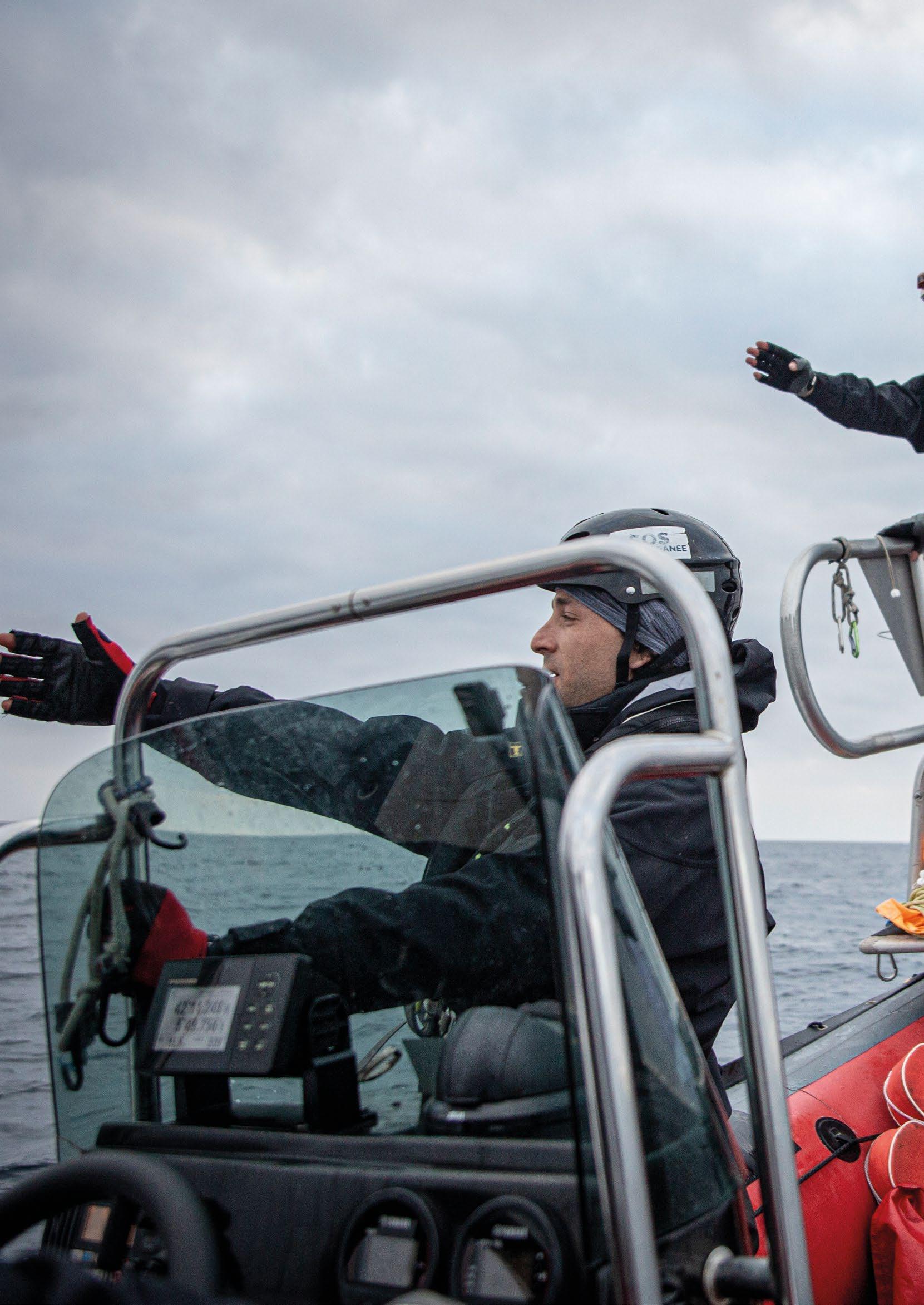
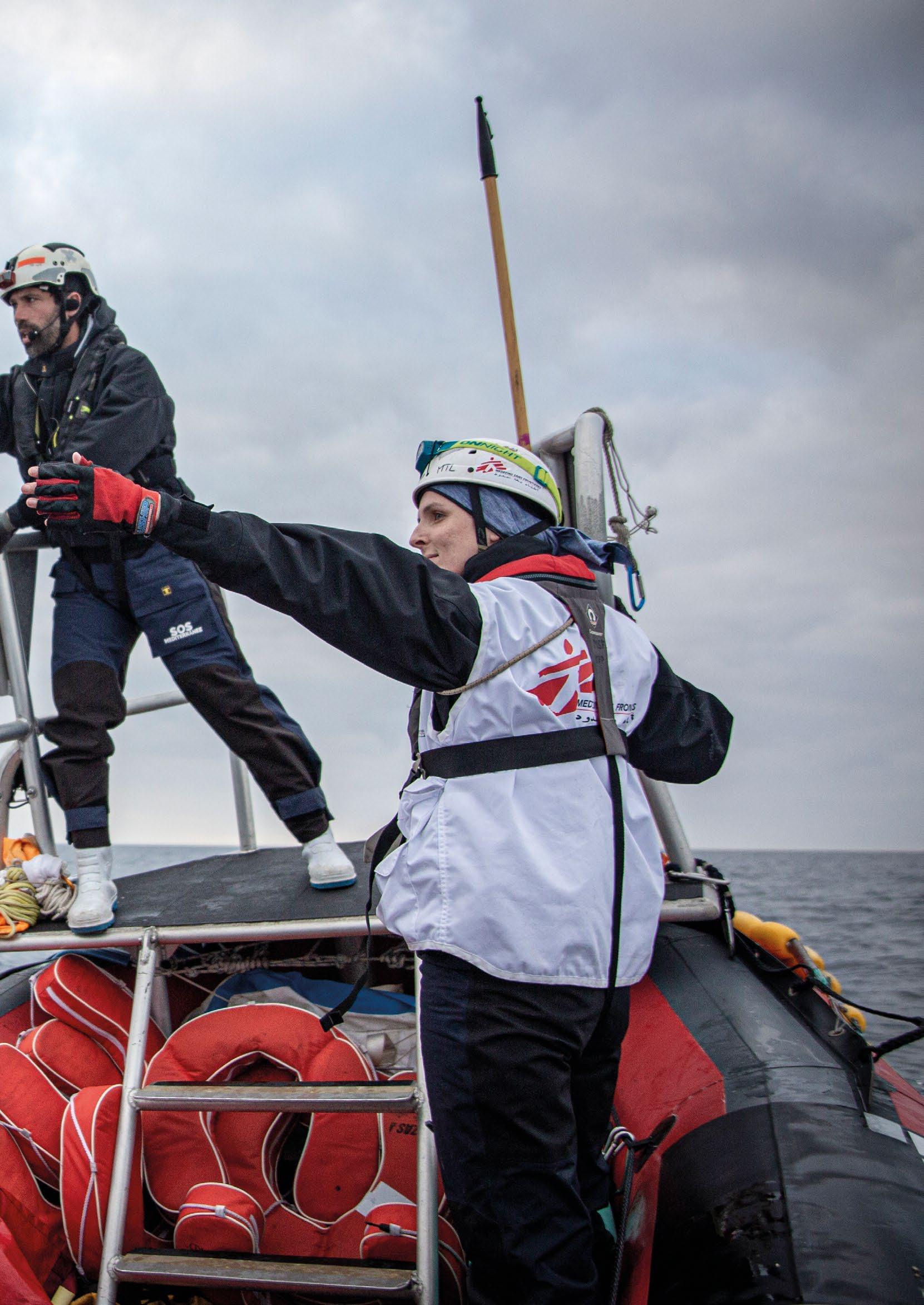 © Anthony Jean/SOS MEDITERRANEE
© Anthony Jean/SOS MEDITERRANEE
Médecins Sans Frontières Australia
ABN 74 068 758 654
PO Box 847, Broadway NSW 2007, Australia
Phone: +61 2 8570 2600 1300 136 061
Fax: +61 2 8570 2699
Email: office@sydney.msf.org
© 2021 Médecins Sans Frontières Australia
www.msf.org.au
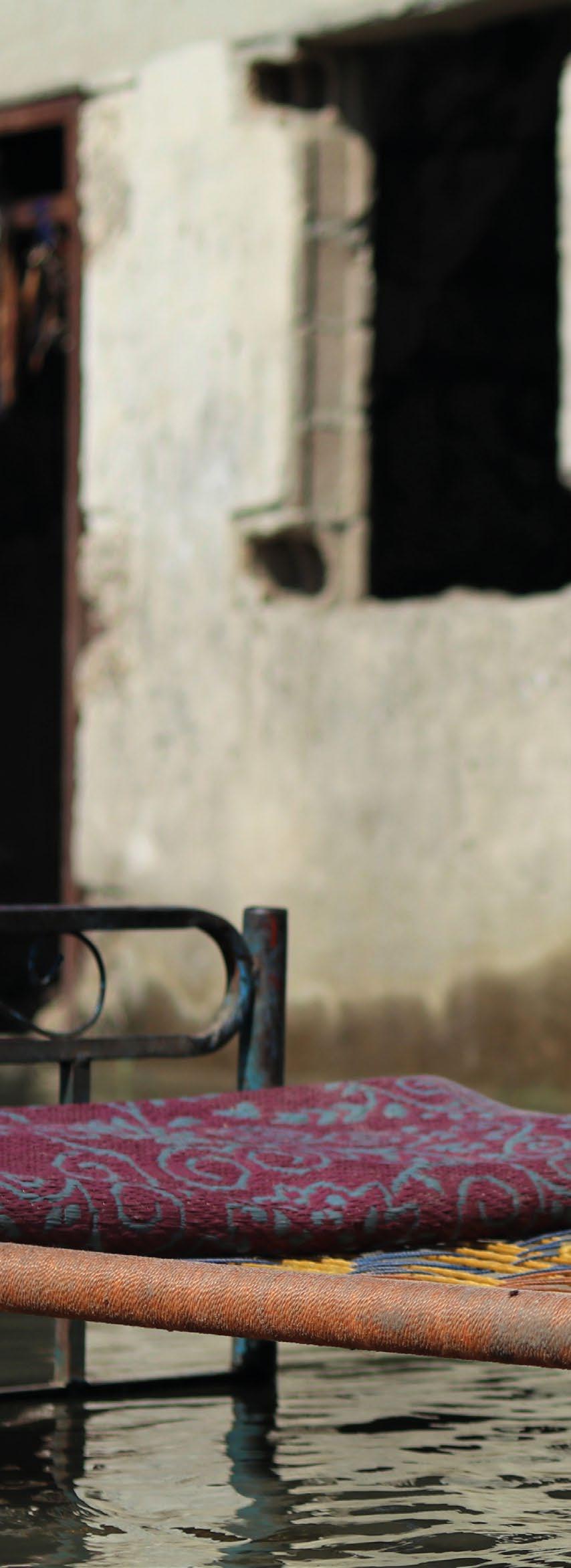
 Médecins Sans Frontières Australia
Médecins Sans Frontières Australia





 Dr Claire Fotheringham
Head of Medical Unit
Médecins Sans Frontières Australia © MSF
Dr Claire Fotheringham
Head of Medical Unit
Médecins Sans Frontières Australia © MSF






 A nurse prepares to visit a patient in the Ebola treatment centre, set up by Médecins Sans Frontières in Lotumbe, Équateur. © Caroline Thirion/MSF
A nurse prepares to visit a patient in the Ebola treatment centre, set up by Médecins Sans Frontières in Lotumbe, Équateur. © Caroline Thirion/MSF













 Project locations funded by Australian donors
SHISELWENI
SOUTH AFRICA
Project locations funded by Australian donors
N’DJAMENA
MOISSALA
LIBYA KYABÉ
Project locations funded by Australian donors
SHISELWENI
SOUTH AFRICA
Project locations funded by Australian donors
N’DJAMENA
MOISSALA
LIBYA KYABÉ
 © Guillaume Binet/MYOP
© Guillaume Binet/MYOP

 © Hussein Amri/MSF
© Hussein Amri/MSF







 © Amanda Furtado Bergman/MSF
© Amanda Furtado Bergman/MSF
 Project locations funded by Australian and New Zealand donors
MAPUTO SOUTH AFRICA
ZAMBIA ZIMBABWE BOTSWANA
Project locations funded by Australian and New Zealand donors
MAPUTO SOUTH AFRICA
ZAMBIA ZIMBABWE BOTSWANA
 © Mack Alix Mushitsi/MSF
© Mack Alix Mushitsi/MSF
 © Adbulkareem Yakuba/MSF
© Adbulkareem Yakuba/MSF














 © Anthony Jean/SOS MEDITERRANEE
© Anthony Jean/SOS MEDITERRANEE




